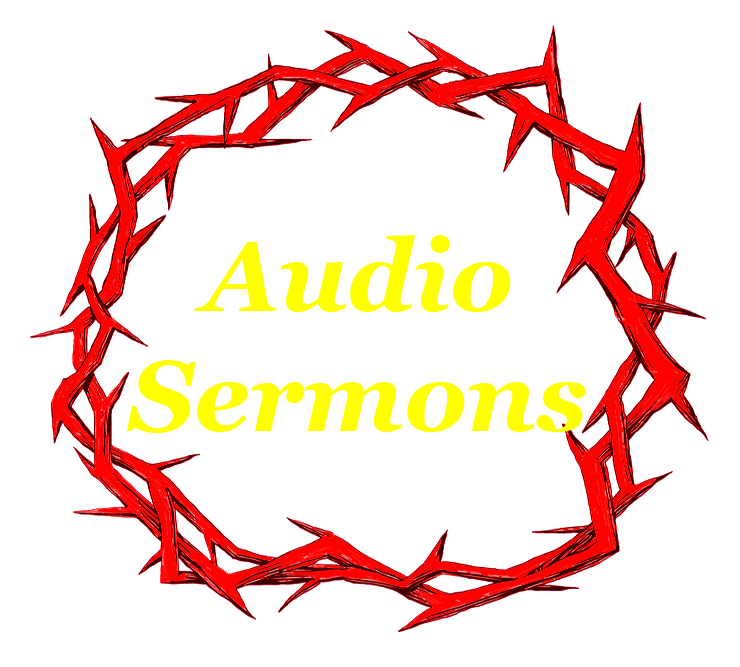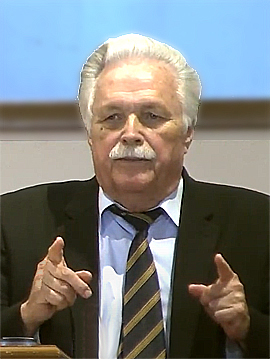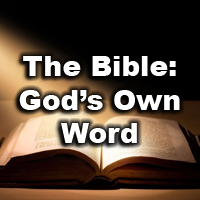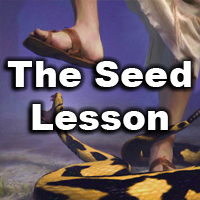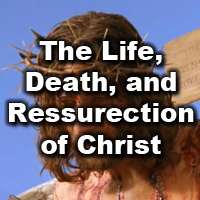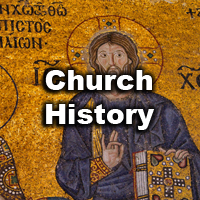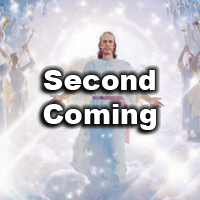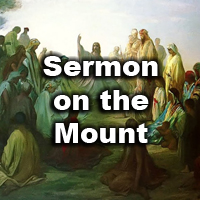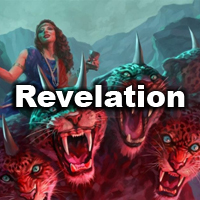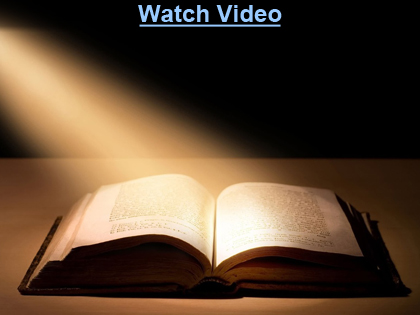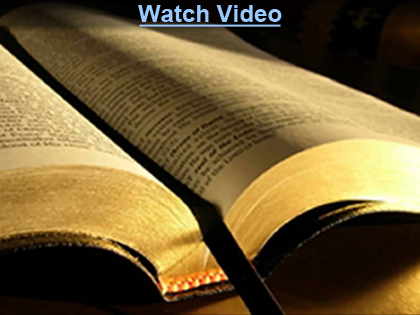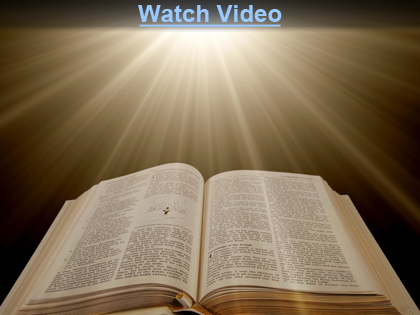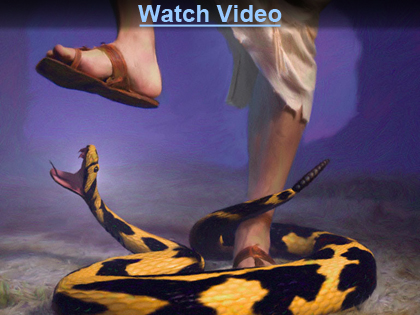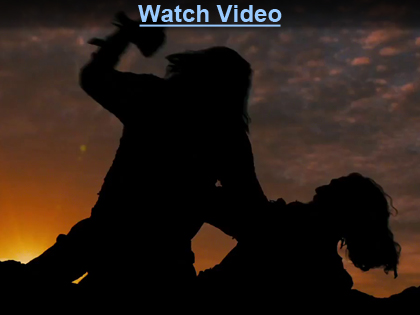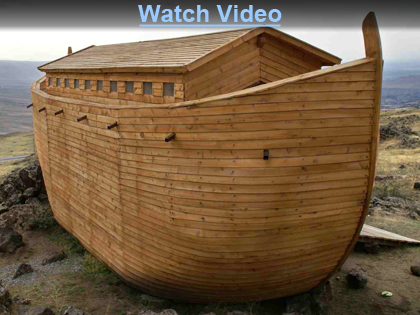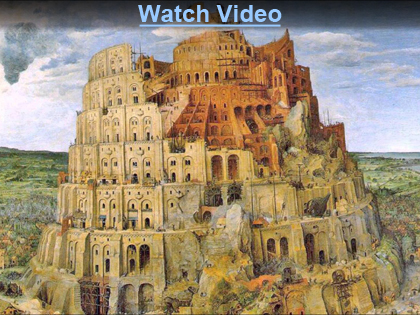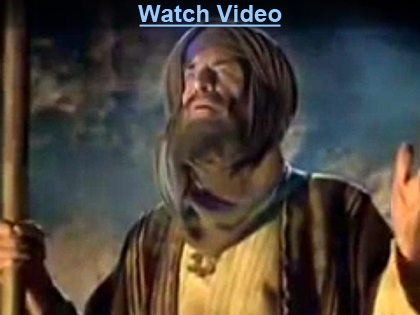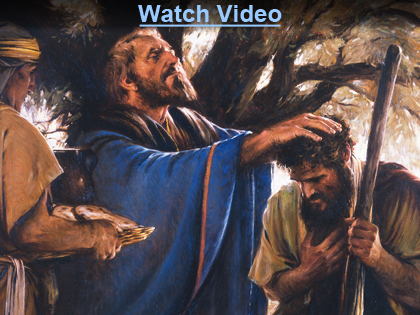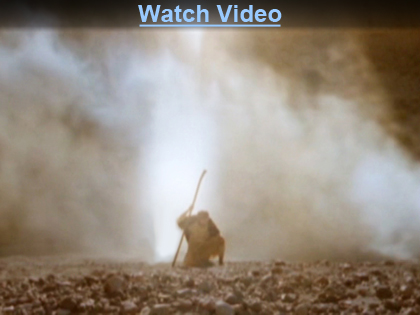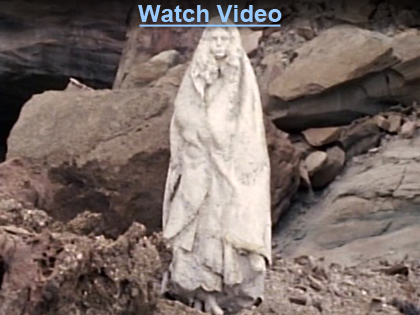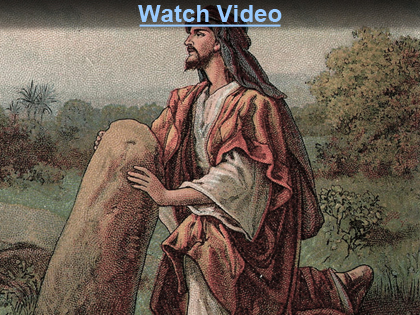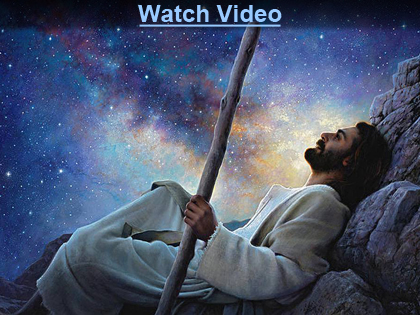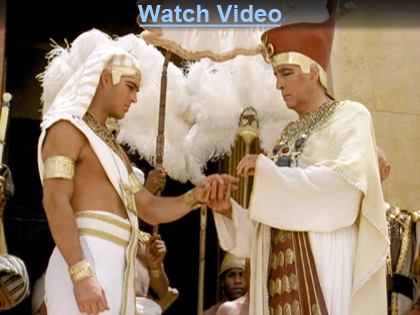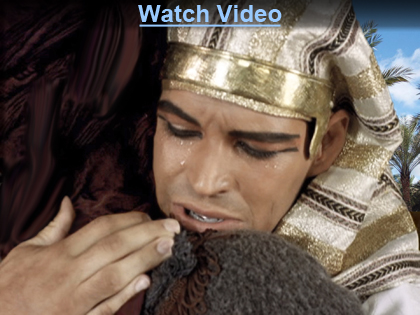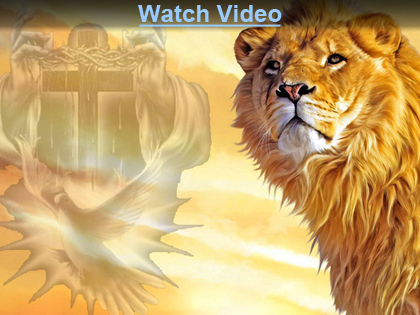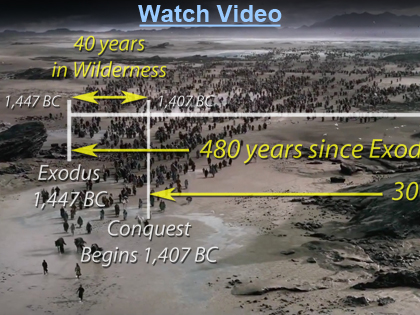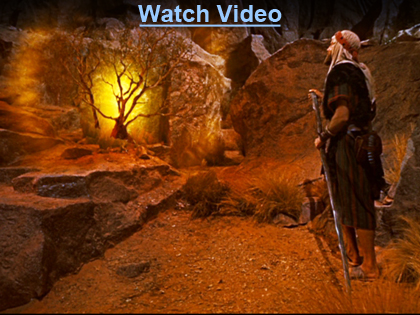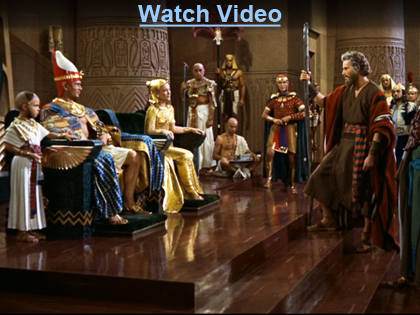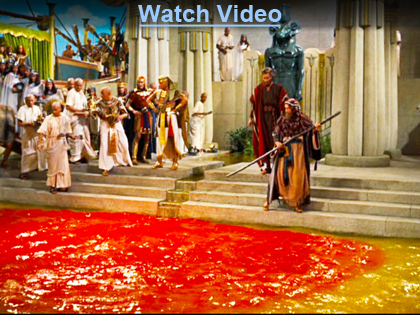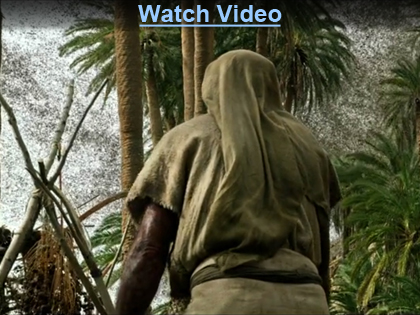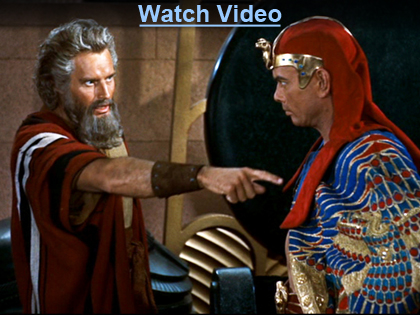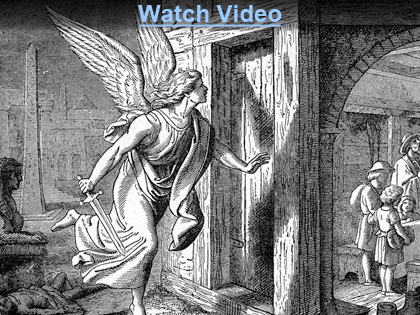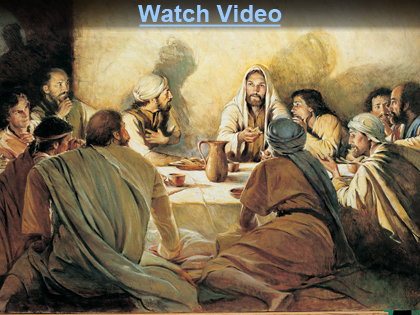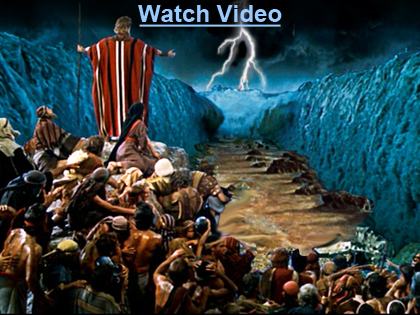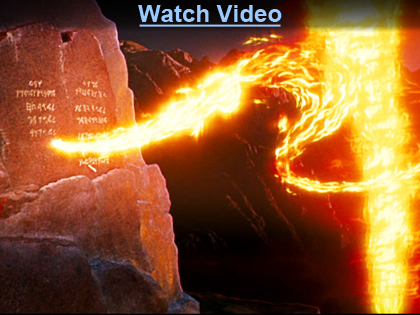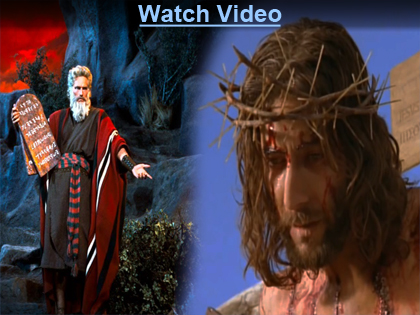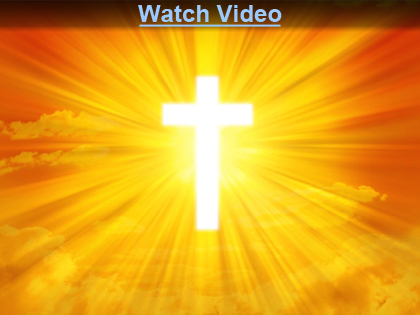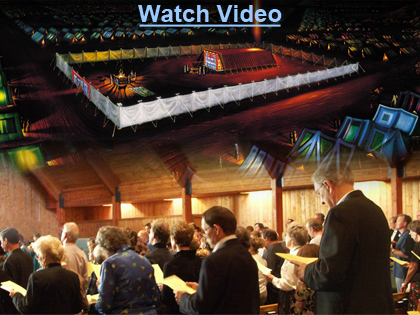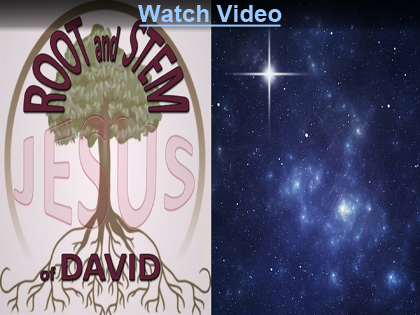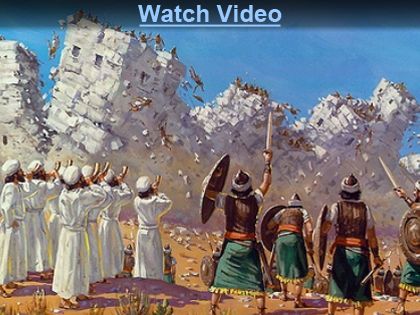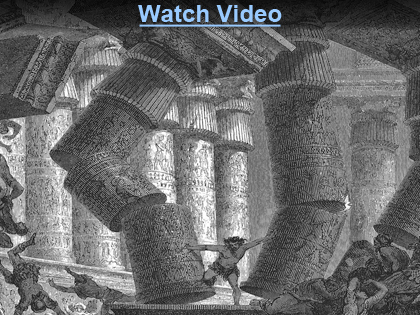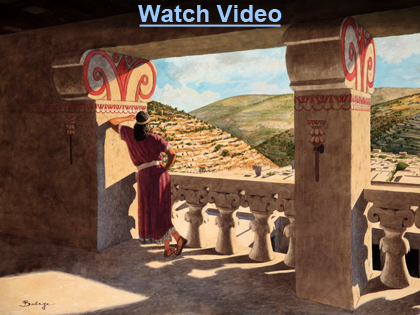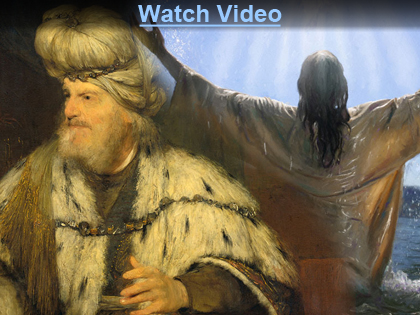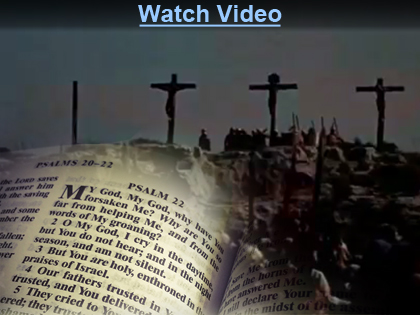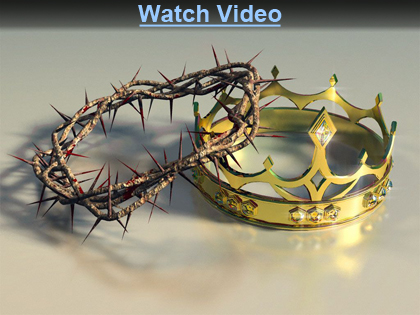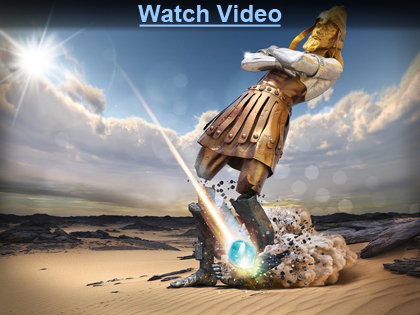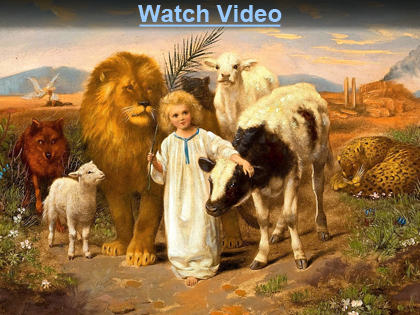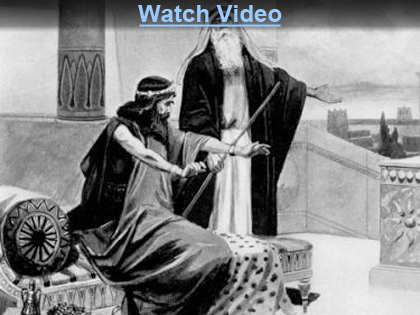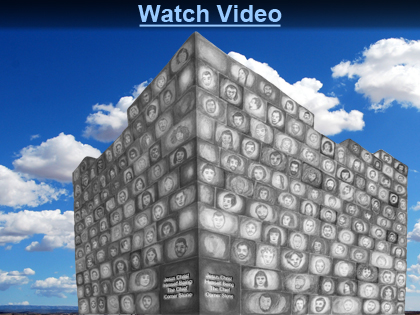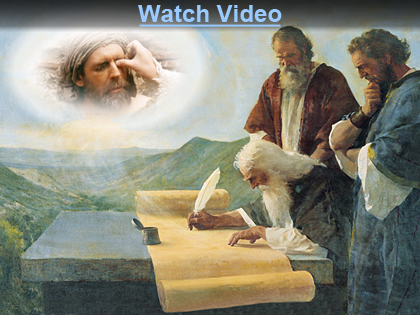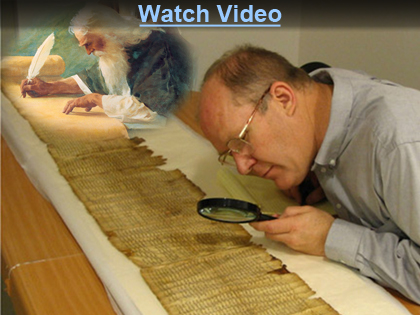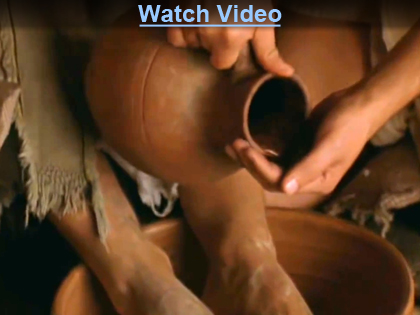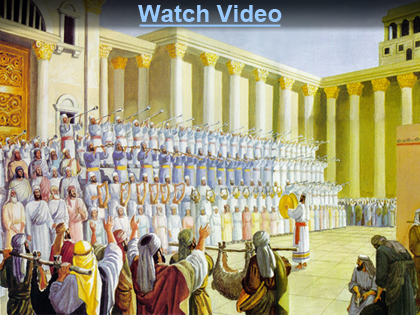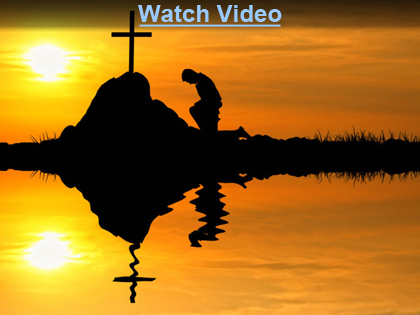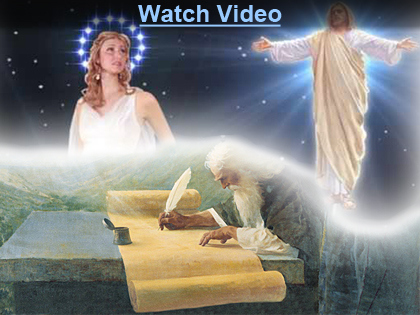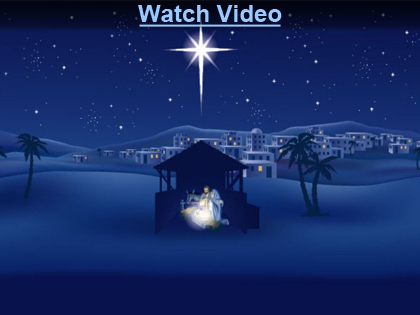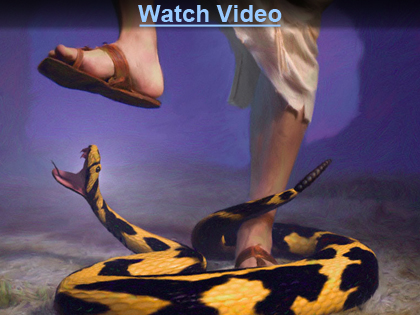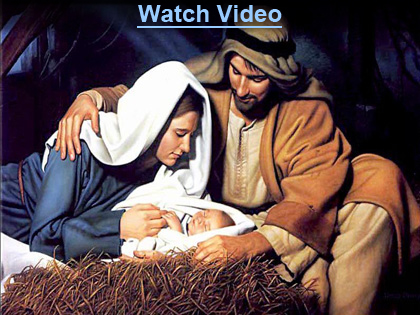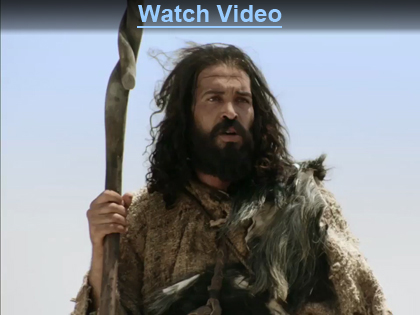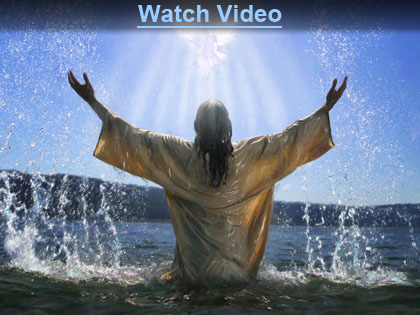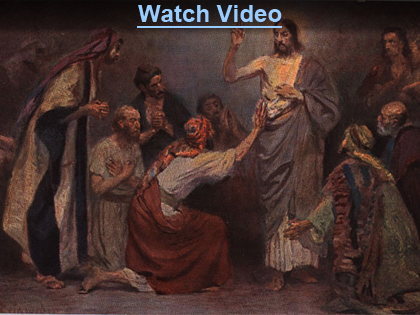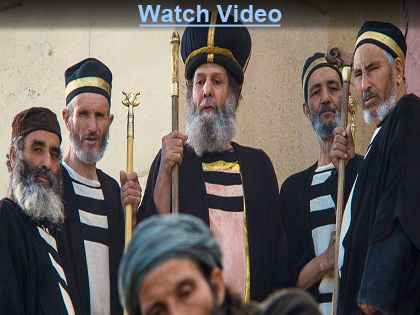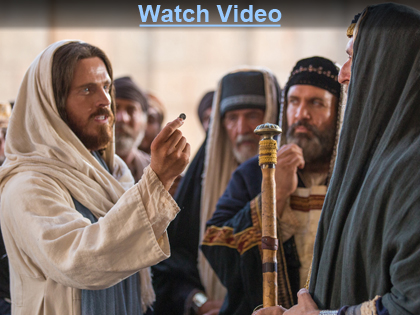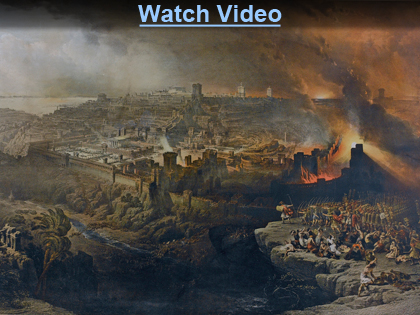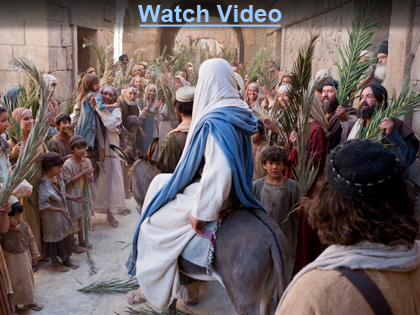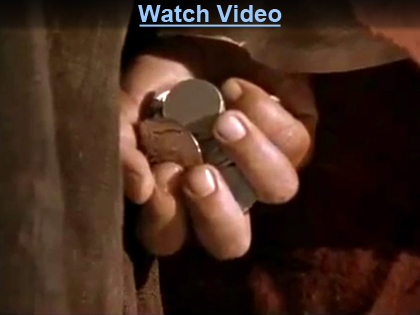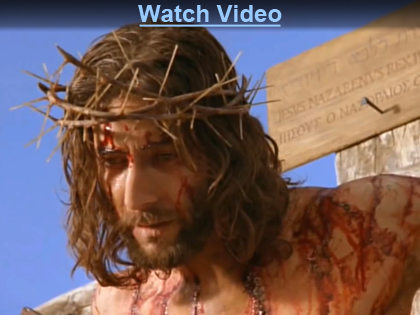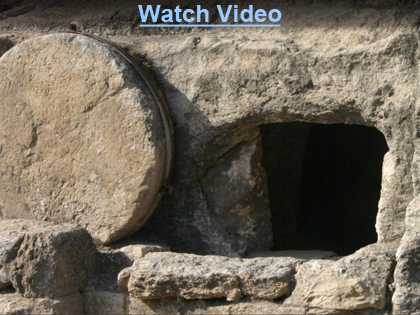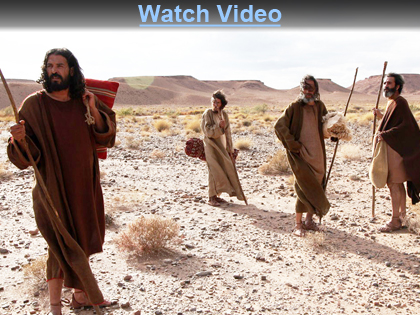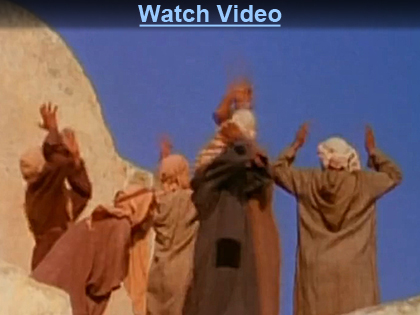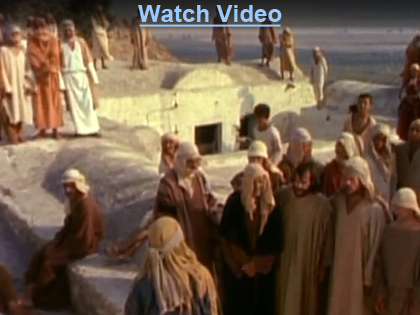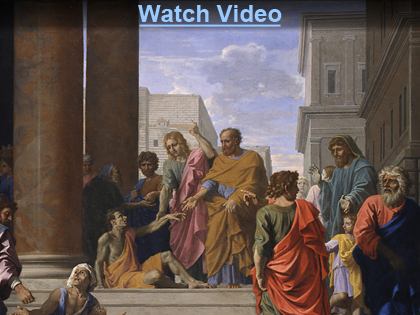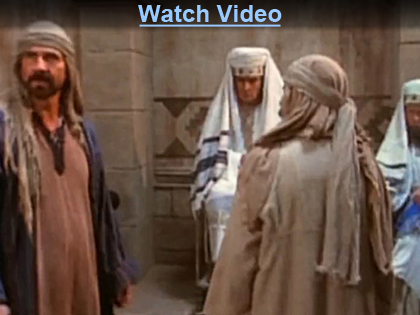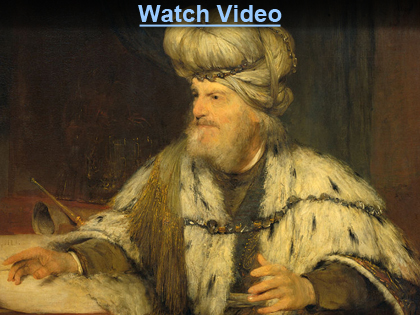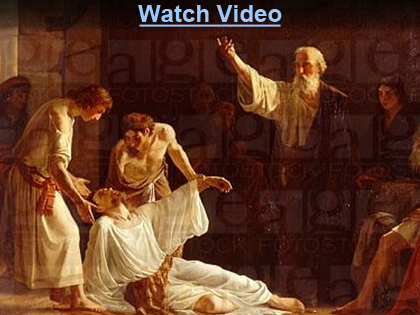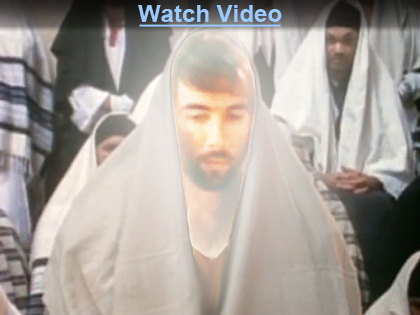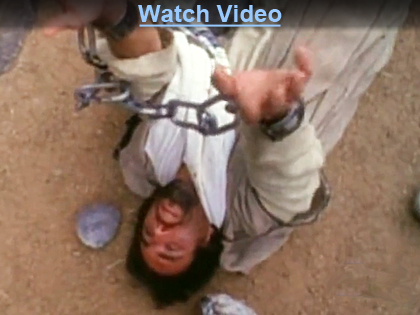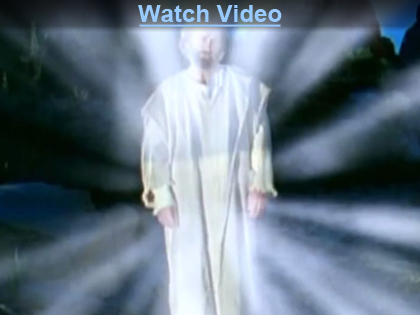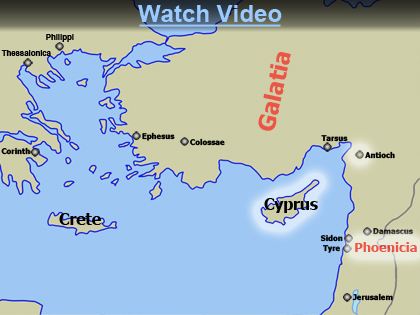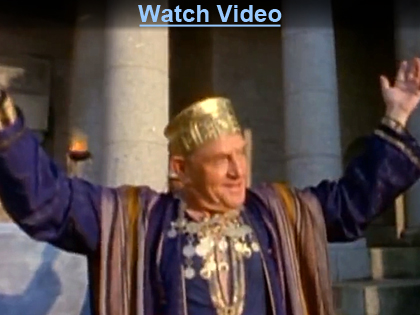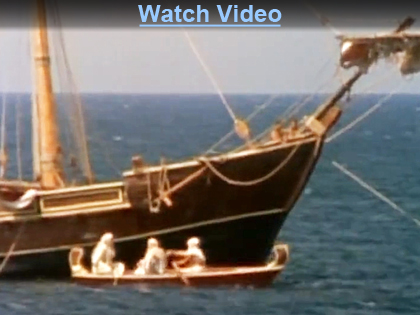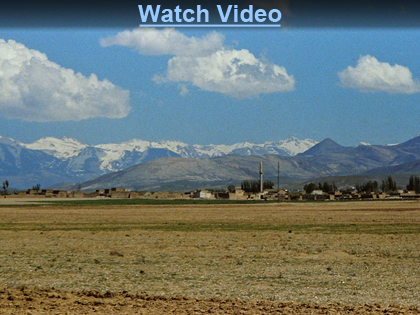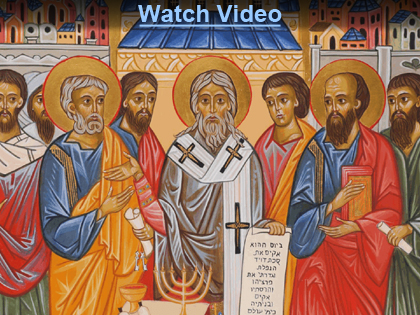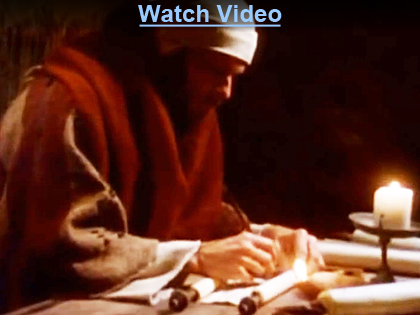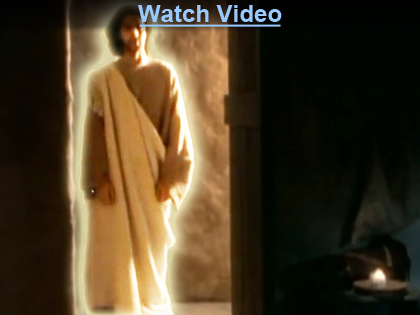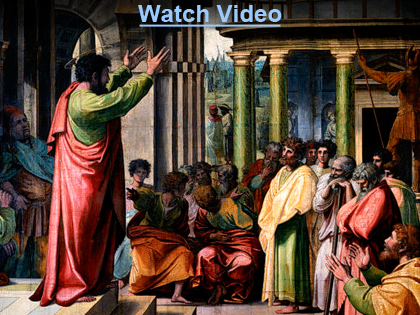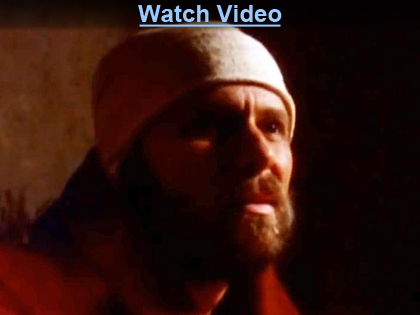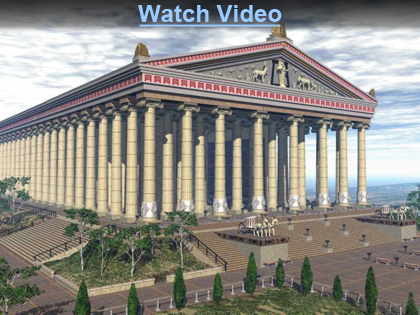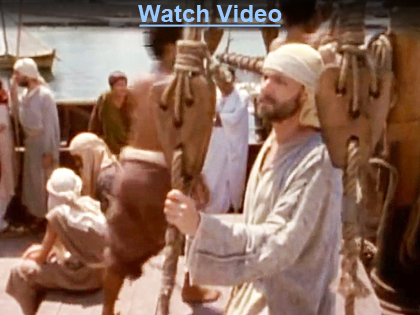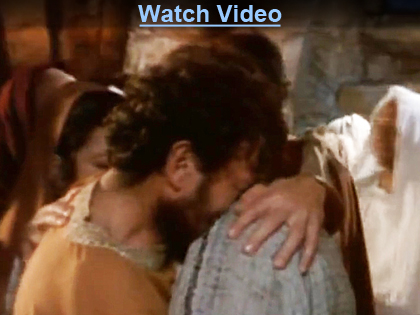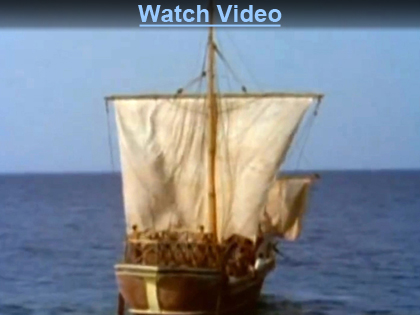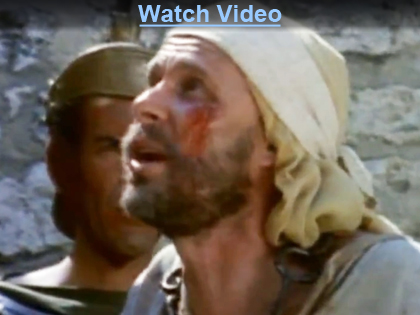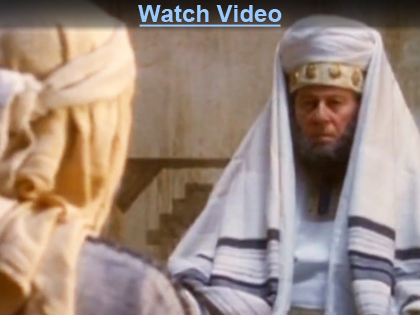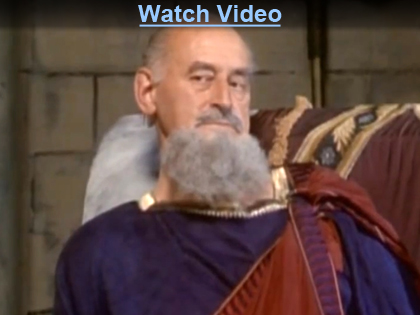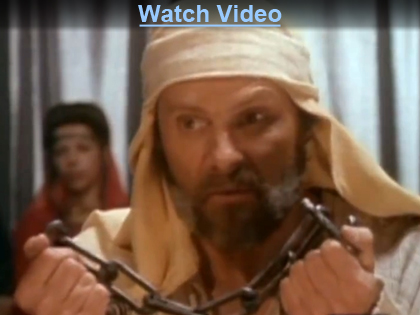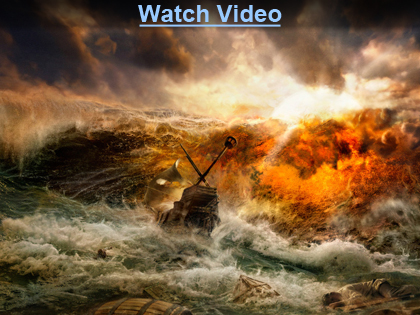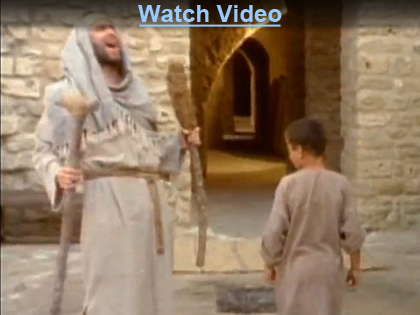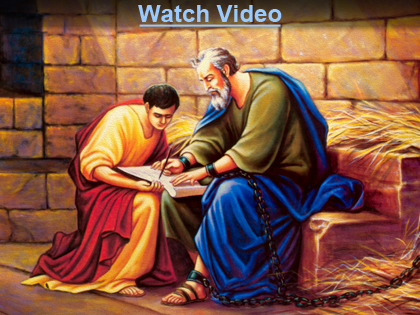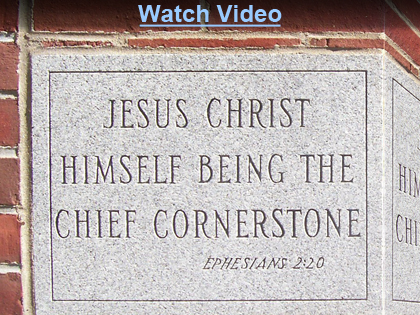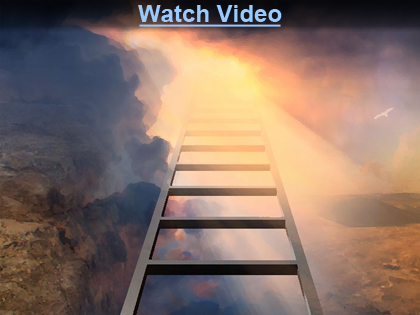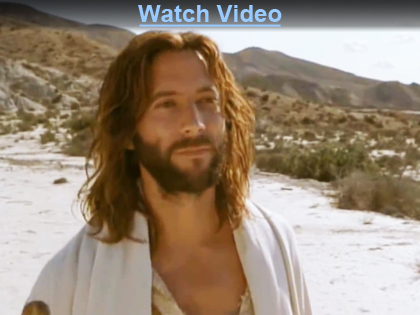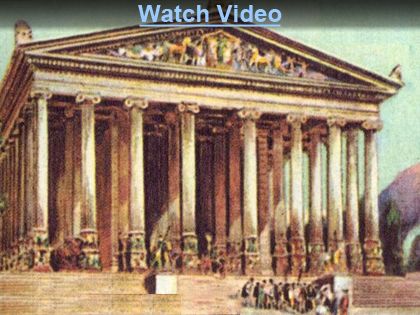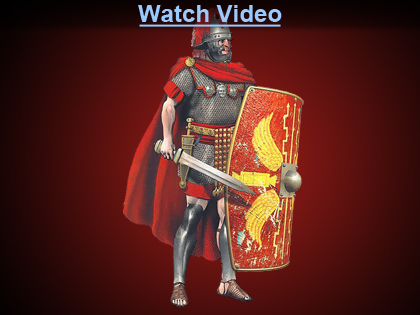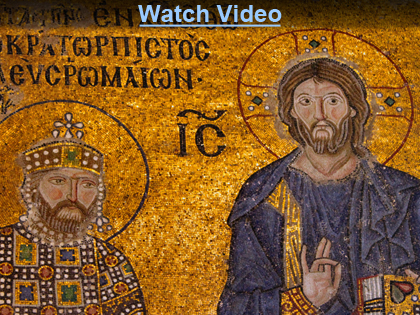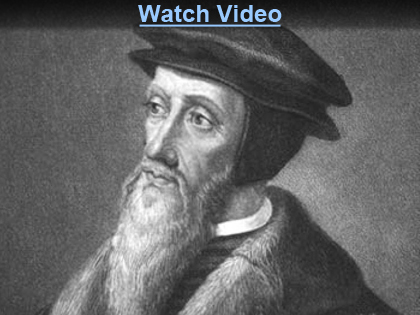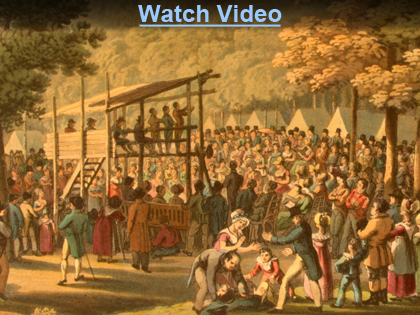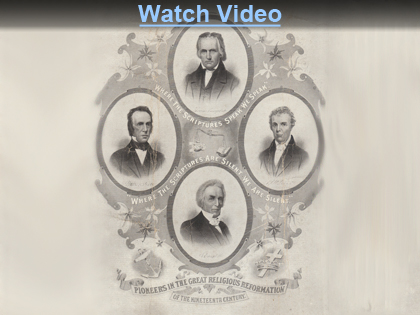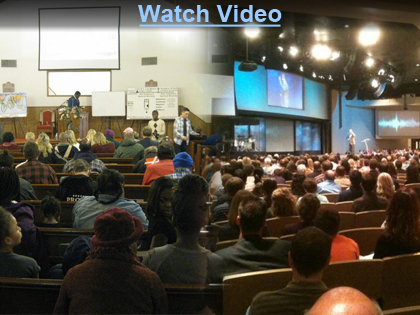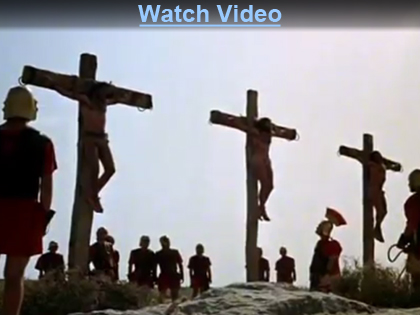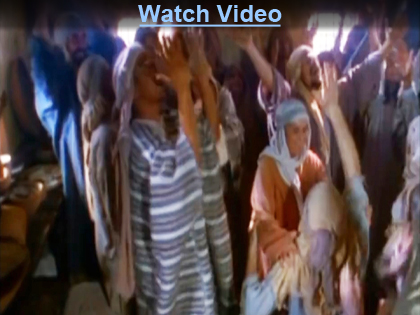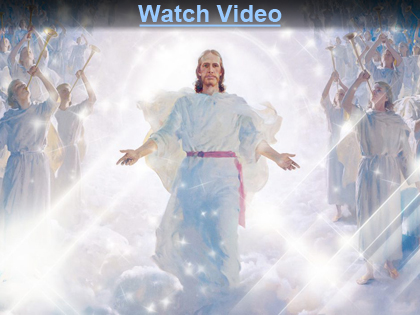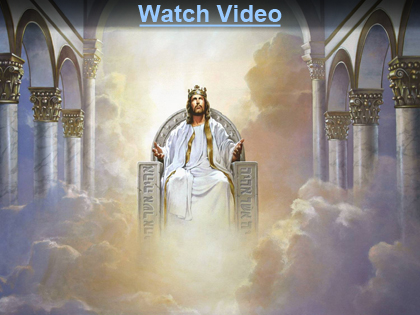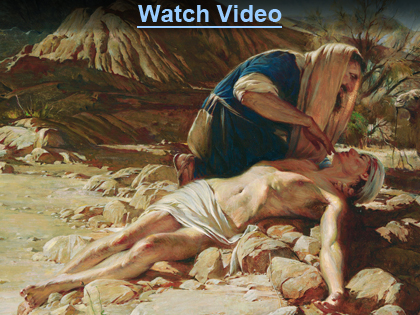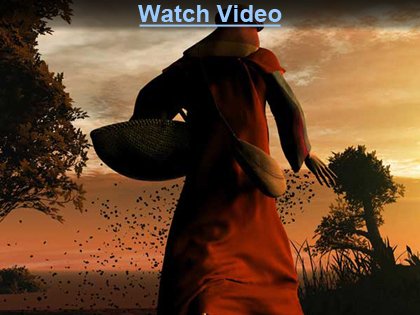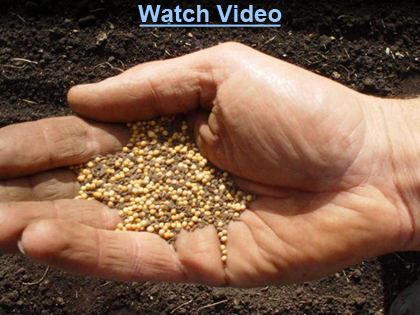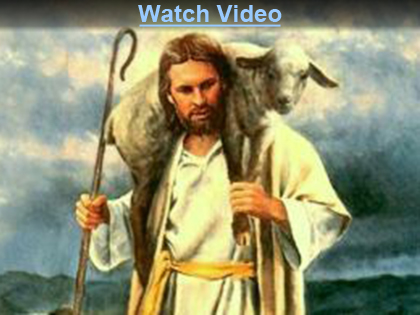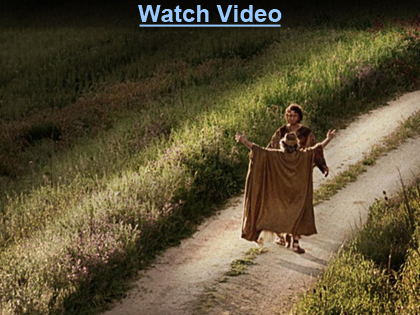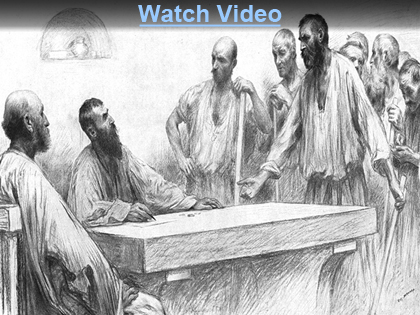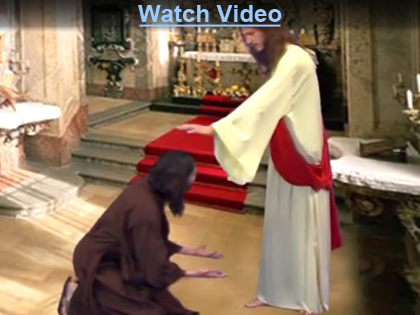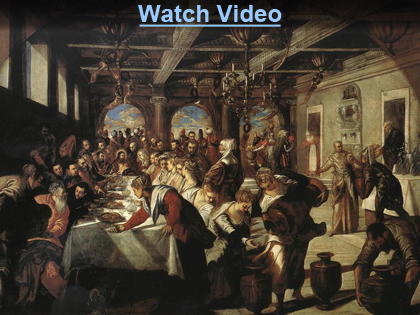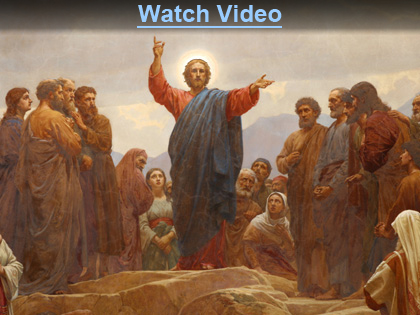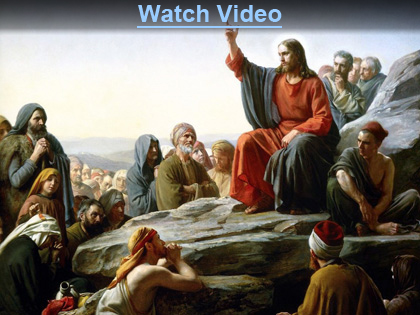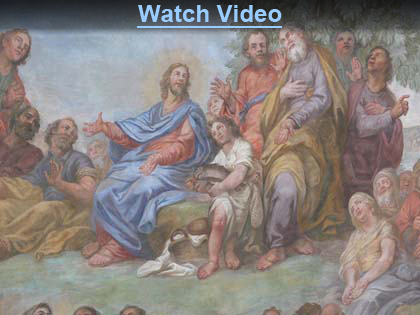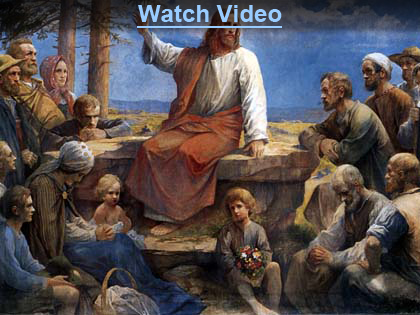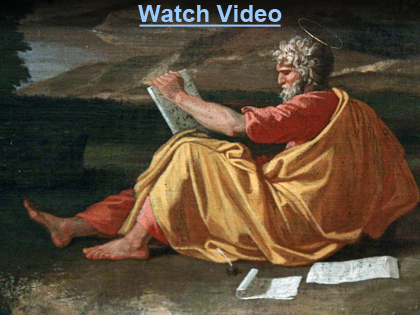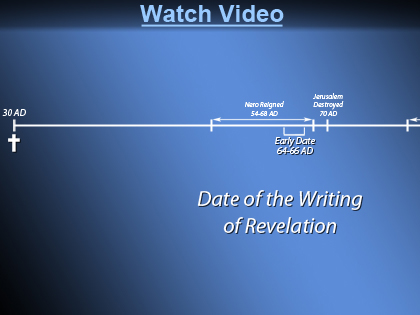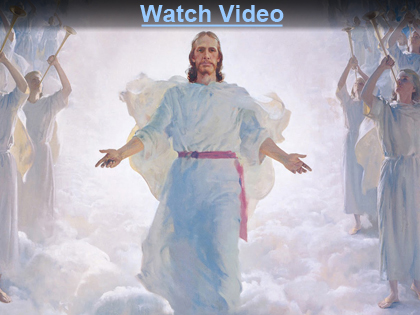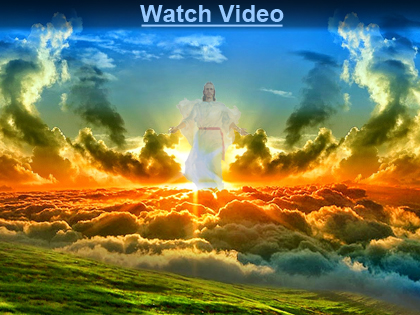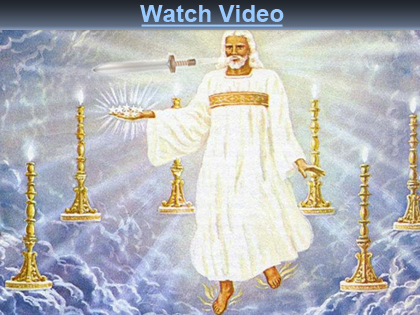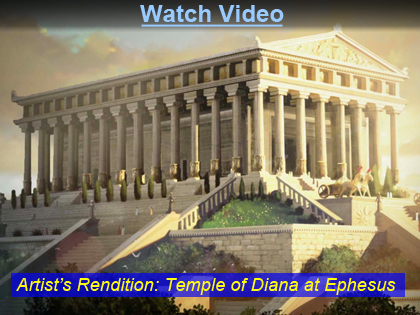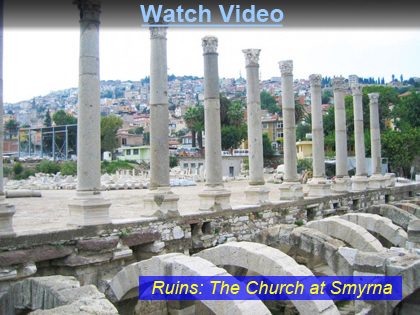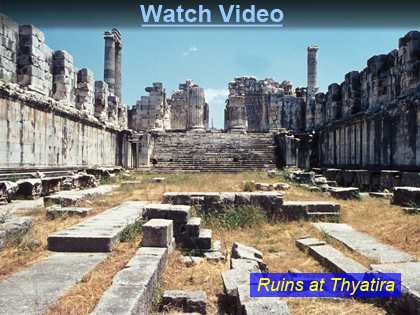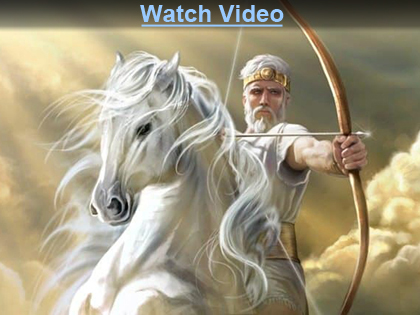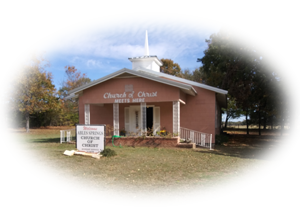
Video Playlists
Kelly Lawson's Sermons in Video, Audio and Written Form

All of the audio files on this page are in MP3 format.
Some devices can't play MP3 files. To listen to WMA files, Please Click Here.
The Bible: God's Own Word
God's Word, Part 1:
The Origin of the Bible
The Bible is a remarkable book - Its Teachings Divinely Inspired. Particularly in the 20th and 21st centuries, the Bible has been under attack by unbelievers. Unbelievers see the Bible as simply a work of the Hebrew nation to document their history and belief system, and many regard the historical accounts as flawed or fabricated. The Doctrine of Inspiration asserts that Bible revelation did not and could not have originated in the mind of man. The Bible claims to be "inspired", meaning "God breathed" [cf: II Timothy 3:16]. "No prophesy of the scripture is of any private interpretation - Holy men of God spake as they were carried along by the Holy Spirit" [II Peter 1:20]. Isaiah taught that when the Messiah comes, the way of truth would be easily understood - "...the wayfaring men, though fools, shall not err within" [Isaiah 35:8]. The unbelievers also scoff at the miracles documented in the Bible, accounting for scripture on strictly natural grounds. Bible miracles are contrary to ordinary human experience, but they are not contrary to reason. With God, miracles and the extraordinary are not contrary to reason. While miracles seem unlikely in our everyday lives, what could be impossible for a God who created the universe with a word?
God's Word, Part 2:
Not Human or Natural
Non-believers account for the Bible on natural rather than supernatural grounds. Some assume that men simply evolved over the centuries, writing and re-writing the scriptures into a coherent account. The Bible is not just more evolved than other religious documents, it makes sense where others don't. For instance, most civilizations have an account of a catastrophic flood that destroyed all people and land animals except for those saved by some hero in a boat. However, the ancient Mesopotamian, Sumerian, Assyrian, Babylonian and other accounts read like fairy tales, and they describe all of the animals being loaded into a small rowboat or a craft that doesn't even make sense. None of them describe the event or the vessel in any accurate or believable detail. The book of Genesis, however, gives detailed instructions and measurements for an ark that, if built according to the scripture, would be not only seaworthy, but more than capable of containing the number of land animals that would have existed in the quantities that God instructed Noah to save. It details the event in a believable way, which is typical of events described in the Bible and atypical of the religious writings of men. The Holy Scriptures did not originate in the human mind. They are not a human product and cannot be accounted for on natural grounds.
God's Word, Part 3:
The Devine Inspiration of the Bible
When men create their own religions they always imagine Gods that are like them, with all of their human flaws and attributes. Such people
as the Greeks and Romans had Gods that were proud, jealous, lustful, petty and vindictive. Men create religious laws
and methods of worship that please them, and therefore the people have no problem adhering to their religious practices. After all, what ungodly
person wouldn't like a worship service that involves indulging their carnal desires, having random anonymous sex in the temple? The Canaanites
and Egyptians seemed to have no problem adhering to their religions, while the Hebrews frequently abandoned their own religion in favor of the
carnal religions of their neighbors. If the Hebrews had created their religion out of their own minds, why didn't they construct a religion that
pleased them? Why were they always following after other people's religions? Because God's religion came from God, not man. It set a high standard
for man's behavior that man wouldn't have naturally chosen for himself. It revealed a God not ruled by men's desires, but pure in nature and conduct
such as men won't on their own achieve.
The Bible is altogether inspired and true, while the writings of other religions are altogether man-made and false. The Doctrine
of Inspiration asserts that men would have been incapable of creating a system annunciating it's teaching in the midst of changing conditions throughout
the centuries. There are things contained in scripture that no human intelligence could possibly have foreseen. For example, Isaiah wrote in detail
about the death, burial and resurrection of the Messiah 700 years before it happened. Isaiah even told us that the world was round 300 years
before Socrates [Isaiah 40:22].
God's Word, Part 4:
The Inerrant Word of God
When the Bible is properly interpreted, archaeology supports the events described in it. Bible deniers love to point out inconsistencies
such as the fact that no archaeological evidence supports a Hebrew conquest of Canaan during the 13th century BC. However, the common belief that
the exodus and subsequent conquest occurred in the 13th century is based solely on the Biblical mention of the Israelites leaving the city of Rameses.
But the city of Rameses was not called "Rameses" at the time that the exodus began. Rameses the Great (Rameses II) renamed the cities of both Tanis and Avaris
to "Rameses" during his reign 200 years after the exodus. (He also renamed the "Land of Goshen" where the Isrealites lived to the "Land of Rameses").
Those who later copied or translated the book of Exodus
updated the city's name to reflect it's current name, much the same as a historian might refer to Gaul as "iron age Europe" in order to give people
a better idea of it's current-day location. Such updates can be found in several places in the Old Testament. Following references to the date of the
Exodus and Canaanite conquest in Judges and Kings I, the date of the Exodus can be estimated at about 1,447 BC, when the Israelites would have left
the city of Avaris which was later renamed "Rameses" during Egypt's 19th dynasty. If
the Exodus happened in 1,447, then the conquest of Canaan would have begun in 1,407, after the Israelites had wandered 40 years in the
Sinai wilderness. Archaeological evidence for a conquest in the 14th and 15th centuries BC is abundant.
Critics try to consign the Bible to the same prominence as all of the mythological writings of the ancient world, but the Bible contains reasonable
wisdom that can be proven through science and archaeology, where the myths of Greeks and Romans describe such things as a God who physically
holds the world up on his shoulders. It's not that the Bible is simply a better revelation than Egyptian, Babylonian, Greek or Roman religions -
the Bible is altogether true while others are altogether false.
The Seed Lesson
Genesis 1:
The Creation Hymn
1st Day: Creation of heavens & earth [Genesis 1:1-2]. Light & separation from darkness [Genesis 1:3-5].
2nd Day: Creation of firmament, & separation of waters above firmament from those below it [Genesis 1:6-8].
3rd Day: Water separated from earth, seas formed [Genesis 1:9-10]. Earth rendered fruitful, clothed with trees, herbs, grass [Genesis 1:11-13].
4th Day: Creation of celestial luminaries, placement of earth intended for measurement of time, periods, seasons [Genesis 1:14], illuminated earth [Genesis 1:15]. Distinct account
of formation of sun, moon, & stars [Genesis 1:16-19].
5th Day: Creation of fish, fowl, reptiles in general [Genesis 1:20]. Great aquatic animals blessed to be prolific [Genesis 1:21-23].
6th Day: Land animals created [Genesis 1:24-25]. Man Created in image & likeness of God, dominion given him over earth & animals [Genesis 1:26]. Man, or Adam, name for humans, including male &
female [Genesis 1:27]. Their blessing [Genesis 1:28]. Vegetables appointed as food of man & animals [Genesis 1:29-30]. Judgment God passed on his works at conclusion of his creative acts
[Genesis 1:31-2:1].
God rested & blessed the Sabbath for Worship [Genesis 2:2].
Genesis 2 & 3:
The Seed or Child of a Woman to be the Messiah
This chapter is a further elaboration of the revelation of God regarding the creation. It must be rejected as irresponsible, unreasonable, and
unbelievably poor exegesis to make this chapter in any manner a "contradictory" account of the creation narrative of the previous chapter. There
is in this chapter a continuation of exactly the same pattern observable in the first, where, for example, Days 4, 5, and 6 are in each case
elaborations of that phase of creation presented in Days 1, 2, and 3, respectively. It is most logical and fully in keeping with the unity of
the entire book, therefore, to find here in Genesis 2 an elaboration of what was revealed in Genesis 1. In addition to this, the author of
Genesis (whom we believe is Moses) precisely and dramatically introduced the chapter in Genesis 2:4 as the ~toledowth~ of the heavens and the
earth, meaning not their beginning but the developments that followed after their creation. This term, ~toledowth~, is used ten times in the
book of Genesis, setting off what may be received as an accurate outline of the whole book; and in every instance, this word signifies "following
developments." [Hebrews 1:10-12 & Colossians].
The Serpent Deceives Eve: [Genesis 3:1-15]; The Seed of Woman, the Messiah Will walk all over Satan [cf: Galatians 3:16 & Galatians 4:4] Jesus Christ the only Seed of
Woman Not Begotten of Man [Genesis 3:15]; The Messiah, Christ, will bruise Satan [cf: Psalm 91:13], and The Church will overcome Satan, too [Luke 10:18-19 & Romans 16:20; Genesis 3:15 cf:].
Sin and Death came by Adam - Righteousness and Life Came by Christ Jesus [Romans 5:10-19; Colossians 2:15; Hebrews 2:14-15]; The Punishment of Mankind - The Loss of Paradise [Genesis 3:15-24].
Genesis 4-6:
From Cain and Abel to the Flood
Transmission of the Genesis story: Methuselah lived 969 years [Genesis 5:25-27], his life overlapped Adams' by 243
years, Noah by 600 years and Seth by 98 years, thus forming a connecting link between the Garden of Eden and the post flood world. Shem then lived till
75 years after Abraham entered Promised Land.
Ussher's Chronological Order places the Date of Creation of Adam at 4,004 BC, Septuagint (Greek Old Testament) some 1,500 years earlier. The
Hebrew Bible shows some 1,656 years between the Creation and the Flood. When was the Flood? If the Egyptian Kings List is correct, the Septuagint
date 5,500 BC less 1,656 years (3,844 BC). If there is duplication in the Kings List, then 4,004 BC less 1,656 years = 2,348 BC.
In the King James version Genesis 6 mentions "giants" [Genesis 6:4] - the original Hebrew word used is
"Nephilim". But the King James version translates eight different Hebrew words as "giants", including the word "nephilim". The Hebrew meaning for
nephilim is not giant men but men of renown, literally men of the name or men who had made a name for themselves.
Genesis 6-8:
Noah's Ark
Giants or Hebrew Nephilim: Not giant men but men of renown, literally men of the name or men who had made a name for themselves. Transmission of the Genesis story: Methuselah lived 969 years [Genesis 5:25-27], his life overlapped Adam's by 243 years, Noah's by 600 years and Shem's by 98 years, thus forming a connecting link between the Garden of Eden and the post flood world. Shem then lived until 75 years after Abraham entered the Promised Land. Date of Creation: Ussher's Chronological Order places date of creation at 4,004 BC, The Septuagint (Greek O.T.) some 1,500 years earlier. The Hebrew Bible shows some 1,656 years between Creation & Flood. When was the Flood? If the Egyptian Kings List is correct, the Septuagint date of 5,500 BC less 1,656 years. If there is duplication in the Kings List, then 4,004 BC less 1,656 years = 2,348 BC. Noah's Ark: approximately 450 feet long x 75 feet wide x 45 feet tall = 1,518,750 cubic feet, which is the storage capacity of 1,000 train box cars - an enormous ship. The Ringling Brothers Barman & Bailey Circus came to town in 56 box cars. Noah & the Flood [Genesis 5:28 - Genesis 6:12 cf: Job 22:12-17, Genesis 6:12-9:17]. Jesus believed Noah's Flood was an actual historical event and not a myth [cf: Matthew 24:34-39]. The Hebrew writer believed the history of Noah and the flood - [Hebrews 11:7], Peter taught of the flood [I Peter 3:19-21 & II Peter 2:4-9, Genesis 9:18-25].
Genesis 8 & 9:
A New Beginning, The Messiah to Come Through Shem
Chapter 8 continues the story of the Flood, including the period of the ark's floatation, coming to rest, and decrease of waters [Genesis 8:1-5], sending forth of raven and dove [Genesis 8:6-12], disembarkment [Genesis 8:13-19], and Noah's burnt-offering with God's response [Genesis 8:20-22]. The most remarkable thing in Chapter 9 is that the great hero of the Flood is here presented as a weak and sinful man, reason for this, in all likelihood being that of removing any thought that even one like Noah, who assuredly was "righteous in his generation," and "preacher of righteousness" [II Peter 2:5], would be able to provide the Saviour man needed. Only the Holy One, Jesus our Lord, would be able to do that.
Genesis 9-11:
The Table of Nations, Tower of Babel
It would be impossible to exaggerate the importance of this chapter, since it recounts the Second Hardening of mankind, in which, on the plains of Shinar there flowered the second general rebellion of humanity against the Creator. In the first, it began with a single act of disobedience. It resulted in the total corruption of Adam's race, the First Judicial Hardening of humanity, followed by the judgment of God upon their gross wickedness and the destruction of the whole antediluvian world in the waters of the Deluge. In this second instance, it also began with the shameful wickedness of Canaan: but resulted exaltation of man against his God became general in the events associated with the Tower of Babel and once more became so serious that the situation demanded God's direct interference with it. This came immediately in the form of the confusion of tongues and the introduction of the device of the Chosen People, through whom God would yet provide a Saviour and Redeemer for men. Therein lies the significance of the presentation of the family line of Shem, the Messianic line, here recorded in close connection with the events of Babel, and which stand here as an explanatory introduction to the call of Abraham. The first fall occurred among the flowers and fruits of Eden; the second one came in the bricks and asphalt of the city. Therefore, we see nothing less in this event than the Second Judicial Hardening of Adam's race, the first resulting in the Flood, this one resulting in the call of Abraham and the commissioning of a "Chosen People," by means of whom God's purpose of Redemption would still be achieved.
Genesis 11-12:
The Call of Abram, Father of the Faithful
It would be nearly impossible to overestimate the importance of the call of Abraham, the Friend of God, the Father of the Faithful, a man so important that he actually stands in the Bible as a type of Almighty God Himself. All the saved of all ages are in a specific and genuine sense "the children of Abraham" [Galatians 3:29]. In the great and universal drama of God's "Operation Rescue," Abraham corresponds to Noah, by means of whom God bridged the gap between the pre-flood and the post-flood worlds. It was by means of the choice of Abraham that God likewise bridged the tremendous gulf between the second great apostasy of humanity and the rising of that Sun of Righteousness with healing in his wings - our Lord Jesus Christ. Following the extremely significant departure of Adam's race from the path of duty in the events of Babel, the situation revealed every proof that a second worldwide debauchery was already in progress, but, as God had promised never more to destroy the whole world with a flood, the necessity of taking some other action became acute. That other action was the call of Abraham. The First Call. God first called Abram while he was living in the pagan city of Ur of the Chaldees [Acts 7:2-4], and although the Bible does not give the specific nature of that call as first delivered, the exact nature of it was given in the second instance of it which came in Haran. It should not be thought strange that the call came twice. "The word of the Lord came the second time unto Jonah" [Jonah 3:1], and, of course, it was exactly the same word that came the first time. We are therefore fully justified in the conclusion that God did not vary the call, and there was no need to change or amend it, and that the account of it in Genesis 12:1-4 of the repeated call in Haran likewise describes the first call. Such a conclusion also serves to explain why the second call became necessary. In the first, God had commanded Abram to leave his native land, his kindred, and his father's house, etc., but for some reason, Terah was not left in Ur, but accompanied Abram. This would appear to be the reason why, instead of going to Canaan as was their stated intention upon their departure from Ur, they went to Haran and settled there.
Genesis 12-14:
Abram in Egypt, Separation from Lot, and War with Four Petty Kings
[Genesis 13] - This chapter has the details of how Abram's separation from Lot finally came about. God, at the first, had commanded Abram to leave "his kindred" and "his father's house," but, somehow, Abraham had never really done this. There was no way that a man like Lot could be a part of the Chosen People, and, in the events of this chapter, the occasion of their separation appears. [Genesis 14] - The burden of the whole chapter is that of relating the account of the military operation in which Abram and his allies rescued Lot following his capture by a raiding party composed of an alliance of petty kings. The significant episode is Abram's encounter with Melchizedek. The discernible reasons for the inclusion of this here would appear to be for the purpose of revealing the great archtype of Jesus Christ, Melchizedek, the whole account being necessary in that presentation. That the Melchizedek incident is the important thing here is apparent in that the author of Hebrews devoted extensive passages to the discussion of it. For the purpose of emphasizing the fact that monotheism was not invented or even "discovered" by Abraham nor any of his posterity, but that it still remained on earth, however, in a limited and insufficient extent. Melchizedek was not a pagan but a follower of the true and only God. After all, with the consideration of the longevity of the patriarchs of that period, only a few generations had passed since the one true God revealed Himself to Noah and rescued him and his family from the Flood.
Genesis 15-17:
Covenant with Abram
God appears to Abram in vision, gives him great encouragement. Abram's request and complaint. God promises him a son, and exceedingly numerous posterity. Abram credits the promise, and faith is counted unto him for righteousness. Yahweh proclaims himself, renews promise of Canaan to his posterity. Abram requires sign of its fulfillment. Yahweh directs him to offer sacrifice of five different animals. God reveals affliction of his posterity in Egypt, and duration of affliction. Promises to bring them back to Canaan with great affluence. Renews covenant with Abram, and mentions the possessions which should be given to his posterity. Sarai, having no child, gives Hagar to Abram for wife. She conceives and despises mistress. Sarai offended, upbraids Abram. Abram vindicates himself; Hagar, being dealt with harshly by her mistress, runs away. She is met by angel, counseled to return to mistress. God promises greatly to multiply her seed. Gives name of Ishmael to child that should be born of her. Shows his disposition and character. Hagar calls name of Lord who spoke to her, Thou God seest me. She calls name of well at which angel met her, Beer-laharoi. Ishmael born in Abram's 86th year. In Abram's 99th year God again appears to him, announces his name as God Almighty, commands him to walk perfectly; proposes to renew covenant. Covenant specified. Abram changed to Abraham, and reason given. Privileges of covenant enumerated. Conditions of covenant to be observed, not only by Abraham, but all his posterity. Circumcision appointed as sign of covenant. Age and persons on whom this to be performed. Danger of neglecting this rite. Sarai's name changed to Sarah, particular promise made to her. Abraham's joy at prospect of matter which, in course of nature, impossible. Request for preservation and prosperity of Ishmael. Birth and blessedness of Isaac foretold. Great prosperity promised to Ishmael. Covenant to be established not in his, but in Isaac's posterity. Abraham, Ishmael and all males in family circumcised.
Genesis 17-19:
Abraham and Sarah Covenant, Sodom and Gomorrah
The Lord appears unto Abraham in Mamre [Genesis 18:1]. Three angels, in human appearance, come towards his tent [Genesis 18:2]. He invites them in to wash and refresh themselves [Genesis 18:3-5]; prepares a calf, bread, butter, and milk, for their entertainment; and himself serves them [Genesis 18:6-8]. They promise that within a year Sarah shall have a son [Genesis 18:9, Genesis 18:10]. Sarah, knowing herself and husband to be old, smiles & laughs at the promise [Genesis 18:11, Genesis 18:12]. One of the three, who is called the LORD, rebukes her, and asserts the sufficiency of the Divine power to accomplish the promise, [Genesis 18:13, Genesis 18:14]. Sarah, through fear, denies that she had laughed or showed signs of unbelief [Genesis 18:15]. Abraham accompanies these Divine persons on their way to Sodom [Genesis 18:16]; and that one who is called The LORD informs him of his purpose to destroy Sodom and Gomorrah, because of their great wickedness [Genesis 18:17-21]. The two former proceed toward Sodom, while the LORD remains with Abraham [Genesis 18:22]. Abraham intercedes for the inhabitants of those cities, entreating the Lord to spare them provided fifty righteous persons should be found in them [Genesis 18:23-25]. The Lord grants this request [Genesis 18:26]. He pleads for the same mercy should only forty-five be found there; which is also granted [Genesis 18:27, Genesis 18:28]. He pleads the same for forty, which is also granted [Genesis 18:29]; for thirty, with the same success [Genesis 18:30]; for twenty, and receives the same gracious answer [Genesis 18:31]; for ten, and the Lord assures him that should ten righteous persons be found there, he will not destroy the place [Genesis 18:32]. The LORD then departs, and Abraham returns to his tent [Genesis 18:33].
Genesis 21-22:
Abraham's Final Exam
This chapter details the birth of Isaac [Genesis 21:1-7], the weaning feast, and the mockery of Ishmael [Genesis 21:8-10]; the expulsion of Hagar and Ishmael from Abraham's household [Genesis 21:11-14]; the destitution and heavenly rescue of the exiles at Beersheba [Genesis 21:15-21]. Chapter 22 lies at the very heart of Genesis, and for that matter, at the center and citadel of the entire Old Covenant. The constitution and charter of Judaism and the embryo of Christianity lie side by side here in this inner womb of the O.T. The faith and obedience of Abraham put to a most extraordinary test [Genesis 22:1]. He is commanded to offer his beloved son Isaac for a burnt-offering [Genesis 22:2]. He promptly prepares to accomplish the will of God [Genesis 22:3-6]. Affecting speech of Isaac [Genesis 22:7]; and Abraham's answer [Genesis 22:8]. Having arrived at mount Moriah he prepares to sacrifice his son [Genesis 22:9-10]; and is prevented by an angel of the Lord [Genesis 22:11-12]. A ram is offered in the stead of Isaac [Genesis 22:13]; and the place is named Jehovah-jireh [Genesis 22:14]. The angel of the Lord calls to Abraham a second time [Genesis 22:15]; and, in the most solemn manner, he is assured of innumerable blessings in the multiplication and prosperity of his seed [Genesis 22:16-18]. Abraham returns and dwells at Beer-sheba [Genesis 22:19].
Genesis 25-31:
Isaac, Jacob, & Jacob's Ladder
The highlight of this chapter, of course, is Jacob's vision of the ladder reaching to heaven, the whole chapter being built around that event. The background fact of Jacob's being sent away to Paddan-aram with Isaac's wholehearted and unrestrained blessing, and also Esau's belated attempt to please his parents with a proper marriage are also related. Of special interest is Genesis 28:46 of the previous chapter, which we have included here because it gives a glimpse of the continued involvement of Rebekah in the crucial decisions of this family. It appears that she might, even here, have been less than candid with Isaac. Genesis 27:46 says, "And Rebekah said to Isaac, I am weary of my life because of the daughters of Heth: if Jacob take a wife of the daughters of Heth, such as these, of the daughters of the land, what good shall my life do me?" There's not a word here of the knowledge that Rebekah had regarding Esau's intention of killing Jacob, nor of the previous decision Rebekah had already made to send Jacob to her brother's home in Paddan-aram; and, while what she said was most certainly the truth, it was far from all of the truth. She may have feared that Isaac was still hostile because of the deception she and Jacob had perpetrated against him, and, also, she may have desired to conceal from him what she had heard regarding Esau's expressed intention to murder Jacob, thus not aggravating a situation already deplorable. Despite this lack of candor, it is hard to fault Rebekah for the skilled manner in which she prevailed with Isaac, who promptly bestowed fully the blessing, without reservation, which the Word of God, long known to him, had plainly commanded.
Genesis 31-37:
Jacob, Israel & Joseph
Here we have preliminaries for meeting of long-estranged brothers Jacob and Esau, a moving, dramatic account of their moving toward a reunion after many years of separation, both having meanwhile become wealthy. The actual, face-to-face meeting of brothers does not take place until Chapter 33, but all background for it is here. Jacob's fear, with which he had lived for so many years, his prayer for divine help in the approaching crisis, his precautions to protect his family against the potential hostility of Esau, with special concern for Rachel and her children, the rich gifts sent to Esau, his wrestling all night with an angel of God at Peniel, and, most significant of all, the heavenly award to Jacob of a new name, Israel - these are the events which have challenged thoughts of men for ages. Last paragraph of 29, and most of 30 relate the birth of Twelve Patriarchs. In Chap 31 record of Jacob's leaving Paddan-aram and taking the long journey back to his ancestral home at Beersheba, with him his wives and children and all the wealth which he gathered "beyond the River," Euphrates. We have in 33, the dramatic and beautiful reunion of twin brothers Jacob and Esau, whose lives were to figure so prominently in history of human redemption.
Genesis 37-41:
Joseph In Prison - Rags to Riches
Pharaoh's butler & baker, offended him, prisoned [Genesis 40:1-3]. Captain of guard gives them Joseph [Genesis 40:4]. Each has dream [Genesis 40:5). Joseph questions (Genesis 40:6-7]. Answer [Genesis 40:8]. Butler tells dream [Genesis 40:9-11]. Joseph interprets [Genesis 40:12-13]. Gives his history to Butler, & begs remember him when restored to office [Genesis 40:14-15]. Baker tells dream [Genesis 40:16-17]. Joseph interprets [Genesis 40:18-19]. Dreams fulfilled as interpreted, butler restored to office, & baker hanged [Genesis 40:20-22]. Butler forgets Joseph [Genesis 40:23]. Pharaoh's dreams [Genesis 41:1-7]. Magicians & wise men asked interpretation - could not [Genesis 41:8]. Butler recommends Joseph [Genesis 41:9-13]. Pharaoh commands him brought [Genesis 41:14]. Joseph before Pharaoh [Genesis 41:15-16]. Pharaoh repeats dreams [Genesis 41:17-24]. Joseph interprets [Genesis 41:25-32], directs how to provide [Genesis 41:33-36]. Pharaoh pleased appoints Joseph superintendent [Genesis 41:37-41]. Joseph receives badges of office & powers defined [Genesis 41:42-44].
Genesis 41-42:
Joseph's Dreams Come True / Philippine Mission Report

Sermon begins at 13:35
Pharaoh tells the dream to Joseph [Genesis 41:17-24]. Joseph interprets the dream [Genesis 41:25-32]. Joseph proposes measures to cope with the coming famine [Genesis 41:33-36]. Joseph is appointed chief administrator and given Pharaoh's ring as authority [Genesis 41:37-45]. The seven years of plenty [Genesis 41:46-53]. The seven years of famine [Genesis 41:54-57]. The most impressive thing about the chapter is its perfect fulfillment of the pattern reaching all the way back to the double dream of Joseph [Genesis 37], the dream that foretold the very events centering around this double dream of Pharaoh, a dream which Joseph's father accurately interpreted [Genesis 37:10]. The first pair of dreams was followed by a second pair, those of the butler and the baker related in the last chapter; and now, in this: Genesis 42. This, the sixth episode in the ~toledowth~ (generation) of Jacob, recounts the onset of the famine with its impact upon Israel, the ten sons journeying to Egypt to buy grain, Joseph's recognition of his brothers, and his maneuvering to keep Simeon bound in Egypt until they should return another day.
Genesis 42-46:
Jacob/Israel Comes to Egypt
In this chapter, Joseph makes himself known to his brothers [Genesis 45:1-8]; Joseph discloses his plans for moving the whole family of Jacob to Egypt until the famine is over [Genesis 45:9-15]; the invitation is ratified and confirmed by the king who also offered wagons for transport [Genesis 45:16-20]; the brothers depart with rich gifts and provisions for the family [Genesis 45:21-24]; Jacob, after a momentary hesitation, decides to accept Joseph's invitation [Genesis 45:25-28]. Genesis 46: We have already noted the dangers which threatened the destruction of Israel had God permitted them to remain in Canaan. And this entire last section of Genesis, called the (~toledowth) of Jacob, relates in the most thrilling and exciting manner imaginable just how God brought about the removal of Israel to Egypt, where, with an environment providentially prescribed, they would become in time the mighty nation that God had promised Abraham. Of course, the story of Joseph was a primary element in the chain of events culminating right here in the migration of Israel into Egypt.
Genesis 49:
The Sceptre of Judah to the Triumphal Entry of the Messiah
Jacob, about to die, calls his sons together that he may bless them, or give prophetic declarations concerning their posterity [Genesis 49:1, Genesis 49:2]. Prophetic declaration concerning Reuben [Genesis 49:3, Genesis 49:4]. Concerning Simeon and Levi [Genesis 49:5-7]; concerning Judah, to be the Kingly tribe "until Shiloh (the Christ) comes" Herod the Great an Edomite descendant breaks the chain of Judean rulers of the Government. How will we know the Christ? He will come riding in His Triumphal Entry upon an ass with the colt the foal of an ass in fulfillment of this prophecy and Zechariah 9:9 cf: Matthew 21 & Mark 11. [Genesis 49:8-12]; concerning Zebulun [Genesis 49:13]; concerning Issachar [Genesis 49:14, Genesis 49:15]; concerning Dan [Genesis 49:16-18]; concerning Gad [Genesis 49:19]; concerning Asher [Genesis 49:20]; concerning Naphtali [Genesis 49:21]; concerning Joseph [Genesis 49:22-26]; concerning Benjamin [Genesis 49:27]. Summary concerning the twelve tribes [Genesis 49:28]. Jacob gives directions concerning his being buried in the cave of Machpelah [Genesis 49:29-32]. Jacob dies [Genesis 49:33].
Genesis Overview Part 1:
Looking Back on Where We've Been
Before in the Beginning: [I Peter 1:20, Titus 1:2, Ephesians 1:4, II Timothy 19]; The Beginning: [Genesis 1:1-3]; Eternal Word: [John 1:1-3, v:14]; Sin: [Genesis 2:16-17]; Promise Messiah Seed Woman: [Genesis 3:15]; Seed singular: [Galatians 3:16]; Innocent Victim: [Genesis 3:21]; Sethetic Seed Line: [Genesis 4:25]; Descendants Seth & Cain Intermarry: [Genesis 6:1-2]; Violence, Evil & The Flood: [Genesis 6:4-14]; The Ark: [Genesis 7:1]; Seed Covenant through Noah: [Genesis 9:8-9]; The Seed Blessing: [Genesis 9:26]; Babel: [Genesis 11:1-9]; Abram's 1st Call in Ur: [Acts 7:2-4]; Abram to Haran: [Genesis 11:31-32]; Abram's 2nd Call in Haran: [Genesis 12:1] Promise of a Son: [Genesis 15:1-5]; The Christ Promised Abraham: [Galatians 3:16]; God Swears upon Himself to Fulfill the Promise: [Genesis 15:6-17]; Called Abraham: [Genesis 17:5-7]; Seed born by Sarah: [Genesis 21:1-12]; Abraham's Trial called to Sacrifice Isaac: [Genesis 22:1-2]; "In Isaac shall thy seed be called": [Genesis 21:12]; Abraham's Final Exam: [Genesis 22:5-18]; Abraham believed God would raise him from the dead: [Hebrews 11:19]; Seed Promise to Isaac: [Genesis 26:3-4]; Reaffirmed: [Genesis 26:23-24]; Jacob's Ladder: [Genesis 28:12]; Jesus is the Ladder: [John 1:51]; Seed promised through Jacob: [Genesis 28:12-14]; Bethel The House of God: [Genesis 28:19]; Scribal Editorial Update: [Genesis 12:8]; Jacob Called Israel: [Genesis 35:9-12]; Sceptre will not Depart from Judah: [Genesis 49:10]; Isaac Promises Esau - Fulfilled in Herod the Great: [Genesis 27:40]; Shiloh a proper name for the Messiah used 3 times in Scripture: [Isaiah 12:3]; Blind Man Healed at Siloam or Shiloh: [John 9:7]; Jesus' Greatest Miracle: [ John 9:32-33]; Jesus' Triumphal Entry Foretold: [Genesis 49:11]; Wine and Milk metaphor for Christ's Teaching: [Genesis 49:12]; Water, Wine & Milk Metaphor Christ's Teaching: [Isaiah 55:1]; Wine: [Matthew 9:17]; Milk: [I Peter 2:2]; O Taste and See that the Lord is Good: [Psalm 34:8].
Genesis Overview Part 2:
Looking Back on Where We've Been
Before in the Beginning: [I Peter 1:20, Titus 1:2, Ephesians 1:4, II Timothy 19]; The Beginning: [Genesis 1:1-3]; Eternal Word: [John 1:1-3, v:14]; Sin: [Genesis 2:16-17]; Promise Messiah Seed Woman: [Genesis 3:15]; Seed singular: [Galatians 3:16]; Innocent Victim: [Genesis 3:21]; Sethetic Seed Line: [Genesis 4:25]; Descendants Seth & Cain Intermarry: [Genesis 6:1-2]; Violence, Evil & The Flood: [Genesis 6:4-14]; The Ark: [Genesis 7:1]; Seed Covenant through Noah: [Genesis 9:8-9]; The Seed Blessing: [Genesis 9:26]; Babel: [Genesis 11:1-9]; Abram's 1st Call in Ur: [Acts 7:2-4]; Abram to Haran: [Genesis 11:31-32]; Abram's 2nd Call in Haran: [Genesis 12:1] Promise of a Son: [Genesis 15:1-5]; The Christ Promised Abraham: [Galatians 3:16]; God Swears upon Himself to Fulfill the Promise: [Genesis 15:6-17]; Called Abraham: [Genesis 17:5-7]; Seed born by Sarah: [Genesis 21:1-12]; Abraham's Trial called to Sacrifice Isaac: [Genesis 22:1-2]; "In Isaac shall thy seed be called": [Genesis 21:12]; Abraham's Final Exam: [Genesis 22:5-18]; Abraham believed God would raise him from the dead: [Hebrews 11:19]; Seed Promise to Isaac: [Genesis 26:3-4]; Reaffirmed: [Genesis 26:23-24]; Jacob's Ladder: [Genesis 28:12]; Jesus is the Ladder: [John 1:51]; Seed promised through Jacob: [Genesis 28:12-14]; Bethel The House of God: [Genesis 28:19]; Scribal Editorial Update: [Genesis 12:8]; Jacob Called Israel: [Genesis 35:9-12]; Sceptre will not Depart from Judah: [Genesis 49:10]; Isaac Promises Esau - Fulfilled in Herod the Great: [Genesis 27:40]; Shiloh a proper name for the Messiah used 3 times in Scripture: [Isaiah 12:3]; Blind Man Healed at Siloam or Shiloh: [John 9:7]; Jesus' Greatest Miracle: [ John 9:32-33]; Jesus' Triumphal Entry Foretold: [Genesis 49:11]; Wine and Milk metaphor for Christ's Teaching: [Genesis 49:12]; Water, Wine & Milk Metaphor Christ's Teaching: [Isaiah 55:1]; Wine: [Matthew 9:17]; Milk: [I Peter 2:2]; O Taste and See that the Lord is Good: [Psalm 34:8].
Exodus 1-2:
The Date of the Exodus
18th Dynasty - Moses & Hatshepsut?
In the second book of Moses, Exodus 1:1, Hebrews continue to live Goshen. There arose a king who knew not Joseph [Exodus 1:8]. Ahmose drove the Hyksos out of Egypt, & began putting Hebrews to work on public work projects, set taskmasters over them. [Exodus 2:1-3]. Pharaoh orders male children thrown in Nile. Moses placed in a basket in Nile, was found and taken in by Pharaoh's daughter (Hatshepsut?) [Acts 7:20-22], Moses is given an Egyptian name (Moses) & raised as an Egyptian [Acts 7:22-23], lived as Egyptian 40 years [Exodus 2:11-13], Moses kills an Egyptian (Senenmut?). Moses flees to Midian, is shepherd for 40 years, & was 80 years old when he returns to Egypt [Exodus 7:7]. Date of Exodus is proved by I Kings 6:1, Solomon reigned from 971BC to 931BC. Soloman's Temple was built in the 4th year of his reign, 971BC minus 4 years equals 967 BC, plus 480 years equals 1,447 BC for Exodus. Additional proof of early date of Exodus is in Judges 11:26, which was written about 1,100 BC when judge Jeph'-thah said to Am'-mon-ites that Israel already had been 300 years in Canaan Land. So 1,100 + 300 = 1,400, almost the actual date of 1,407 BC. From Korah who stood against Moses in Exodus 6:16-21 cf: Numbers 16 until the singer Heman [I Chronicles 6:31-37 & 15:16-17] who sang during the time of King David are 18 named generations. Add one generation to King Solomon giving 19 generations times the accepted average 25 years per generation and we have 475 years almost the exact Biblical number of 480 years between the Exodus and the 4th year of King Solomon.
Exodus 2-3:
"I AM"
Moses placed in basket in Nile, found and taken in by Pharaoh's daughter (Hatshepsut?) [Acts 7:20-22], Moses given Egyptian name & raised as an Egyptian [Acts 7:22-23], lived as Egyptian 40 years [Exodus 2:11-13], Moses kills Egyptian (Senenmut?). Moses flees to Midian, is shepherd for 40 years, & was 80 years old at the Exodus [Exodus 7:7]. Date of Exodus is proved by I Kings 6:1, Solomon reigned from 971BC to 931BC. Soloman's Temple was built in the 4th year of his reign, 971BC minus 4 years equals 967 BC, plus 480 years equals 1,447 BC for Exodus. Additional proof is in previous lesson. Moses at burning bush, "who sent me?" [Exodus 3:13-15], I Am that I Am [Matthew 22:32]; Jesus proves the resurrection by the present tense verb "AM". 7 times in the Gospel John Jesus claims to be God using expression, "I am." referring to Himself [cf: John 6:35]; I am the bread of life [John 8:12]; I am the light of the world [John 10:9]; I am the door [John 10:11]; I am the good shepherd [John 11:25]; I am the resurrection, and the life [John 11:25]; Jesus said unto her, I am the resurrection, and the life [John 14:6]; I am the way, the truth, and the life [John 14:6]; Jesus saith unto him, I am the way, the truth, and the life [John 15:1]; and I am the true vine.
Exodus 4-7:
Moses Confronts Pharoah "Let My People Go"
"Let my people go" [cf: Exodus 3:12; 4:23; 7:16; 8:1; 8:20; 9:1; 9:13; & 10:7]. Chapter 4 gives a prophetic summary of the deliverance of Israel before the events actually happened. In Exodus 3, God dealt with two of Moses' objections: (1) Who am I? and (2) What is thy name? The Great "I AM". And here, three other objections are encountered and dealt with: (3) "They will not believe" [Exodus 4:1]; (4) "I am not eloquent" [Exodus 4:10]; and (5) "Send ... by the hand of whom thou wilt send" [Exodus 4:13]. Chapter 5 gives the account of the first episode in the long confrontation between God and Pharaoh over the demand that he, "Let My people go!" It reveals that the Hebrews were not yet ready for deliverance, but that they should suffer hardship before their liberty could be achieved. "The Hebrew slaves must learn that they too must suffer loss. They will have to pay the price of their liberty-to-be. It is not just a gift from God.". Chapter 6 is a renewal, not a variable account of the call in Midian. The necessity for this renewal of Moses' commission is inherent and demanded by his doubt and discouragement. He simply could not have gone on without it. Preparations and preliminaries have been completed. Here begins the deliverance of Israel from Egyptian slavery. First, there is a prophetic projection of the entire operation [Exodus 7:1-7]. The introductory miracle is related [Exodus 7:8-13]; and Plague I is threatened in detail [Exodus 7:14-19].
Exodus 7-9:
"Against all the gods of Egypt will I execute judgment"
"...and against all the gods of Egypt I will execute judgment: I am the Lord" [Exodus 12:12]. Plague 1: Waters of Nile turned to blood - Egyptians worshipped Anuket, goddess of the Nile. This name means giver of life, lady life... also Hapi... an Egyptian God of the Nile, he was a water bearer. [cf: Exodus 7:20-21 ff]. Plague 2: Plague of Frogs - Egyptians worshiped Heqet (Heket), goddess of fertility, depicted as naked woman with frogs head. [cf: Exodus 8:1-7ff]. Plague 3: Lice - Egyptians worshiped Geb, their god over dust of earth. [cf: Exodus 8:16-19 ff]. Plague 4: Swarms of Flies - Khepri, Egyptian God of creation, movement of the Sun, rebirth - Khepri had the head of a fly. [cf: Exodus 8:20 ff]. Plague 5: Death of Cattle and Livestock - a Grievous pestilence - Egyptians worshiped Hathor, Egyptian Goddess of Love and Protection. Usually this Goddess was depicted with the head of a cow. They also worshiped the Apis - the divine bull, a manifestation of the god Ptah. The Apis is the calf of a cow which is never afterwards able to have another. The Egyptian belief is that a flash of light descends upon the cow from heaven, and this causes her to conceive Apis. [cf: Exodus 9:1-7 ff]. Plague 6: Plague of Boils - Egyptians worshiped Isis, goddess of medicine & peace. Ashes thrown in the air turned to boils and sores with pus. [cf: Exodus 9:8-12 ff].
Exodus 9-10:
Plagues 7 thru 9
"against all the gods of Egypt I will execute judgment". Plague 7: Hail [Exodus 9:23], against Shu, god of atmosphere. Plague 8: Locusts [Exodus 10:14], against Serapis, protector from locusts. Plague 9: Darkness [ Exodus 10:22], against Ra, the sun god.
Exodus 11-12:
The Final Plague Foretold
Types & Shadows of a New Covenant
Plague 10: The death of first-born sons [Exodus 11:5] was against Plah, god of life.
This is a transitional chapter. To this point, Moses has been dealing with Pharaoh, but, with God's judgmental punishment of Egypt about to be completed,
Moses' concern (beginning with Exodus 12) will focus upon Israel. The section of Exodus ending with this chapter may be called JUDGMENT; the rest of the book
may be called DELIVERANCE. Even the Tenth Plague prophesied here will not require the instrumentality of Aaron or Moses. Without human instrument, God will
slay the first-born, and Moses will be busy with instructions concerning what Israel is to do as their deliverance approaches. Exodus 11:1-3 is parenthetical,
resulting in confusion unless this is understood. This parenthesis is at once followed by the conclusion of the interview in progress at the conclusion of Exodus 10.
Exodus 12:
Death of Egypt's Firstborn, Exodus Begins
"This month shall be unto you the beginning of months: it shall be the first month of the year to you." [Exodus 12:1-2]. Now, with God's final judgement of Eqypt's gods about to begin, the current month (the Jewish month of "Abib") is declared by God as Israel's first month of the year. Passover is instituted; Each family was to provide one lamb or kid, taken from their flock on the 10th day of month, [Exodus 12:3-4]. This lamb or kid was to be a male in it's 1st year and without blemish [Exodus 12:5]. It was to be killed on 14th day [Exodus 12:6], and blood from the kid or lamb was to be painted on the side posts & lintels of each family's door [Exodus 12:7]. The flesh was to be roasted, not eaten sodden (boiled) or raw [Exodus 12:8-9]; all eaten on the passover night, no part was to be left till morning [Exodus 12:10]. They were to eat it with their loins girded, etc. - prepared for journey [Exodus 12:11].
It was called passover because the Lord would pass over every house with lamb's blood on thier doorpost: " For I will pass through the land of Egypt this night, and will smite all the firstborn in the land of Egypt..." [Exodus 12:12]. The blood on door posts was a token of preservation from the destroying angel [Exodus 12:13]. The 14th day of the month of Abib was to be a feast forever [Exodus 12:14]. Unleavened bread eaten for 7 days [Exodus 12:15]. This passover was to be observed forever [Exodus 12:17-20]. Moses instructs elders how to offer lamb, sprinkle blood, for what purpose [Exodus 12:21-23]. Binds them instruct children in rite [Exodus 12:24-27]. Children of Israel act as commanded [Exodus 12:28]. First-born of Egypt slain [Exodus 12:29-30]. Pharaoh & Egyptians urge Moses, Aaron, & Israelites to depart [Exodus 12:31-33]. Prepare for departure, get gold, silver, & raiment from Egyptians [Exodus 12:34-36]. Journey from Rameses to Succoth, 600,000 men, besides women, children, & mixed multitude [Exodus 12:37-38]. Bake unleavened cakes of dough they brought out of Egypt [Exodus 12:39]. Time sojourned in Egypt [Exodus 12:40-42]. Ordinances concerning Passover [Exodus 12:43-49]; observed by people, brought out of Egypt [Exodus 12:50-51].
The First Passover, The Last Supper
Jesus desires to eat a Passover with his disciples, and assures them of his approaching death, and that one of them would betray him
[Matthew 26:17-21]. On each asking, Is it I? Christ asserts that Judas is the traitor [Matthew 26:22-25]. Having eaten his last supper,
he institutes the Lord's Supper, to be observed in his Church as a memorial of his sacrificial death [Matthew 26:26-29]. They sing a hymn,
go to the mount of Olives, and he again announces his approaching death and resurrection [Matthew 26:30-32]. Reasons why they should act
differently [I Corinthians 11:7-16]. They are also reproved for their divisions and heresies [I Corinthians 11:17-19], and for the irregular
manner in which they celebrated the Lord's Supper [I Corinthians 11:20-22]. The proper manner of celebrating this holy communion laid down
by the apostle [I Corinthians 11:23-26]. Directions for receiving of the Lord's Supper, and avoiding the dangerous consequences of
communicating in a unworthily manner [I Corinthians 11:27-34].
This Last Supper was foreshadowed by the first Passover in Exodus 12, and is symbolic of deliverance from our slavery to sin.
Parting of the Red Sea, "The Greatest Commandment", The First 2 Commandments
Exodus 14 recounts Pharaoh's pursuit of God's children, and thier ultimate demise at the Red Sea. Much discussion is made of the exact place where the Israelites crossed
the sea, and at least three locations are often posited. Unbelievers and those who like to minimize miracles in scripture often point out that a crossing at the area known as
the "Great Bitter Lake" would have, at certain times of the year, involved the Israelites wading through shallow water. But if this were true, then how were Pharaoh's
soldiers drowned in knee-deep water?
God's division of the Decalogue (the 10 Commandments) was two tables of stone, a division honored by Christ himself who marked the divisions as "Duties to God,"
and "Duties to Man" [Mark 12:28-31]. No one could live the Law perfectly, so the "law was our school master" or tutor to bring us to Christ so that we might be saved
by "the faith of Christ" [cf. Galatians 3] (1) if the Jew did his best to live up to the law (and failed, as all must fail), he nevertheless stood condemned anyway;
(2) but if the Christian does his best to keep all of the commandments of the gospel (failing in particulars, as all must fail), he is nevertheless un-condemned,
because through his identity with Christ being found "in Christ" and "as Christ", the righteousness of Christ, with whom the true Christian is fully justified; stands
in the stead of his own failure saving his soul anyway [Galatians 3].
Exodus 20:
The Ten Commandments - Shema Yisrael
(Shema Yisrael sung in the middle of sermon) God's division of the Decalogue (the 10 Commandments) was two tables of stone, a division honored by Christ himself who marked the divisions as "Duties to God," and "Duties to Man" [Mark 12:28-31]. No one could live the Law perfectly, so the "law was our school master" or tutor to bring us to Christ so that we might be saved by "the faith of Christ" [cf. Galatians 3] (1) if the Jew did his best to live up to the law (and failed, as all must fail), he nevertheless stood condemned anyway; (2) but if the Christian does his best to keep all of the commandments of the gospel (failing in particulars, as all must fail), he is nevertheless un-condemned, because through his identity with Christ being found "in Christ" and "as Christ", the righteousness of Christ, with whom the true Christian is fully justified; stands in the stead of his own failure saving his soul anyway [Galatians 3].
The Ten Commandments - The New Covenant
God's division of the Decalogue (the 10 Commandments) was two tables of stone, a division honored by Christ himself who marked the divisions as "Duties to God," and "Duties to Man" [Mark 12:28-31]. This in Hebrews 8 is from Jeremiah 31:31ff and is quoted by the author as scriptural proof that the abrogation of the old covenant is nothing which should shock his readers, since God long ago had prophesied in this very place that it would be done away with & replaced with a new covenant. To be sure, the author could have quoted some very convincing and powerful words of Christ and his apostles as sufficient authority for hailing the old covenant as obsolete and abolished; but it should be kept in mind that he was addressing a group of people who had a strong emotional tie with the Old Testament, and it was therefore better procedure on his part to prove his proposition from the Old Testament. For proper identification of the "covenant" Jeremiah had in mind, the one to be abrogated [Hebrews 8:1-7]. Gives Two basic reasons why the old covenant was abolished & nailed to the Cross.
The New Covenant is the Covenant of Promise
God's division of the 10 Commandments was marked as "Duties to God," and "Duties to Man" [Mark 12:28-31]. This in Hebrews 8 is from Jeremiah 31:31ff and is quoted by the author. God long ago had prophesied in this very place that it would be done away with & replaced with a new covenant. To be sure, the author could have quoted some very convincing and powerful words of Christ and his apostles as sufficient authority for hailing the old covenant as obsolete and abolished; but it should be kept in mind that he was addressing a group of people who had a strong emotional tie with the Old Testament, and was therefore better procedure on his part to prove his proposition from Old Testament. For proper identification of the "covenant" Jeremiah had in mind, the one to be abrogated [Hebrews 8:1-7]. Gives Two basic reasons why the old covenant was abolished & nailed to the Cross. Galatians 3:1ff teaches that "... the covenant, that was confirmed before of God in Christ, the law, which was four hundred and thirty years after, cannot disannul, that it should make the promise of none effect."
Exodus 25-40 & Hebrews 9:
The Church of Christ is The Temple of God
The O.T. sanctuary mentioned here is doubtless the tabernacle constructed and erected in the wilderness by Moses upon instructions of God; and the fact that the more ancient tabernacle, rather than Solomon's or the Herodian temple, is viewed here should not be thought as an indication that the temple was not then standing, or that the recipients of this epistle were not Jewish. It is precisely in line with the author's thesis that he should go back to the original tabernacle, erected according to the pattern God gave Moses, rather than appeal to the temple then standing, which, after all, had been copied from the tabernacle in all its essential details. The word "ordinances" in this place means "regulations." Beginning here is a detailed and extensive contrast between that worldly sanctuary, whether the tabernacle or the temple, which was the center of the Jewish religious institution, with the heavenly counterpart of it which is the grand theater of the redemptive ministry of Jesus. "Divine service" is an implication that God is recognized as the author of all those things in the "sanctuary of this world" and the blood of Jesus is the only acceptable sacrifice which was shown as a shadow in the O.T. Worship.
"There shall come a Star out of Jacob and a Scepter shall rise out of Israel"
Numbers 24:17 I shall see him, but not now: I shall behold him, but not nigh: there shall come a Star out of Jacob, and a Scepter shall rise out of Israel... Although men came to believe a star would & did herald the birth of the Messiah... Christ himself and not the star that was seen at his birth is the primary fulfillment of the prophecy. Revelation 22:16 - "I Jesus have sent mine angel to testify unto you these things in the churches. I am the root and the offspring of David, [and] the bright and morning star." Can anyone imagine two things more unlike than a root and a star? This proves that the Holy Spirit gave these words, for no man would ever have dared to describe the Lord in one breath as a root and a star. Yet, both terms are frequently applied to Christ in Scripture. The metaphor of the root appears in Revelation 5:8; Romans 15:12; Isaiah 11:1-2; & here... That of the star is in Numbers 24:17; Matthew 2:2; II Peter 1:19 & here. Let us Look at the contrast in these metaphors.
Conquest of Canaan & Now to Conquer All The World
[Lev. 18:25, Deut.12:2-3, 12:30-31] One of Moses's last acts was to commission Joshua as his successor, Joshua is to conduct a Holy War and drive the wicked Canaanite people from land [Josh. 1:1-9, 3:14-17, 5:1]. In the "we" section, the author claims eyewitness. Jericho's Defenses reflect the Middle Bronze Age (1,750BC - 1,500BC), but there is evidence that some cities like Jericho that had not been destroyed since the Middle Bronze Age continued to use their old defense walls into the Late Bronze Age. Jericho was built on a tell or hill, and the present-day archaeological site known as City IV encompassed only a few acres and less than 2,000 people lived there. [Joshua 6:2] - The word indicates the wall fell beneath itself. Archaeologist John Garstang dug the site during the 1930's and found a collapsed double city wall of mud bricks built upon retaining walls of stone. Garstang dated the destruction of City IV to 1,400BC. Recently in the 1980's a new dig shows that this retaining wall is setting on bed rock. From 1952 to 1958 Kathleen Kenyon excavated Jericho. Her conclusions were based solely on the absence of Cypriot bi-chromeware pottery. It is fundamental science that the absence of evidence is NOT evidence. Bi-chromeware is a key marker for the transition to the beginning of the Late Bronze Age from the previous Middle Bronze Age. Brant Wood, an expert in Canaanite pottery traveled the world over examining both Garstang and Kenton's pottery finds in Museums. Kenyon did not look at the pottery that Garstang had found in City IV, which included the very Cypriot Bi-chromeware that she could not find, which was the basis of her conclusion that the Bible was fiction. Furthermore she ignored all the pottery she did find which was all Canaanite, and every piece dated to about 1,400BC - at the beginning of the Late Bronze Age (1,450-1,400BC). Woods also examined Egyptian Scarabs impression seals. The royal tombs of Jericho contained these Scarabs from the Egyptian 18th dynasty, a time when Kenyon said there was no city of Jericho. Well, the Scarabs found in the royal tombs prove that there was a King of Jericho during the Late Bronze Age. Scarabs of Hatshepsut, Thutmose III & Amenhotep date right up to 1,400 BC. You will remember it was Amenhotep II that we identified as the Pharaoh of the Exodus [I Kings 6:1].
Joshua's Long Day - The Sun Shine Still & the Moon Shine Still
[Lev. 18:25, Deut.12:2-3, 12:30-31] One of Moses's last acts was to commission Joshua as his successor, Joshua is to conduct a Holy War and drive the wicked Canaanite people from land [Josh. 1:1-9, 3:14-17, 5:1]. In the "we" section, the author claims eyewitness. Jericho's Defenses reflect the Middle Bronze Age (1,750BC - 1,500BC), but there is evidence that some cities like Jericho that had not been destroyed since the Middle Bronze Age continued to use their old defense walls into the Late Bronze Age. Jericho was built on a tell or hill, and the present-day archaeological site known as City IV encompassed only a few acres and less than 2,000 people lived there. [Joshua 6:2] - The word indicates the wall fell beneath itself. Archaeologist John Garstang dug the site during the 1930's and found a collapsed double city wall of mud bricks built upon retaining walls of stone. Garstang dated the destruction of City IV to 1,400BC. Recently in the 1980's a new dig shows that this retaining wall is setting on bed rock. From 1952 to 1958 Kathleen Kenyon excavated Jericho. Her conclusions were based solely on the absence of Cypriot bi-chromeware pottery. It is fundamental science that the absence of evidence is NOT evidence. Bi-chromeware is a key marker for the transition to the beginning of the Late Bronze Age from the previous Middle Bronze Age. Brant Wood, an expert in Canaanite pottery traveled the world over examining both Garstang and Kenton's pottery finds in Museums. Kenyon did not look at the pottery that Garstang had found in City IV, which included the very Cypriot Bi-chromeware that she could not find, which was the basis of her conclusion that the Bible was fiction. Furthermore she ignored all the pottery she did find which was all Canaanite, and every piece dated to about 1,400BC - at the beginning of the Late Bronze Age (1,450-1,400BC). Woods also examined Egyptian Scarabs impression seals. The royal tombs of Jericho contained these Scarabs from the Egyptian 18th dynasty, a time when Kenyon said there was no city of Jericho. Well, the Scarabs found in the royal tombs prove that there was a King of Jericho during the Late Bronze Age. Scarabs of Hatshepsut, Thutmose III & Amenhotep date right up to 1,400 BC. You will remember it was Amenhotep II that we identified as the Pharaoh of the Exodus [I Kings 6:1].
Samson: The World's Strongest and Weakest Man
[Judges 13-16] This narrative of Samson is an unmitigated tragedy. No potential saviour-figure offered MORE promise than Samson, or delivered LESS. Israel had sunk to a new low; and these two final incidents fully expose Israel's plight. It is difficult indeed to imagine a more shameful situation for God's Chosen People than that in which their Judge and accepted leader was blinded and made to do the work of a mule, grinding wheat in the mill of the Philistines, and suffering the humiliation of being compelled to entertain his captors at the very festival where they were celebrating Samson's defeat. Sin will BLIND you: [II Peter 1:9]. Sin will BIND you: [Acts 8:23]. Sin will GRIND you: like a slave [Romans 6:16]. With the story of Samson, the era of the Judgeship in Israel was concluded. Samuel indeed judged Israel for awhile, but it was he who anointed Saul as Israel's first king, bringing in the institution of the monarchy. It is not hard to understand why many in Israel began to clamor for a king. [Cf: I Peter 1:3-10 & Romans 1:18 f]
The Davidic Covenant
Christ is promised to come through a seed (child) of a woman, a seed of Noah [Genesis 9:8-9], through Abraham [Genesis 12:1-3, 12:4-6]. That seed is Christ [Galations 3:16]. The Seed Covenant is promised again to Abraham [Genesis 22:16-18]. He is to come through the tribe of Judah [Genesis 49:10-11], and King David is through the tribe of Judah. David brings the Ark to Jerusalem [II Samuel 6], appoints singers [Psalm 105:1-3]; we as Christians are to sing [Ephesians 4:13]. David desires to build God's house [II Samuel 7:1]. Nathan says do it [II Samuel 7:3]. God not wanting fine architecture [II Samuel 7:4-7, Isaiah 66:12]. 1st Christian martyr, Stephen shows Jews their sins [Acts 7:2]. God is everywhere, [Exodus 3:5, Acts 7:36, Acts 7:45-50, I Corinthians 6:19]. God's Spirit leaves temple [Ezekiel 11:22-23]. Goes to Mount of Olives [Zechariah 14:4]. Amos prophesies temple [Amos 9:11]; temple built [Acts 15:16-18]. No limitation on God's Presence [I Chronicles 17:4, II Samuel 7:4-5]. God does not want a temple [II Samuel 7:8-11]. Explanation of prophecy [Revelations 3:7, 5:5 & 22:16]. Davidic Covenant, [II Samuel 7:12-17]. Jesus' Kingdom [John 6:40, Acts 2:29-36, II Samuel 7:13, Mark 16:18, Acts 2:38 & 47, I Timothy 3:15, Hebrews 3:6, I Peter 2:5, Romans 12:1-2, II Samuel 7:14, Psalm 2:7 & 89:26-27, Acts 13:32-33, Hebrews 1:5]; God Jesus' Father-Jesus His Son. Not speaking of Solomon-Christ suffered [Isaiah 53:5, II Samuel 7:15-16].
Psalm 2:
"Thou Art My Son, This Day Have I Begotten Thee"
This Psalm treats of the opposition raised, both by Jew and Gentile, against the kingdom of Christ [Psalm 2:1-3]. Christ's victory, and the confusion of his enemies [Psalm 2:4-6]. The promulgation of the Gospel after his resurrection [Psalm 2:7-9]. A call to all the potentates and judges of the earth to accept it, because of the destruction that shall fall on those who reject it [Psalm 2:10-12].
Psalm 22:1-31
Prophecy of the Crucifixion of Christ
Written 1,000 years before Jesus, this is so vivid a description of the crucifixion of Jesus one would think that the writer was personally present at the Cross. Jesus' dying words [Psalms 22:1 cf: Matthew 27:46], sneers of enemies [Psalms 22:7-8 cf; Matthew 27:39 & 43], piercing of hands and feet [Psalms 22:16 cf: John 19;16-18] and casting of lots for his garments [Psalms 22:18 cf: John 19:23-24] are some events described. None of these statements are applicable to David or any known event or person in history, except the crucifixion of the Son of God. There is only one way of interpreting this psalm - it is plain and straightforward a predictive prophecy of the crucifixion of Jesus Christ.
The Messianic Psalms
The Old Testament messianic prophecies contain two portraits of Christ. On the one hand, we have the plain picture like Psalm 2 of the reigning Kingly Messiah like David who conquers the Gentile world, rules all nations and lives forever. On the other hand, like Psalm 22 we have the hidden obscure portrait of the Suffering Servant. This one "has no beauty that we should desire Him". He lives in obscurity, is rejected by the people, and dies a terrible death. But his death is redemptive as a sin offering, and he is raised from the dead in triumph to lead many souls to glory. Christians are well aware that these two portraits correspond to the first coming of Christ, His reigning over His Church Kingdom after His resurrection finalized in His 2nd coming. In one picture He is to suffer and atone for sin, and the second deliver up the Kingdom to the Father. Satan behaved very strangely, if the devil understood Jesus had come to die for human sin, why would Satan actively cooperate in Jesus' atoning death? Hadn't Jesus often warned that the cross would be the undoing of Satan? Because of the cross Paul said: "[And] having spoiled principalities and powers, he made a shew of them openly, triumphing over them in it" [Colossians 2:15]. Why would a creature as brilliant as Satan actually assist in doing the very thing that would destroy himself? Maybe Paul offers us another explanation in I Corinthians 2:6-8. Could it be that Satan, the great adversary, didn't know that Jesus actually wanted to die? How could Satan have made such a colossal blunder when all the information was right there in front of him for hundreds of years? He would have had the same information everyone else had - the predictive scriptures. But God crafted the suffering prophecies in such a way that a reader before the time of Christ could not have discovered the plan for the Messiah to suffer before reigning. God was intentionally veiling his intentions in the first coming of Christ so Satan and the unbelieving Jews would fall into their own snare.
Isaiah 2:
Hermeneutics: "The Last Days"
Hermeneutics (from Greek hermeneutikos, from hermeneuein 'interpret'): Study of the method and principles of interpretation of the Bible.
Words have meaning, we have a word revelation, and words define words as seen below.
Judah = The Messiah Promised Born Tribe of Judah [Genesis 49:10] = Jesus [Matthew 1:2-3].
Jerusalem = Proclamation of Kingdom from Jerusalem [cf: Luke 24:49 & Acts 1:8]. Last Days = Pentecost 30 AD -
Began the Church Age [Acts 2:16-17 & Hebrews 1:1-2]. Mountain = Metaphor for Kingdom [
cf: Daniel 2:28-44] therefore Kingdom of God = Church. The Lord's House = The Churches of Christ [cf: I Timothy 3:15].
All Nations = Gentiles and Jews united in one Church [cf: Matthew 28:18-20 & Mark 16:15-16]. He Will Teach Us =
Jesus Divine Teacher [cf: John 6:44-45, Isaiah 54:13 & Hebrews 1:1-2] We Will Walk In His Paths [
Matthew 5-7], "The Way" is a common metaphor in New Testament Christianity. Out Of Zion Shall Go Forth The Law = Law of Liberty
[cf: James 1:25, 2:8 & Matthew 22:36-40] Word Of The Lord From Jerusalem = Zion [Hebrews 12:22;
Revelations 21:1-2, Luke 24:49, Act, 1:8]. He Shall Judge Among The Nations = Jesus the Judge of all [Hebrews 9:27
& II Corinthians 5:10]. Shall Rebuke Many People = The Great Judgment Day [cf: Matthew 25:41-46 &
II Thessalonians 1:8]. "...they shall beat their swords into plowshares and spears into pruning hooks" [Isaiah 2:4, Matthew 5:3-45 &
22:37].
Isaiah 11:
The Peaceful Kingdom of God
Again in this chapter Isaiah returns to one of his favorite topics, the Messiah and his kingdom, revealing that he will descend through the posterity of the family of Jesse, thus the Root of Jesse ie: King David, the Branch. This follows logically upon the projected fulfillment of the destruction both of Israel and of Assyria; but it is significant that whereas there were no sprouts or shoots coming up from the felled forest of Lebanon, since cedars do not produce sprouts after being cut down. God's choice of the metaphor, therefore, in his use of the word "Lebanon" for Assyria, shows that Assyria would never recover from their destruction. However, Judah was represented by another type of tree, such as an oak, that will indeed preserve life after being cut down, and will send forth a sprout or shoot to make a new tree. Note that both Assyria and Israel are by this prophecy doomed to be cut down or destroyed. True to Isaiah's promise of a revelation from God a little at a time, "line upon line, precept upon precept, here a little and there a little", Isaiah here gives additional information about: (1) the Messiah; (2) kingdom of God; (3) the character of Christians; (4) the punishment of Israel; (5) the destruction of Assyria; (6) the call of the Gentiles; and (7) the triumph of Christianity going into all the World Preaching the Gospel. Of Christ.
Isaiah 7-9:
The Virgin Birth of the Mighty God
Isaiah 7:10-17 records wonderful prophecy of The Virgin who would conceive a child who would bear a significant name with meaning of "God with us!" Thus world's Deliverer was hailed as a child, a Son, given by God Himself & destined to achieve eternal redemption for all sons of Adam that are willing to come to God in appointed way taught in New Testament. Note in the Hebrew that prophecy does not say "a virgin," but "The Virgin", a title that could hardly belong to anyone ever born except Virgin Mary, mother of Jesus. Hebrew word al-mah, is correct word vs: beth-u-lah used to describe Isaac's wife Rebecca [Genesis 24:16 & 43] "neither had she known any man". Isaiah 9:1-5 Is not a prophecy of immediate future when Isaiah delivered it; but predictive prophecy of "last Days" Old Testament related to times of Messiah. Anguish came upon Zeb'-u-lun & Naph'-ta-li in pre-Christian era due partially to their location on northern border of Promised land. They were first to reap bitter fruit of repeated invasions; & Isaiah's prophecy here shows that treatment of lands of these tribes was worse than that of some others, & they would also be first to enjoy benefits of Christ's Preaching coming kingdom. Look at fulfillment passage from Matthew 4:12-16. Isaiah 9:6-7 Five names given the coming Messiah are understood in various ways. Most important is how we understand these five names. It may be these are descriptions of Immanuel's name & not actually names themselves. The Expression-`His name shall be called,' is probably idiomatic for, `This will be His character and nature.'" Notice the Peace and Him ruling on David's Throne.
Isaiah 28:16 & I Peter 2:5-9
Temple of Living Stones
[Isaiah 28:1-ff] The destruction of Israel or Ephraim; the drunkenness, sin and folly of Judah; the danger of alliances with Egypt; and they to be reduced by the Assyrians. The date of this chapters must be assigned to a date prior to the capture of Samaria by the Assyrians 722 B.C. and the fall of the northern kingdom. Here, therefore, is an undisputed example of predictive prophecy. The chapter may be divided: (1) Samaria's luxury, drunkenness, and infidelity pave the way for their ruin [Isaiah 28:1-6]. (2) Even the rulers and the religious leaders are no more than filthy drunkards [Isaiah 28:7,8]. (3) The nobility of Ephraim mock [Isaiah 28:9-10]. (4) Isaiah gives God's response to their mockery [Isaiah 11:13]. (5) Judah joins Ephraim in their scoffing rejection of the Lord and takes refuge in a "refuge of lies" [Isaiah 28:14-15]. (6)The true refuge is laid by God in Zion, "the stone," tried, precious, comer [Isaiah 28:16-19]. This verse used as a metaphor [cf: Ephesians 2:19-22, Isaiah 8:6, Isaiah 8:13-16, Zechariah 3:9, Daniel 2:34-35, Romans 9:32-33, Psalm 118:18-21, Matthew 21:42-46, Acts 4:6-13, Romans 9:33, Romans 10:11, I Peter 2:1-10]. Isaiah 9:1-5 Is not a prophecy of immediate future when Isaiah delivered it; but predictive prophecy of "last Days" Old Testament related to times of Messiah. Anguish came upon Zeb'-u-lun & Naph'-ta-li in pre-Christian era due partially to their location on northern border of Promised land. They were first to reap bitter fruit of repeated invasions; and Isaiah's prophecy here shows that treatment of lands of these tribes was worse than that of some others, and they would also be first to enjoy benefits of Christ's Preaching coming kingdom. Look at fulfillment passage from Matthew 4:12-16 [Isaiah 9:6-7]. Five names given the coming Messiah are understood in various ways. Most important is how we understand these five names. It may be these are descriptions of Immanuel's name and not actually names themselves. The Expression 'His name shall be called' is probably idiomatic for 'This will be His character and nature.'" Notice the Peace and Him ruling on David's Throne.
Isaiah 35:
Prophecy of Healing Miracles of Christ
The flourishing state of the Church is consequent to the awful judgments predicted in the preceding chapter. The images employed in the description are so very consolatory and sublime as to oblige us to extend their fulfillment to the period of the Gospel dispensation, when the Messiah shall take unto himself his great power and reign. The fifth and sixth verses were literally accomplished by our Savior and His apostles: but that miracles wrought in the first century were not the only import of the language used by prophet is sufficiently plain from context. They, therefore, have a farther application; and are contemporary with, or rather a consequence of, judgments of God upon enemies of Church in latter days; and so relate to greater influence and extension of Christian faith, conversion of Jews, restoration to their own land, and the second advent of Christ. Much of the imagery of this chapter seems to have been borrowed from the exodus from Egypt: but it is greatly enlivened by life, sentiments, and passions ascribed to inanimate objects; all nature being represented as rejoicing with the people of God in consequence of their deliverance; and administering in such an unusual manner to their relief and comfort, as to induce some commentators to extend the meaning of prophecy to the blessedness of saints in heaven [Isaiah 35:1-10].
Isaiah 35:
Conquest and Hope / Church Report
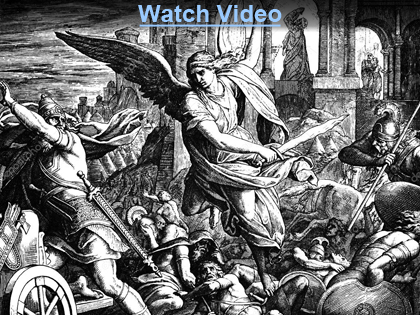
Sermon begins at 13:55
In Isaiah 35 we saw the signs of the Messiah and the church and the in the last days with the church triumphant returning as a remnant returning along the King's Highway... a most exquisite representation of the redeemed traveling home to God. Isaiah 35:3-7 Strengthen ye the weak hands, and confirm the feeble knees. 4 Say to them [that are] of a fearful heart, Be strong, fear not: behold, your God will come [with] vengeance, [even] God [with] a recompence; he will come and save you.
There Was Only One Isaiah
Introduction to Isaiah 40
It is our unwavering conviction that all of the prophecies Chapters 40-66 which is ascribed to Isaiah was indeed written by him, the fact being that no one except Isaiah could possibly have written a line of it. Why do we believe this? The inspired writers of the New Testament quoted from this last section of Isaiah no less than thirty-seven times, almost always making specific mention of the prophet Isaiah as the author of the passage quoted. Here is the real evidence on the authorship of this prophecy, as contrasted with the fembu advocated by the critics. Who were those New Testament writers: Matthew, Mark, Luke, John, Peter and Paul? They were the Holy Apostles of the Son of God, to whom Jesus Christ promised that the Holy Spirit would guide them "into all truth." They tell us these prophecies begin with the ministry of John the Baptist and develop into prophecies of Jesus and the "Last Days" or the beginning of the Christian age.
Isaiah 42-48:
The Coming Servant Messiah
The prophet sets forth the meekness of Messiah's character, and the extent and blessings of his kingdom, particularly among the Gentiles [Isaiah 42:1-9]. In consequence of this he calls on the whole creation to join him in one song of praise to God [Isaiah 42:10-12]. After which he seems again to glance at the deliverance from the captivity; although the words may full as well apply to the deliverance of the Church; to the overthrow of her must powerful enemies; and to the victory of true religion over idolatry and error [Isaiah 42:13-17]. The prophet then reproves the Jews for their blindness and infidelity in rejecting the Messiah, and gives intimations of these judgments which their guilt would draw on them [Isaiah 42:18-25 cf: Romans 10:1-4].
Isaiah 53:
The Suffering Servant Song
The Gospel in Prophecy more than 700 Years BC. The prophecy in song is composed of 15 Verses that may be divided into 5 Topical Stanzas of 3 verses each; beginning with Isaiah 52:13 through Isaiah 53:12. The poetry of the Hebrew Bible is read in melody or sung. This prophecy is sym-me'-tri-cal. There are five stanzas of three verses each. It begins and ends with the Servant's exaltation first [Isaiah 52:13-15] and fifth stanzas [Isaiah 53:10-12] and set within this, is the story of Christ's rejection in stanzas two [Isaiah 53:1-3] and four [Isaiah 53:7-9], which in turn frames the centerpiece stanza 3 [Isaiah 53:4-6], where the atoning significance is revealed. God and man, reconciled, share in the telling. Note the "my" and "our" of the outer stanzas one and five.
Isaiah 58
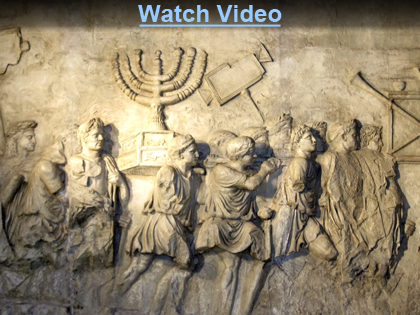
Sermon begins at 14:04
A severe reproof of the Jews on account of their vices, particularly their hypocrisy in practicing and relying on outward ceremonies, such as fasting without true repentance [Isaiah 58:1-5]. It then lays down a clear summary of the duties they owed to their fellow man [Isaiah 58:6-7]. Promises of happiness & prosperity are likewise annexed to the performance of these duties in a variety of the most beautiful and striking images [Isaiah 58:8-12]. Great temporal and spiritual blessedness of those who keep holy the Sabbath day [Isaiah 58:13-14...] which in the Christian Age is "the First day of the week" (Sunday) [Acts 20:7, I Corinthians 16:2, Revelations 1:9-10] The early Church practiced a "daily ministration" (feeding) [Acts 6, Romans 12:20] Therefore if thine enemy hunger, feed him; if he thirst, give him drink: for in so doing thou shalt heap coals of fire on his head. So artists melt the sullen ore of lead, By heaping coals of fire upon its head. In the kind warmth the metal learns to glow, And pure from dross the silver runs below."
Isaiah 55:
Salvation Full & Free
Jesus, the fulfillment of scripture The first verse of Isaiah starts with a reference to the baptism of Christ, upon which occasion the Spirit of God in the form of a dove descended and alighted upon Jesus, remaining upon him. Nothing like this is written of Isaiah. Jesus Christ alone possessed the Spirit of God without limitation. The message and work of the Speaker here far transcend those of a prophet, even Isaiah; they are characteristic of deity. It is contrary to the entire spirit of Isaiah's writings for him to have glorified himself in such language as that which appears here. Without any question whatever, we have here another passage like the others labeled "The Song of the Servant." Some have interpreted these verses as a fifth Servant Song. This interpretation is required by simple logic. The Suffering Servant is Christ; this passage refers to Christ; therefore, the passage refers to the Suffering Servant, regardless of the fact that the title does not appear in the passage! Christ referred to an even greater deliverance of men, their deliverance from the captivity and bondage of sin. Our Lord did not come to earth on a mission of getting people out of jail! "In the kind warmth the metal learns to glow, And pure from dross the silver runs below."
Isaiah Chapters 60, 61 & 62
Chapter 60 begins a discussion of the glorious state of the New Israel, that is, the Church of Jesus Christ, during the reign of Christ upon this earth, a reign that began on the first Pentecost after the Resurrection of the Son of God. For ages, this has been the accepted position of Christian commentators on this prophecy. In chapter 61 the speaker is not Isaiah, but the Great Messiah is an interpretation that derives from the highest possible authority, the words of Jesus of Nazareth... No secondary application can at all satisfy any other view. We will see the Christ Himself unequivocally applied this passage to his own commission in His first sermon in Luke 4:18ff. The big thing in chapter 62 is the New Name God promised to give his people in Isaiah 62:2 the new name is, CHRISTIAN. True to Isaiah's pattern of "here a little and there a little" [Isaiah 28:10,13], the prophet here returns to the revelation regarding that new name, mentioned also in Isaiah 56:5, where the passage affirms that: the name will be given by God Himself when the Gentile come to Christ fulfillment [Acts 11:1 & V:26; Acts 26:28 & I Peter 4:16]. The Name only name whereby we can be saved [Acts 4:11-12].
The Life, Death, and Ressurection of Christ
The Birth of Jesus
Luke's epistle to Theophilus [Luke 1:1-4]. The conception and birth of John the Baptist foretold by the angel Gabriel, Six months after the angel Gabriel appears to the virgin Mary, and predicts the miraculous conception and birth of Christ [Luke 1:26-38], The decree of Augustus to enroll all the Roman empire [Luke 2:1, Luke 2:2]. Joseph and Mary go to their own city to be enrolled [Luke 2:3-5]. Christ is born [Luke 2:6, Luke 2:7]. His birth is announced to the shepherds [Luke 2:8-14]. They go to Bethlehem, and find Joseph, Mary, and Christ [Luke 2:15-20]. Christ is conceived by the Holy Ghost, and born of the Virgin Mary, espoused to Joseph [Matthew 1:18]. Joseph's doubts are removed by an Angel [Matthew 1:19, Matthew 1:20]; by whom the child is named Jesus [Matthew 1:21]. The fulfillment of the prophecy of Isaiah relative to this [Matthew 1:22, Matthew 1:23]. Joseph takes home his wife, Mary, and Christ is born [Matthew 1:24, Matthew 1:25].
Christ's Born of a Virgin to Sacrifice His Body for Sin
The seed (Child) of the woman will walk all over Satan [Genesis 3:15], He will enter the world through a young Jewish virgin [cf: Isaiah 7:14] Hebrew al-maw' a damsel from aw-iam kept out of sight. Today nonbelievers say God used wrong word should have used beth-oo-law to deflower a virgin but Mary remained a virgin until the birth. God has used same word to describe a virgin before [cf: Genesis 24:16 & 43]. The eternal God of the universe stepped into human history when this child was born [cf: Isaiah 9:6-7] This messiah is the great I AM the self existent one cf Exodus 3:14 & John 8:58. The mystery of our Lord's glorious incarnation is found in the opening of the Gospel of John 1:1-5 & 14. His birth makes possible the forgiveness of all sins. King David looked forward to the day that God would create a body for the messiah to be a sin offering [II Samuel 12:10-12, Psalm 51:1-3, Psalm 38:1-5 & 17-18, Psalm 32:1-6]. Note the Progress of David's thinking: God could save me, God would save me if I asked & Now: God has forgiven me! [Psalm 40:1-8] Sacrifice of Messiah's body Promised: [Cf: Hebrews 10:4-14, Psalm 40:9-17 & Psalm 139:1-24], God's Glory, Majesty and Infinite Knowledge of all things.
Jesus was Born to Save Us from Hell
The Hebrew word She-owl is translated into Greek as Hades & into English as Hell. All these words mean the same place which is the place of the dead. During Old Testament times it had 2 parts, torment which was the place of the unbelieving dead, separated from Abraham's bosom, the place of the believing dead. The Rich man & Lazarus [cf: Luke 16:19-31]; The Rebellion of Korah in which Korah went down alive into the pit took place about 1,447 BC cf: Numbers 16:26-40; Later King David wrote Psalm 88 about 1,000 BC so it had been about 500 years since Korah went down alive into the pit & Psalm 88 is a psalm of Korah in Hell. Korah has been dead almost 500 years & hasn't figured out yet his situation is permanent. [Romans 2:1-12 cf: Matthew 10:28 and Matthew 25:31-46].
John the Baptist - Forerunner of the Messiah
[Luke 7:1-10]. Raises a widow's son to life at Nain, No prophet has raised the dead since Elijah. [ Luke 5:12ff] Jesus heals a leper, that is a testimony to the Priesthood [cf: Leviticus 13-14, Luke 7:11-17]. John the Baptist hears of his fame, and sends two of his disciples to inquire whether he is the Christ, Jesus' response is His works prove Who He the Messiah [cf: Isaiah 35,42 & 61, Luke 7:18-23]. Christ's character of John, [Luke 7:24-30]. The obstinate blindness and capriciousness of the Jews, [Luke 7:31-35]. A Pharisee invites him to his house, to investigate this rabbi from Nazareth. A sinful woman anoints his head with oil, and washes his feet with her tears [Luke 7:36-38]. The Pharisee is offended [Luke 7:39]. Our Lord reproves him by a parable, and vindicates the woman [Luke 7:40-46]; and pronounces her sins forgiven, thereby claiming Divinity [Luke 7:47-50]. Jesus said "Shalom" only to the woman.
Jesus' First Sermon: The Lord's Anointed
In the Old Testament Prophets, Priests & Kings were anointed [Luke 4:16-30, Isaiah 61:1-11]. The word anointed Hebrew Maw-shee-akh (Messiah) which we translate in the New Testament as Christ [cf: Psalm 2:1ff], Christ the King [Psalm 45:1ff], The Anointed one to be cut off [Daniel 9:24-27]; Jesus read Isaiah 61:1ff in His first sermon [Luke 4:18-30]. Note: Jesus left the word vengeance out when He reads Isaiah 61 in His first sermon & later explains that the vengeance will be in the coming destruction of Jerusalem in 70 AD [cf: Luke 21:22, Acts 4:23ff]; Acts 10:38ff shows us Christ was Anointed with the Holy Spirit [cf: Hebrew 1:8-9]; Now we are anointed with the Holy Spirit at our baptism [Acts 2:38-39], thus we are anointed [II Corinthians 1:21], not to work miracles see Romans 8 as an example of the Holy Spirit in us.
Teach Us to Pray
Christ teaches his disciples to pray [Luke 11:1-4]. This is how to pray not what to pray for vain repetitions such as Shema Israel [cf: Deuteronomy 6:4] or our Fathers "are forbidden" [Matthew 6:5-8], because of our relationship with God [Ephesians 2:19-22]. Praise the Lord [Psalm 113:3]. Shows the necessity of importunity in prayer, Thy Kingdom come - the Kingdom of God did come on the day of Pentecost in AD 30 [cf: Daniel 7:13-14, Colossians 1:13]. Jesus was raised to sit on David's throne [Acts 2:29-30], Jesus is a King now [Revelations 17:14 & 19:16]. Why don't we pray? Do we view God as an reluctant neighbor [Luke 11:5-8]? The Parable of the 3 fold prayer [Luke 11:9-13, Psalms 121:1-3]. The parable of the importunate widow, [Luke 18:1-8]. Of the Pharisee and the publican [Luke 18:9-14, Psalm 51:1-17].
Matthew 21:23-46
The Chief Priests and Pharisees Silenced
Priesthood Questions Jesus' authority [Matthew 21:23-27]. Jesus asks concerning the Baptism of John. There was no safe response, so they refused to answer. How can we expect to know more when we won't take action based on what we have [cf Psalms 119:32]. The parable of the two sons Israel is pictured as the vineyard of the Lord [cf Isaiah 5:7]. These responses are the responses of God's people through out the ages. The parable of the wicked husbandmen [Matthew 21:23-46] Here Israel is pictured as a vine. Many pastors in Israel's history have destroyed the vineyard [cf. Jeremiah 12:10]. The Prophets had come to claim the peaceful fruits of righteousness. But, anger and greed had captured the hearts of the husbandmen [cf: Hebrews 11: 32-39] The land owners Son comes to the vineyard the day before riding upon an ass, and a colt the foal of an ass [cf Matthew 21:1 ff] "Kill the son and the vineyard is ours" [cf: John 11:47-50. V:41] They condemned themselves God cast away Israel [cf: Romans 11:15 V:42 cf: Psalms 118:22, Isaiah 28:16 V: 44 cf: Isaiah 8:13-15. V:45 cf: I Peter 2:5-9]
The Character of the Scribes and Pharisees
The Pharisees and Herodians question Jesus concerning the lawfulness of paying tribute or Taxes to Caesar [Matthew 22:15-22]. The Sadducees question Him concerning the resurrection of the dead [Matthew 22:23-33]. A lawyer questions Him concerning the greatest commandment in the Law [Matthew 22:34-40]. Jesus asks them their opinion of the Christ, "What think ye of Christ whose Son is He?" and confounds them with the question [Matthew 22:41-46].
Matthew 23:27-39
Jesus Foretells Destruction of Jerusalem
Most teach the 24th chapter of Matthew is talking about the end of the world when Jesus plainly says these things would take place in that generation, meaning 40 years [Matthew 24:34]. It was 40 years between His crucifixion in 30 AD & destruction of Jerusalem by Titus of Rome in 70AD. What we have is use of figurative language such as Isaiah 13 where God describes the destruction of Babylon in the same figurative language: a metaphor. Jesus uses this metaphor to describe the coming destruction of Jerusalem in 70 AD [cf: Isaiah 13:10, Matthew 24:29, Matthew 24:1-11 cf; II Corinthians 11:13-15, Matthew 24:12-14, cf Mark 16:20, Romans 10:13-18, Colossians 1:5-6, Colossians 1:23 & I Thessalonians1:6-8, Matthew 24:15 cf: Daniel 9:1-2 cf, Jeremiah 25:10 & 29:10 & Daniel 9:24-27]. The abomination of desolation was when the Roman army surrounded Jerusalem & showed their idolatrous standards (like a flag) with an eagle upon a pole. The word coming often used Old Testament describe God Coming in Judgment [cf: Isaiah 13]. Same language used for Babylon [Ezekiel 32:1ff] same language about Egypt & Joel 2:1ff uses the same language to prophecy destruction of Judah by Babylon & destruction of Jerusalem by the Romans in 70 AD Note after Spirit poured out [Joel 2:28-32].
Mark 11:1-26
The Lord will Suddenly Come to His Temple
Christ rides into Jerusalem upon an ass, in fulfillment of the prophecy of Genesis 49:10-11 & Zechariah 9:9; He Expels money changers [Matthew 21:12] in fulfillment of Malachi 3:1-7, blind & lame healed [Matthew 21:14 cf: Isaiah 35:5], Parables of 2 sons & vineyard [Matthew 21:28-41], The stone [cf: Psalm 118:22ff, Isaiah 28:16, Isaiah 8:13-15, Acts 4:11ff, Romans 9:33, Ephesians 2:19-22, I Peter 2:5-9 & Romans 12:1-2]. Royal & Triumphal Entrance into Jerusalem [Mark 11] Official Entrance into Jerusalem [Mark 11:1-11 cf: Genesis 49:10-11, Revelation 19:11-16, Zechariah 9:9-11, Psalm 118:25-26 & Malachi 3:1-5]; The Barren Fig Tree Cursed [Mark 11:12-14 cf: Hosea 9:10, Matthew 23:23, Matthew 7:15-20, Jeremiah 11:1-3, Isaiah 65:15]; The Second Cleansing of the Temple. Mark 11:15-16 cf: Jeremiah 7:30, Ezekiel 8:15-18, Isaiah 52:11 & Isaiah 56:7; Indignation of the Jewish Rulers. [Mark 11:17-19 cf: Psalm 69:9, John 11:47-50]; Faith, The missing Figs of Israel [Mark 11:20-26].
Judas Betrays & Sells his Lord for 30 Pieces of Silver
Judas sells his Lord for money [cf: Zechariah 11:7-17]; "Beauty/Covenant" God had to die to break covenant [cf: Colossians 2:14 & Jeremiah 31:31ff]; The Sanhedrim Resolves on Christ's Death [Mark 14:1-2 cf: John 11:47-50]; The Anointing of Jesus at Bethany [Mark 14:2-9]. Judas Sells His Lord for snitch money - 30 pieces of silver, the price of a slave [Mark 14:10-11 cf: Zechariah 11:10-17, Matthew 26:14, Matthew 27:1-10 & Acts 1:15-20]. Both are the end of Judas. He hung himself & finally fell down upon the rocks & busted like a watermelon [Zechariah 12:10 cf: John 19:31-36 cf: Exodus 12:46; Zechariah 13:1 cf: John 3:1-8 cf: Acts 2:38, Zechariah 13:6-9 cf: Matthew 26:31, John 10:12-13, Matthew 26:14].
A Harmony of the Gospels: The Crucifixion of Christ from the Four Gospels
These verses are chosen for the fullest account. This is much like The earliest known harmony the Diatessaron by Tatian in the 2nd century, and variations based on the Diatessaron continued to appear into the Middle Ages. A Gospel harmony is an attempt to collate the Christian canonical gospels into a single gospel account. Gospel harmonies are constructed and studied by scholars to establish a coherent chronology of the events depicted in the four canonical gospels in the life of Jesus, to better understand how the accounts relate to each other, and to evaluate their use of different words. You should, however, read all 4 Gospels to Understand the complete account.
Luke 24:
Resurrection of Jesus, He "is Risen"
The women coming early to the sepulcher on the first day of the week, bringing their spices, find the stone rolled away, and the tomb empty [Luke 24:1-3]. They see a vision of angels, who announce Christ's resurrection [Luke 24:4-8]. The women return and tell this to the eleven [Luke 24:9, Luke 24:10]. They believe not, but Peter goes and examines the tomb [Luke 24:11, Luke 24:12]. Christ, unknown, appears to two of the disciples who were going to Emmaus, and converses with them [vv. 13-29]. While they are eating together, he makes himself known, and immediately disappears Luke 24:30, Luke 24:31]. They return to Jerusalem, and announce his resurrection to the rest of the disciples Luke 24:32-35]. Jesus himself appears to them, and gives them many infallible proofs of the reality of his resurrection [Luke 24:36-43]. He preaches to them, gives them the promise of the Holy Spirit, and commissions them [Luke 24:44-49]. He takes them to Bethany, and ascends to heaven in their sight Luke 24:50, Luke 24:51]. They worship him, and return to Jerusalem [Luke 24:53].
The Book of Acts
Acts 1:
World Conquest
Most of the verses in Acts are written in 3rd person: "they did "or "he did ". But some use 1st person plural, "we" [Acts 16:10-18, 20:5-15, 21:1-18, 27:1, 28:16]. "We" alerts us to the fact that the author is an eyeball witness. Purpose in writing Luke & Acts: words & deeds of Jesus in Luke & World conquest by Gospel in Acts. The introduction in Luke 1:1-4 states his purpose. Luke/Acts should be considered one work in two parts. Read Luke 24 with Acts. Threads tie Luke and Acts together: Both addressed to Theophilus [Acts 1:1, Luke 1:3], Acts 1:1 speaks of the "Former treatise" (Luke); Jesus didn't practice what He preached. He preached what He practiced. "of all that Jesus began both to do and teach," [Acts 1:1]: "in deed and word" [Luke 24:19]; He was "taken up" [Acts 1:2, Luke 24:51]; Commandments given [Acts 1:2, Mark 16:15-16, Mathew 28:18-20]. "To whom" whom is an antecedent that refers back to nearest noun "Apostle" in verse 2. "Many infallible proofs" [Acts 1:3, Luke 24:36-43]; "things pertaining to the kingdom of God" [Acts 1:3, Luke 24:46-47]; Apostles were to wait for the promise [Acts 1:4, Luke 24:49]. Apostles were to be baptized with the Holy Ghost [Acts 1:5, Matt 3:11-12]. Jesus promised Kingdom to come during the life of the apostles [Mark 9:1]. Is this the time? Jesus says don't worry about time stay focused on job [Acts 1:7, I Thessalonians 5:1ff]. Jesus promised Kingdom would come with Power [Mark 9:1, Acts 1:8]. Jesus says Power comes with the Holy Ghost upon Apostles [Acts 1:8]. Apostles to be eyeball witnesses unto earth [Acts 1:21-22, 2:32, 3:15, 5:32, 10:39-41, 22:14-15, 23:11, 26:13-16, II Peter 1:13-21].
Acts 2:
Pentecost - The First Gospel Sermon
The Apostles (and Apostles only) are Baptized in The Holy Spirit evidenced with the sound of a "Rushing Mighty Wind" and, "Tongues like as of Fire" Fellowship called "The Church" is born [Acts 1:26-2:14]. Last days [Acts 2:17, cf: Joel 2:28-32]. "Day of The Lord"; is coming destruction of Jerusalem & final judgment day [Acts 2:20, cf I Corinthians 5:5, II Corinthians 1:14, I Thessalonians 5:2, II Peter 3:10]. During Christian Age "whosoever shall call upon the name of the Lord shall be saved". This chapter will teach us how to call. Acts 2:22-24 - This is the greatest speech in history. Peter makes 7 points [Acts 2:25, cf Psalm 16:8-11, Acts 2:26-28, cf: Hebrews 12:2, Hebrews 2:17, John 9:4, Acts 2:29-30 cf: Matthew 22:41:46, Psalm 132:11, Acts 2:31-35, cf: Psalm 110:1].
Acts 2:
A Fellowship of Believers is Born
Acts 2:36 is point of whole sermon "Lord" Greek-Kurios, YHWH-Hebrew Unspeakable name of God, & "Christ" - Greek Christos, Hebrew Messiah or Anointed One. Acts 2:37 No faith was produced by demonstrations of the spirit Acts 2:1-21. Only with preaching of Gospel, Acts 2:22-36 faith is produced [cf Romans 10:17]. Acts 2:38 contains 2 imperatives & 2 promises; Dependence of the clause "remission of sins" relies upon both imperative verbs, "repent" & "be baptized". 2 promises, "remission of sins" & "gift of Holy Spirit". Acts 2:39 - conditions are for whole Christian Age. Acts 2:40-42 - Worship began Acts 2:43-46 - sharing their wealth Acts 2:47 - baptized believers added by the Lord to "the Church" [Daniel 2:44, Matthew 15:9, Colossians 1:18, Matthew 16:16-18, Acts 20:28;30, II Timothy 2:2 & 15. Great falling away [II Peter 2:3] Reformation [II Thessalonians 2:3] Restoration [John 17:20-21, I Corinthians 1:10, Ephesians 1:22-23 & 4:3-6] Christians Only [Acts 11:26, I Peter 4:16, II Peter 1:3, II Timothy 3:15, II Peter 1:20] Explanation of the Seed Parable[Luke 8:11 & 15] Lord's Supper [Acts 20:7] He that believeth and is baptized shall be saved [Mark 16:15-16].
Acts 3:
Healing the Man at Gate Beautiful - 2nd Gospel Sermon
Luke, Author of Acts, chooses "wonders and signs" for an example to Theopolis, as predicted in Mark's account [Mark 16:17-18]. The people marveled [Acts 3:9]. Your God will come, when? Then! [Isaiah 35:4-7]. One Way [Isaiah 35:8, John 14:6]. We will come Home [Isaiah 35:9-10, Hebrews 12:22-24, I Corinthians 2:9]. Beautiful gate [Acts 3:10]. Solomon's Porch [Acts 3:11]. Glorify God, not servant [Acts 3:12-13]. You spared Barabbas, and killed the Prince of life [Acts 3:14-15]. The healed man's faith healed him [Acts 3:16]. You killed Jesus out of ignorance [Acts 3:17-18, Mark 12:7]. Obey the Gospel [Acts 3:19 and 2:38]. Second Coming [Acts 3:20-21, II Peter 3:12]. Prophet like unto Moses [Acts 3:22-23]. These days were foretold by prophecy [Acts 3:24]. Jews are sons of Abraham [Acts 3:25, Galatians 3:16]. Jew first - then Gentile [Acts 3:26].
Acts 4:
Confronting The Saducees and Sanhedrin
Peter's sermon was interrupted by Sadducees [Revelation 12:5, Acts 4:1]. One of Acts main purposes is to show how Jews who rejected and crucified Jesus continued rebelling against God [Matthew 27:65-66, Luke 22:4, Luke 22:52-53]. Man at Gate Beautiful was healed in the ninth hour (hour of prayer) [Acts 3:1]. Many believed because of the healing in Acts 3 [Acts 4:4]. Sanhedrin gathers to question apostles [Acts 4:5-7]. Peter addresses Sanhedrin head-on [Acts 4:8-10]. Jesus has become the cornerstone [Acts 4:11, Matthew 21:42, Psalm 118:22, Isaiah 28:16, Isaiah 8:13-17, I Peter 2:4-9, Ephesians 2:19-22, Romans 9:33]. No salvation in any other [Acts 4:12]. Sanhedrin marvelled that Peter and John were unschooled [Acts 4:13]. Beholding the man which was healed they could say nothing against it [Acts 4:14]. Rulers could not deny [Acts 4:15-16]. Peter & John commanded not speak of it [Acts 4:17-20]. They refused, and were threatened further and released [Acts 4:19-22. When returned to their own company, relayed all that happened and the people praised God [Acts 4:23-30].
Acts 4:
Peter's Prayer from Psalm 2
After being threatened by the Jewish High Court The Apostles returned to the Church and they went to their knees in prayer to God [Acts 4:23-31]. Psalm 2 is Remarkable for its eloquent change of persons. It is like a heavenly stage play with different people who speak. The Prophet Speaks & foretells of the coming Messiah or Christ [Psalm 2:1-2]. How do you know this prophecy is of Christ? An inspired Apostle tells me, I am tracking this Psalm correctly [cf: Acts 4:25 ff]. Psalm 2:3 The Enemies Speak Psalm 2:4-5 The Prophet Answers the Enemies [cf Luke 21:20] Psalm 2:6 God Speaks [cf: Hebrews 12:22]. Psalm 2:7 The Messiah Speaks [cf: Luke 1:31, Matthew 3:13ff, Matthew 17:5ff, II Peter 1:15, Acts 13:33, Romans 1:3-4, Hebrews 1:1-6 & Hebrews 5:5. Psalm 2:8-9 God Answers the Messiah [cf: Revelation 2:27, Revelations 12:5 & Rev, 19:15]. Psalm 2:10-12, Prophet encourages Enemies to submit to God & His Messiah [cf: Hebrews 6:1].
Acts 5:
Ananias and Sapphira, An Angel Delivers Apostles to Preach in the Temple
The hypocrisy of Ananias & wife Sapphira, their awful death [Acts 5:1-11]. The apostles work many miracles, Church of Christ is increased [Acts 5:12-16]. The high priest and the Sadducees, being incensed against the apostles, seize and put them in prison [Acts 5:17, Acts 5:18]. The angel of God delivers them, and commands them to go to the temple, and proclaim the Gospel [Acts 5:19, Acts 5:20]. The high priest, having gathered the council together in the morning, sends to the prison to have the apostles brought before him [Acts 5:21]. The officers return, and report that they found the prison shut, and the watch set, but that the men had got out [Acts 5:22, Acts 5:23]. A messenger arrives in the meanwhile, and says that the apostles are preaching in the temple [Acts 5:24-25]. The captain and officers go and bring than before the council, who expostulate with them [Acts 5:26-28]. The apostles defend themselves, and charge the council with the murder of Christ; and assert his resurrection from the dead and ascension to the right hand of God [Acts 5:29-32]. The council are confounded, and purpose to slay the apostles [Acts 5:33]. Gamaliel gives them seasonable and prudent advice [Acts 5:34-39]. The council agree to it, but, before they discharge the apostles, beat them, and command them not to teach in the name of Jesus [Acts 5:40]. They depart rejoicing in their persecution, and continue to preach Jesus Christ [Acts 5:41, Acts 5:42].
Acts 6:
Deacons Appointed - Stephen's Miracles and Arrest
This very short chapter narrates the preliminaries of Stephen's martyrdom, noting that it occurred following a period of great growth and prosperity for the new faith (Acts 6:1), that Stephen's rise to prominence was a result of his appointment as one of the seven chosen to administer the distribution of food to the needy, an appointment brought about by complaints of neglecting the Grecian widows (Acts 6:2-7), and that his popularity, ability in debate, and fearless proclamation of the truth resulted in a Pharisaical plot against him, leading to his arrest (Acts 6:8-15). Many things of very great significance come to view in this little chapter: there was the first instance of the laying on of the hands of the apostles; there appeared the first violent opposition of the Pharisees; there occurred the first expansion of the church's organization beyond that of the governing apostles; there was a second threat to the unity of the disciples, deriving from the allegations of neglect of a certain class receiving charity; and there was the exceedingly significant record of The 1st Summary "a great company of the priests became obedient to the faith"
Acts 7:
Stephen, The First Christian Martyr
Stephen, the First Christian to Suffer Martyrdom This great chapter is taken up entirely by the account of Stephen's defense before the Sanhedrin and his martyrdom which climaxed it. Actually, Stephen's address was not so much a defense of himself as it was an epic survey of Jewish history as related to their rejection of the promised Messiah; and, while it is true a complete refutation of the charges against himself as apparent in this master oration, it is the glorious figure of the risen Lord which dominates every word of it. It is only natural that in an address which touches so many historical events the destructive critics have worked overtime searching. None of the so-called "contradictions," however, are of any importance; but a few of them will be noted for the purpose of showing the amazing weakness of such criticisms. Those great experts on Jewish history who sat in the Sanhedrin found no fault whatever with the history cited by Stephen; the only thing they objected to was his application of it! The name "Stephen" means "wreath" or "crown", and it is appropriate that the first to win the martyr's crown should have worn such a name.
Acts 8:
Persecution Leads Growth in Samaria - The Ethiopian Eunuch
A general persecution is raised against the Church (Acts 8:1). Stephen's burial (Acts 8:2). Saul greatly oppresses followers of Christ (Acts 8:3, Acts 8:4). Philip the deacon goes to Samaria, preaches, works many miracles, converts many persons, and baptizes Simon the sorcerer (Acts 8:5-13). Peter and John are sent by the apostles to Samaria; they confirm the disciples, and by prayer and imposition of hands they confer the Holy Spirit (Acts 8:14-17). Simon the sorcerer, seeing this, offers them money, to enable him to confer the Holy Spirit (Acts 8:18, Acts 8:19). He is sharply reproved by Peter, and exhorted to repent (Acts 8:20-23). He appears to be convinced of his sin, and implores an interest in the apostle's prayers (Acts 8:24). Peter and John, having preached the Gospel in the villages of Samaria, return to Jerusalem (Acts 8:25). An angel of the Lord commands Philip to go towards Gaza to meet an Ethiopian eunuch (Acts 8:26). He goes, meets, and converses with the eunuch, preaches the Gospel to him, and baptizes him (Acts 8:27-38). The Spirit of God carries Philip to Azotus, passing through which, he preaches in all the cities till he comes to Caesarea (Acts 8:39-40).
Acts 9:
Saul, The High Sheriff, Is Converted
Saul's Journey to Damascus (Acts 9:2, 26:10). The Lord Jesus Meets Him on the Way (Acts 9:3-9 & 22:9). Called to Be a Witness to the Gentiles (Acts 9:10 & 26:16-17). Baptized by Ananias (Acts 9:11-18). Paul's Account (Acts 22:3-21 & 26:10-20). Preaches Christ to the Jews in Damascus (Acts 9:19-22). They Seek His Death (Acts 9:23-24, Luke 6:22-23, II Corinthians 11:22). His Escape to Jerusalem and Meeting with the Apostles (Acts 9:25-29). Departure to Tarsus (Acts 9:30-31). Peter Heals Aeneas at Lydda (Acts 9:32-35 & 22:13-16). Raises Dorcas at Joppa (Acts 9:36-40, I Kings 17:19-23 & 17:2, II Kings 4:32-36 & Matthew 9:25).
Acts 10:1 - 11:18
The Blackest Land, The Whitest People
Jewish Bigottry Was Worse Than KKK
Racial Bigotry: The white verses Black race problems since the founding of our country is nothing in comparison to the problems of the Judaizing Jews and the Gentiles in the primitive Church. This chapter is concerned with the conversion of the Gentile Cornelius, the same event also being justified by Peter and 6 witnesses to the Jerusalem Church in Acts 11. Luke's devoting so much space to the narrative of a single conversion indicates the importance of it. It was in this conversion of this Roman centurion that the issue of receiving Gentiles into Christ began to be decided. Yes, other Gentiles had been saved prior to this; but it was upon the basis of their having first been circumcised and converted as full proselytes to Judaism. The earliest Christians most of whom were Jewish were willing to welcome Gentiles into the faith as Proselytes first and Christians later. Cornelius' baptism was the beginning of the end of that, despite the fact of the "Judaizers" continuing to advocate their old view afterward, as seen through Acts 15 and in the Pauline epistles. The final results: Notice the three verbs in Acts 11:18. First: "they held their peace." The first indicates the criticism was stifled. Second: they "glorified God." The second says for that even for a believing Jew for a Gentile to be of equal value to God was astounding. Third: that God "granted repentance..." The third is of special note by its structure (aorist tense verb) Luke points out that these believing Jews were reluctant to adopt such acceptance of the Gentiles as a policy for the future... The verb indicates that they thought this was probably a onetime deal... But for this once they conceded that God worked a moral miracle... But they were not committing themselves to any permanent principle.
Acts 11:
Cornelius Retold, Gospel Spreads to Gentiles
Disciples were called Christians first in Antioch (Acts 11:26) His Name Shall Be Called... (Isaiah 9:6-7). And they shall build the old wastes (places) (Isaiah 61:1-6) Conversion of Cornelius retold (Acts 11:1-18). The Missionary Work of Those Scattered Abroad (Acts 11:19). The Conversion of Gentiles at Antioch (Acts 11:20-21). Barnabas Sent to Antioch by the Church (Acts 11:22-24). Saul Brought from Tarsus (Acts 11:25-26). Jews to be cursed (Isaiah 65:15). New name from mouth of the Lord (Isaiah 62:1-2). Called by a new name "Christians" (Acts 11:26). We don't claim to be the only Christians but simply "Christians only (cf: Acts 26:28, I Peter 4:16, Romans 16:16, Hebrews 1:4, Phil. 2:9ff, I John 3:1). Famine Predicted (Acts 11:27-28). Collections for the Relief of Jerusalem (Acts 11:29-30).
Acts 12:
The End of Secular Judaism
Peter Delivered to Prison, Death to Persecutor. Herod persecutes the Christians (Acts 12:1), kills James (Acts 12:2), and casts Peter into prison (Acts 12:3, Acts 12:4). The Church makes incessant prayer for his deliverance (Acts 12:5). An angel of God opens the prison doors and leads him out (Acts 12:6-10). Peter rejoices, and comes to the house of Mary, where many were praying, and declares how he was delivered (Acts 12:11-17). The soldiers who kept the prison are examined by Herod, and he commands them to be put to death (Acts 12:18, Acts 12:19). Herod is enraged against the people of Tyre, but is appeased by their submission (Acts 12:20). He makes an oration to the people, receives idolatrous praises, and an angel of the Lord smites him, and he dies a miserable death (Acts 12:21-23). The word of God increases (Acts 12:24). Barnabas and Saul, having fulfilled their ministry, return from Jerusalem accompanied by John Mark.
Acts 13:
Paul's First Missionary Journey
Acts 13 - World Conquest Under Paul Begins This chapter records the beginning of what is usually called Paul's first missionary journey, or as we refer to this study in Acts as: World Conquest. First, there was the formal commission which sent Barnabas and Saul on their way (Acts 13:1-3); then there is the account of their efforts on the island of Cyprus (Acts 13:4-12); next is the record of John Mark's defection after the Leadership switches from Barnabas and Paul, and the movement of Paul into Asia Minor (Acts 13:13-16); then follows the record of Paul's address in Antioch of Pisidia (Acts 13:17-43); the record of still another sermon in the same city on the sabbath day one week later (Acts 13:44-52).
Acts 13 & 14:
Paul's First Missionary Journey Part 2
Paul and Barnabas, having preached at Iconium with great success, persecuted, obliged to flee to Lystra and Derbe (Acts 14:1-6). They preach, heal a cripple; then people, supposing them to be gods, are about to offer them sacrifices, and are with difficulty prevented by these apostles (Acts 14:7-18). Certain Jews from Antioch and Iconium, coming thither, induce people to stone Paul; dragged out of the city as dead, while disciples stand around him, rises up suddenly, returns to the city, next day departs to Derbe (Acts 14:19, Acts 14:20). Having preached, he and Barnabas return to Lystra, Iconium, and Antioch, confirming disciples, ordaining elders in every Church (Acts 14:21-23). Pass through Pisidia and Pamphylia (Acts 14:24); through Perga and Attalia (Acts 14:25); sail to Antioch in Syria (Acts 14:26); Having called disciples together, inform them of door of faith opened to Gentiles, and abode a long time with the Church (Acts 14:27, Acts 14:28).
Acts 15:
The Jerusalem Council
False teachers circumcised (Acts 15:1). Paul & Barnabas meet apostles (Acts 15:2). Inform Apostles of Gentiles; Pharisees demand circumcision (Acts 15:3-5). Apostles privately consider, Peter speaks to all (Acts 15:6-11). Barnabas & Paul's success with gentiles (Acts 15:12). James' opinion (Acts 15:13-21). Apostles & elders agree, send Judas & Silas with Paul & Barnabas to Gentiles (Acts 15:22); send letter to Church of Antioch, Syria & Cilicia (Acts 15:23-29). Paul & company return, read epistle at Antioch, producing great joy; Judas & Silas preach (Acts 15:30-32). Judas returns to Jerusalem, Silas continues with Paul & Barnabas, teaching & preaching (Acts 15:33-35). Paul proposes to Barnabas to visit Churches where they preached; on the latter determining to take John Mark. Paul refuses (Acts 15:36-38). They disagree, & Barnabas, taking John Mark, sails to Cyprus (Acts 15:39), & Paul, taking Silas, goes through Syria & Cilicia, confirming Churches (Acts 15:40, Acts 15:41). Result of division was two Missionary works.
Paul's Letter to the Galations
Salvation is "In Christ" (Galatians 3:26-29), Justification is by "the faith of Jesus Christ" (Galations 2:16), which leads to obedience of the believer (Galatians 5:19ff) 4 Q MMT (from the Dead Sea Scrolls) "Miqsat Ma'ase Ha-Torah". "Some precepts of the torah" Catholic words. A concordance of the Septuagint, the Greek translation of the Hebrew Bible, leaves little doubt that the Greek Trans. is "ergon nomou". "Ergon nomou" is commonly translated in English New Testament as: "Works of the law". This Pauline phrase, Galatians 2:16 & 3:2 and Romans 3:20 & 28. Looking at Galatians and Romans in light of 4 Q MMT, Paul is using the same terminology to fight "justified" by Christ and the "blood of bulls and goats". This shows Paul was not "jousting with windmills or fighting a straw man" when he took on legalists who taught "works of the law" could be: 'reckoned for righteousness'. Catholic and liberal scholars have long suggested that Paul misunderstood Jewish teaching... they say "works of the law" No where appears in books of rabbinic Judaism of the 1st and 2nd centuries A.D. Only in letters of Paul & MMT are these words found. MMT provides the "smoking gun" and shows Paul fighting legalistic theology from Qumran which had entered the Church (DSS T/Brill/1994).
Acts 16:
The Macedonian Call
This chapter has the continuation of the second missionary tour, relating the revisiting of Lystra and Derbe (Acts 16:1-5), the Macedonian call (Acts 16:6-10), the conversion of Lydia and others in Philippi (Acts 16:11-15), the healing of the demoniac girl (Acts 16:16-18), beating and imprisonment of Paul and Silas (Acts 16:19-24), earthquake and conversion of the jailer (Acts 16:25-33), and the concluding of their efforts in Philippi, in which Paul and Silas receive the apology of the authorities, are released, and depart from Philippi after seeing the brethren (Acts 16:35-40).
Acts 17:
The Gospel Preached in Greece, Paul Preaches on Mars Hill
Paul and his company, passing through Amphipolis and Apollonia, come to Thessalonica, were they preach the Gospel to the Jews, several of whom believe, (Acts 17:1-4). Others raise a mob and bring Jason, who had received the apostles, before the magistrates who, having taken bail of him and his companions, dismiss them (Acts 17:5-9). Paul and Silas are sent away by night unto Berea, where they preach to the Jews who gladly receive the Gospel (Acts 17:10-12). Certain Jews from Thessalonica, hearing that the Bereans had received the Gospel, come there and raise up a persecution (Acts 17:13). Paul is sent away by the brethren to Athens, where he preaches to the Jews there (Acts 17:14-17). He is encountered by the Epicureans and Stoics, who bring him to the Areopagus (Mars Hill) and desire him to give a full explanation of his doctrine (Acts 17:18-20). The character of the Athenians (Acts 17:21). Paul preaches to them, Paul's sermon: (Acts 17:22-31). A point of common interest (Acts 22-23), God and creation (Acts 24-25), God in His relation to man (Acts 26-27), God in His own nature (Acts 28-29), and God and His moral government of men (Acts 30-31). Some mock, some hesitate, and some believe, and among the latter, Dionysias and Damaris (Acts 17:32-34).
Acts 18:
Paul Preaches in Corinth and Ephesus, Begins 3rd Missionary Journey
The conclusion of the second Missionary Journey is recorded in this chapter (Acts 18:23a) and the beginning of the third (Acts 18:23b). Paul left Athens for Corinth where he met Aquila and Priscilla (Acts 18:1-4); great success attended his efforts during eighteen months work at Corinth many believe and are baptized (Acts 18:5-11); Jewish opposition came to a climax soon after Gallio became proconsul, but it was frustrated (Acts 18:12-17); Paul concluded the second journey via Cenchraea and Ephesus to Antioch in Syria (Acts 18:18-23a); and after some time there, he started the third journey (Acts 18:23b). Luke next included some background material on the work at Ephesus, where Paul's next great labors would occur, relating the preaching of Apollos, and the further instruction given him by Priscilla and Aquila (Acts 18:24-28).
Acts 19:
The Ephesians - Gospel Conquers Occult
Paul, coming to Ephesus, finds certain disciples of John the Baptist who had not received the gift of the Holy Ghost, knowing only the baptism of John, but receive it through their re-baptism into Christ and imposition of Paul's hands (Acts 19:1-7). He preaches for three months in the synagogues (Acts 19:8). Many being hardened, he leaves the synagogues, and teaches daily in the school of Tyrannus for two years (Acts 19:9-10). He works many miracles (Acts 19:11, Acts 19:12). Account of the vagabond exorcist Jews, and the seven sons of Sceva (Acts 19:13-17). Many are converted, and burn their magic books (Acts 19:18-20). Paul purposes to pass through Macedonia and Achaia, to go to Jerusalem, and afterwards to Rome; but, having sent Timotheus and Erastus to Macedonia, continues a little longer in Asia (Acts 19:21-22). Demetrius, a silversmith of Ephesus, raises an uproar against Paul, which, after some tumultuous proceedings, is appeased by the town clerk (Acts 23-41).
Acts 20:
Worship and Lord's Supper at Troas
The first six verses give a summary of many months of Paul's travels; a special account of Paul and company taking Lord's supper at Troas is given (Acts 20:7, cf: I Corinthians 16:2, Matthew 26:26-30, Acts 2:42, I Corinthians 11:23-32); Paul raises dead, Jesus still has power of resurrection (Acts 20:8-12, cf: John 11:14, 17-26, Hebrews 2:9, I Corinthians 15:22, & Romans 6:3-7). What if you haven't died to sin (cf: II Corinthians 5:14-15). You must LIVE NOW the RESURRECTED LIFE. Paul determined to make it to Jerusalem by Pentecost (Acts 20:13-16).
Acts 20:
Paul's Farewell to the Ephesians
What if you haven't died to sin (cf: II Corinthians 5:14-15). You must LIVE NOW the RESURRECTED LIFE. Paul's trip to Jerusalem (Acts 20:13-16). Ephesian Elders Exhorted. Paul called for a meeting with the Ephesian Elders, bidding them farewell (Acts 20:17-35, I Peter 5:1-2, Matthew 20:25-28, Romans 5:8-9, I Peter 2:24, Hebrews 13:17, Philippians 1:6); and a special account of the tearful farewell is given (Acts 20:36-38, Revelation 1:8, Revelation 1:17-18, Revelation 2:1-7, Revelation 4:10-11, Revelation 2:5).
Acts 21:
End of Paul's 3rd Missionary Journey - Return to Jerusalem
Paul's third journey continued from Miletus to Tyre (Acts 21:7-15), and was concluded in Jerusalem (Acts 21:17-26); and Luke's account of these events, although very brief, is of keen interest. The great feature of the chapter, however, is that of Paul's being mobbed in the temple and rescued by the Roman soldiers who took him into protective custody, beginning a long period of imprisonment for the apostle Paul, an imprisonment that would not end until Satan had enlisted the Roman Empire as a persecutor of the church.
Acts 22:
"Wash Away Thy Sins"
In Paul's address from the steps of Antonio, he spoke to the people until they clamored for his death. The speech deals primarily with Paul's statement of his birth, background, education (Acts 22:1-3), and his zeal as a persecutor of Christ, (Acts 22:4-5), dwelling especially on the record of his conversion (Acts 22:6-21). For the first time, he revealed the fact that the Lord had warned him on his first trip to Jerusalem that the Jews there would "not receive of thee testimony concerning me" (Acts 22:18-19) is especially significant in that it shows Paul's unwillingness to receive Jesus' word as final; because he seemed to be very certain that his own background as one of the opposition to the Gospel would persuade the Jews. They hear him until he says that God had sent him to preach the Gospel to the Gentiles, the Jews become outraged and clamor for his life (Acts 21:22-23).
Acts 23:
Paul's Defense before the Sanhedrin High Court
The period of Paul's imprisonment began with his arrest and rescue by Claudius Lysias, as recorded in the last chapter; and here we have the second of five pleas which Paul made in the various situations developing from his being a prisoner. This imprisonment was to last until the conclusion of Acts. This is Paul's second defense and his plea before the council... This was the historic court of the Hebrews called the Sanhedrin, including perhaps some of the very men who had condemned Jesus to death.
Acts 24:
Paul's Defense before Procurator Felix at Caesarea
The third of five defenses which marked the early part of Paul's period of imprisonment is given in this chapter, the same being a formal arraignment and trial before the Procurator Felix at Caesarea, about 58 A.D., in which the high priest Ananias and his company from Jerusalem were legally represented by a lawyer named Tertullus, and in which Paul convincingly spoke on his own behalf. Events of this chapter (except the last paragraph) occurred only twelve days from the time Paul entered Jerusalem from Caesarea
Acts 25:
Paul Appeals to Caesar
Last week we ended with Acts 24:24-25 - Felix & Drusilla heard Paul concerning "the faith" and "Felix trembled"... What made Felix tremble? Paul "reasoned with him concerning righteousness, temperance" (which Felix had none) "and judgment". Paul had written the Romans about the coming judgment (cf: Romans 1:18-2:11). Next in Acts 25 begins two defenses of Paul, one legal and formal, after which Paul appealed to Caesar, and the other formal enough, but without any legal significance. Nevertheless, we shall treat them as two separate defenses. Each is important and significant in it's own right. The first of these was before the new governor Festus (Acts 25:1-12); the second was before Festus and his guests King Herod Agrippa and his sister Bernice (Acts 25:23-27). All of the next chapter is taken up with Paul's address in the presence of royalty and Festus the new Roman governor. Paul's appeal to Caesar assures his trip to Rome.
Acts 26:
Paul's Defense Before Herod and Festus
Paul answers for himself before Agrippa, to whom he pays a true compliment, in order to secure a favorable hearing (Acts 26:1-3); gives an account of his education from his youth up (Acts 26:4, Acts 26:5); shows that the Jews persecuted him for his maintaining the hope of the resurrection (Acts 26:6-8); states his persecution of the Christians (Acts 26:9-11); gives an account of his miraculous conversion (Acts 26:12-16); and of his call to the ministry (Acts 26:16-18). His obedience to that call, and his success in preaching the doctrine of Christ crucified (Acts 26:19-23). While he is thus speaking, Festus interrupts him, and declares him to be mad through his abundant learning (Acts 26:24); which charge he modestly refutes with inimitable address, and appeals to King Agrippa for the truth and correctness of his speech (Acts 26:25-27). On which, Agrippa confesses himself almost converted to Christianity (Acts 26:28). Paul's affectionate and elegant address to him on this declaration (Acts 26:29). The council breaks up, and they all pronounce him innocent (Acts 26:30-32).
Acts 27:
Paul's Voyage To Rome (Part 1)
Paul should be sent to Rome, he is delivered to Julius, a centurion (Acts 27:1). They embark in a ship of Adramyttium, and come the next day to Sidon (Acts 27:2, Acts 27:3). They sail thence, and pass Cyprus, Cilicia, & Pamphylia, and come to Myra (Acts 27:4, Acts 27:5). They are transferred there to a ship of Alexandria going to Italy; sail past Cnidus, Crete, Salmone, and come to the Fair Havens (Acts 27:6-8). Paul predicts a disastrous voyage (Acts 27:9-11). They sail from the Fair Havens, in order to reach Crete, and winter there; but, having a comparatively favorable wind, they sail past Crete, meet with a tempest, and are brought into extreme peril and distress (Acts 27:12-20). Paul's exhortation and prediction of the loss of the ship (Acts 27:21-26). After having been tossed about in the Adriatic Sea for many days, they are at last shipwrecked on the island of Malta and the whole crew, consisting of two hundred & seventy-six persons, escape safe to land on fragments of the ship (Acts 27-44).
Acts 28:
Paul's Voyage To Rome (Part 2)
Shipwrecked passengers and crew were all saved alive, fulfilling Paul's prophecy made at a moment when all hope had perished. Population of Malta aided in rescue, building a fire and "receiving" them kindly. Paul snake-bitten (Acts 28:1-6). Hospitality extended to victims of shipwreck by the first man of the island; and Paul wrought many cures of sick and suffering of Malta (Acts 28:7-10). Voyage to Rome continued after three months, ending very shortly at Puteoli, terminal port of the grain ship; thence by land, Paul soon arrived in Rome, being greeted by brethren on the way (Acts 28:11-16). As always, Paul sought and obtained first an interview with Jewish leaders who set a day to hear him a week later (Acts 28:17-22). The Jews of Rome, as invariably throughout Paul's ministry, rejected Christ, despite fact some believed (Acts 28:23-28). The Book of Acts is concluded by a brief summary of two whole years of Paul's imprisonment; the curtain rings down with Paul still in prison, because, when Luke wrote, Paul's release, although pending, had not yet occurred (Acts 28:30-31). The story has caught up with events.
Paul's Letter to the Ephesians
Ephesians 1:
Paul's Love Letter to the Church
Saints "In Christ" is a term used over 30 times in book of Ephesians. Ephesians 1:2 - "Grace" (Greek Charis) "Peace" (Hebrew Shalom) shows the make up of the Church; Verse 3 - "Blessed" - word for eulogize/praise; verse:4 - Hath (Past tense verb) all spiritual blessings God withheld none. Verse 4 - "Chosen" does not mean that God chose us & rejected others but rather before In the Beginning God chose a plan to have a people unto Himself as adopted children & that people is the Church of Christ. Holiness is proof that we are in Christ. Verse 5 - Predestinated means God foreordained the plan according to His sovereign will. Verse 6 - "Resulting in God's praise"; verse 7 - We are sold into bondage of sin & bought back with the price of Jesus blood [cf: I Peter 1:19]; verse 8 - Fully shown in His Grace & Mercy; verse 9 - Beyond human comprehension until revealed; verse 10 - Fullness of time - Last Age [cf: Galations 4:4 & Hebrews 1:1-2]; gathered into one family Body united w/Christ as the head of all angel & human [Ephesians 1:11]; Everlasting life [cf: I Corinthians 2:9]; verse 13 - Sealed like a calf is branded; verse 14 - earnest money/down payment seal the bargain; verse 17 - Revelation is God's plan for redeeming mankind in the Church; verse 19 - Power = vigor, strength & dominion; verse 20 - If a dead savior can save us from sin, a living savior seated at God's own right hand is far more powerful [cf: Psalm 110:1-4, Mark 16:19, Hebrews 4:14ff & Hebrews 8:1].
Ephesians 2
Sin separated us from God but Christ has made us alive [Ephesians 2:1]. Satan's energy leads us to willful sinful life [Ephesians 2:2], Both Jew & Gentile dead in trespasses & sin w/a sinful mind (Pride) [Ephesians 2:3]. By nature does not mean born that way [Ephesians 2:4, cf: Romans 2:14]. Children not sinful [cf: Matthew 18:3 & 19:14]. Resurrection to a new life due to God's rich mercy & Love for all His children [Ephesians 2:5]. We are planted in likeness of His burial & raised in likeness of His resurrection [Ephesians 2:6]; Risen up thoughts above [Colossians 2:12]; we are to live with our mind in heavenly things [Colossians 3:1]; with our thoughts above [Colossians 3:2; 2:7]; The definite article "the" is found in the Greek before "faith" our works do not merit [Ephesians 2:10]. We abound in good works [Ephesians 2:11]. Remembrance of what God has done should make us grateful, circumcision of the heart [cf: Rom 2:28-29; Ephesians 2:12]. Not being race of Abraham gentiles had no knowledge of the covenant promises of Christ. The means that brought us near to God is the blood of Christ. [Ephesians 2:14]. Who has brought peace between us and God [cf: Rom 5:1; Ephesians 2:15]. Old Covenant ended at the cross and New Covenant began [cf: Matthew 26:26-30; Ephesians 2:16]. When sinner fixes mind on bleeding savor Goodness of God leads him to repentance. [Romans 2:4]. Corner stone on both walls joined them together [Ephesians 2:20, Isaiah 28:16, Matthew 21:42-44 cf: Psalms 118:22-23, Acts 4:11-12 & I Peter 2:7-8 cf: Isaiah. 8:13-15; 2:22 cf: 1 Pet 2:5 & Rom 12:1-2].
Ephesians 3
For this cause/glorious work of Cross making Peace & bringing gentiles nigh [Ephesians. 3:1]. The verb for which I Paul is subject is not given until verse 14 - the in-between verses are parenthetic, Paul was writing as a Prisoner in Rome because of hatred of the Jews [cf: Acts 22:17-23; Ephesians 3:2 cf: Acts 22:21; Ephesians3:3 cf: Galations 1:12, Ephesians 1:9 & Ephesians 2:11-13]; ; Ephesians 3:5 Hebrew prophets glimpsed did not understand [Ephesians 3:5, cf: Gen. 22:18, 26:4, 28:14 & Isa. 42:6-7]; Jews & Gentiles equal in gospel [Ephesians 3:6, cf: Galations 3:14 & Acts 13:46-48]; make known God's gracious plan [Ephesians 3:7]; great trust granted to unworthy [Ephesians 3:8, cf: I Corinthians 15:9, Phil. 3:6 & I Timothy 1:13]; Jews & Gentiles God's plan kept hidden [Ephesians 3:9]; made known by preaching gospel [Ephesians 3:10, cf: I Peter 1:12]; plan & purpose God in all ages proposed fulfill in Christ [Ephesians 3:11, cf: II Timothy 1:9, Titus 1:2, I Peter 1:20, Ephesians 1:4 & 11]; Jew & Gentile come boldly God through Christ [Ephesians 3:12]; not discouraged by Paul's chains [Ephesians 3:13]; In verse 14 is the verb from verse one given he resumes thought [Ephesians 3:14 cf: Ephesians 3:1]; Idea God Father all families earth [Ephesians 3:15]; Paul states things prays for Ephesians: (1) Petition strengthened in inner man [Ephesians 3:16], (2) Christ dwell in your hearts by faith; (3) rooted and grounded in love [Ephesians 3:17]; unless grounded in love one could not understand [Ephesians 3:18]; one Paul paradoxes know something of love of God but could never know infinite [Ephesians 3.19]; God is able to do above all we can conceive [Ephesians 3:20]; Lit: all generations of the age of ages [Ephesians 3:21].
Ephesians 4
Paul urges practical duties because of our glorious privileges in Christ [Ephesians 4:1] Walk or live humbly - don't seek repay revenge from each other [Ephesians 4:2]. Unity commanded [Ephesians 4:3, cf: John 17:20-21 & I Corinthians 1:10-13]. One body, one spirit [Ephesians 4:4, cf: Rom 12:5, I Corinthians 12:12-13, Ephesians 2:16, Colossians 1:18, Ephesians 1:22-23]. We learned that The Church has: (1) Unity of the Head; (2) Unity of The Spirit dwelling in the church (saints); (3) Unity of Hope (expectation); (4) Unity of The Faith; (5) Unity of ordinance for admission; (6) Unity of The Father (7) Unity or organization of One Body [Ephesians 4:4-7]. Special offices & gifts [Ephesians 4:7]. Verse 8 quotes Psalm 68:18 - captives are sin & death, gifts as a conquering King [Ephesians 4:8]; Christ Divine descended from heaven & ascended to heaven as Psalm teaches [Ephesians 4:9]. At God's right hand above heavens [Ephesians 4:10, Hebrews 4:14 & 7:26]. various offices [Ephesians 4:11]. Helping Saints to higher & holier lives [Ephesians 4:12]. Full unity when all know Christ alike [Ephesians 4:13]. Children easily deceived [Ephesians 4:14]. Never give in to false doctrine - rebuke with love [Ephesians 4:15]. All brethren work harmoniously [Ephesians 4:16]. Paul returns to the exhortation of verses 1-3 - vanity unenlightened [Ephesians 4:18], given over to sin [Ephesians 4:19]. Ye learned Christ [Ephesians 4:20-21]. Put off the old man [Ephesians 4:22]. Speak truth [Ephesians 4:25]. Verse 26 quotes Septuagint version of Psalm 4:4; Easily tempted when angry [Ephesians 4:27]. Honest labor antidote for tempation [Ephesians 4:28]. Cursing forbidden [Ephesians 4:29]. These things grieve the Holy Spirit [Ephesians 4:30]. Be kind to one another [Ephesians 4:31-32]
Ephesians 5
Ephesians 5:1 refers God's kindness found in Ephesians 4:31-32 Imitators forgiving one another as God forgave us [Ephesians 5:2]. Imitate Christ who offered Himself as a sacrifice [cf: Genesis 8:2, Leviticus 1:9 & II Corinthians 2:15]; Certain sins strictly forbidden--fornication--uncleanliness--covetousness are banished [Ephesians 5:3]; no loose life, words or thoughts [Ephesians 5:4] such are virtually an idolater [Ephesians 5:5, cf: I Corinthians 6:9-11 & I Corinthians 6:16-17, Galations 5:19-21]; let no man deceive you [Ephesians 5:6]; don't share their sin [Ephesians 5:7]; heathens darken others [Ephesians 5:8 cf: John 1:4-5, Matthew 5:14-16 & I John 1:5]; walk as children of light [Ephesians 5:9, cf: Galations 5:22-25]; walk acceptable to God [Ephesians 5:10]; reprove & rebuke [Ephesians 5:11]; secret sins are shameful [Ephesians 5:12]; bring true character to light [Ephesians 5:13]; sleepers not converted [Ephesians 5:14, Isaiah 60:1-2, Isaiah 26:19, Romans 6:4-6 & Colossians 2:12]; be wise [Ephesians 5:15]; use every opportunity to study [Ephesians 5:16]; be not unwise [Ephesians 5:17]; wine common intoxicant [Ephesians 5:18]; singing Greek psallo--direct object--heart, instead of pagan revelry [Ephesians 5:19]; thanks in song coming through Christ [Ephesians 5:20]; submit one to another [Ephesians 5:21]; wives submit to husband [Ephesians 5:22]; organization must have a head [Ephesians 5:23]; be in subjection [Ephesians 5:24]; husbands love wives [Ephesians 5:25]; example to Christian husbands [Ephesians 5:26]; holy & without blemish [Ephesians 5:27]; man who loveth wife loveth himself [Ephesians 5:28]; nourish & cherish flesh as church [Ephesians 5:29]; members of body, flesh & bones [Ephesians 5:30]; two be one [Ephesians 5:31]; great mystery [Ephesians 5:32]; he love wife/she reverence husband [Ephesians 5:33].
Ephesians 6:
Put on the Whole Armor of God
Mutual duties children and parents; of servants (slaves) & masters. Warfare of the Saints. Armor of God. Sword of the Spirit. Constant prayer. Children obey parents in Lord [Ephesians 6:1], honor father & mother [Ephesians 6:2], That thou may live long [Ephesians 6:3 cf: Exodus 20:12], fathers nurture children [Ephesians 6:4], servants be obedient [Ephesians 6:5], do will of God [Ephesians 6:6], give service with good will [Ephesians 6:7], you will receive what you do [Ephesians 6:8]; masters treat servants well - God is your Master [Ephesians 6:9], be strong in the Lord [Ephesians 6:10], put on the whole armor of God [Ephesians 6:11], wrestle against rulers of darkness [cf: I Peter 5:8-9; Ephesians 6:12] take unto you the whole armor [cf: Ephesians 1:21, John 12:31, John 14:30, John 16:11, II Corinthians 4:4 & Ephesians 2:2; Ephesians 6:13], loins girt and the breastplate of righteousness [Ephesians 6:14], feet shod w/gospel of peace [ Ephesians 6:15, cf: Isaiah 52:7 & Romans 10:15-18], shield of faith [Ephesians 6:16], helmet & sword [Ephesians 6:17], praying always [Ephesians 6:18], prayers to open mouth boldly [Ephesians 6:19], ambassador in bonds [Ephesians 6:20], so that you know how I do [Ephesians 6:21], comfort your hearts [Ephesians 6:22], peace & love with faith [Ephesians 6:23], Grace be with all them that Love Lord Jesus Christ [Ephesians 6:24].
Church History
Church History - Part 1:
Roman Catholicism
Note: The criticism that we make is directed toward the leadership of the Roman Church which resulted in the
dark ages, and not toward the millions upon millions of souls who were simply trying to find God and Romanism was all that was available to them.
The Great Falling Away: In 606 AD Boniface III took the title of Pope (pappas) or "Universal Bishop" of the Roman Catholic Church. [Colossians 1:18, Matthew 16:16-18, II Timothy 2:15, Matthew 23:9, Ephesians 2:8, Matthew 6:7].
Shortly Rome made laws such as Latin to be only language of scriptures, and priests called "Father" ("Call no man Father") [cf: Matthew 23:9].
They practice vain repetitions of 'Our Father' & 'Hail Mary' [cf: Matthew 6:7].
The Bible assures us that we are saved by grace, not works [cf: Ephesians 2:8]; Mary is not a mediator between God & man [cf:
I Timothy 2:5], We are to ask in Jesus' name not Mary's [cf: John 16:23-26]; Hell has no halfway house called "Purgatory"
[cf: Luke 16:19-31]; There is no such thing as a separate priesthood [cf: I Peter 2:5];
Bishops must be the husband of one wife [cf: I Timothy 3:1-7 & Titus 1:5-8], Celibacy is a doctrine of devils
[cf: I Timothy 4:1-3].
The Pope is anti-christ [cf: Colossians 1:18]. Anti-christ has been here all along [cf: I John 2:18-19, I John 4:1-3 & II John 1:7]. Pope led the
great falling away & is man of sin [cf: II Thessalonians 2:1-12]. Rome sold indulgences to build St Peter's
Basilica, making merchandise of people's sins [cf: II Pet 2:2-33].
Church History - Part 2:
The Protestant Reformation
"The Great Falling Away" under Roman Church brought about "the Dark Ages" in which most teachings of the New Testament were changed by "Church Councils" which changed the Worship and Practice of the New Testament Church into the teachings of Men [cf: Matthew 15:8-9]. During Middle Ages dissenters such as John Wycliffe in 1384 & John Huss (burned at the stake in 1415) called for restoration of a primitive form of Christianity. Martin Luther, a catholic priest began his protest against Rome in 1517. The Scriptures were forbidden to common man in their own language and men were burned alive for having Bibles or preaching. At the heart of the Reformation was emphasis on "scripture alone" (sola scriptura). William Tyndale published his Bible in 1530 and was burned at the stake by Rome. The Church of England began in 1531. Miles Coverdale's Bible was published in 1535, Matthew's Bible was published by John Rogers in 1537 and he too was burned alive. The Great Bible was published in 1539, The Geneva Bible in 1560, The Bishops Bible in 1568 and the King James Version in 1611. Our Baptist friends began in 1609-1611. English Puritans also sought to restore a pure "primitive" church.
Church History - Part 3:
The Restoration Movement
The Restoration Movement seeks to restore the church described in the bible & the unification of all Christians [cf: John 17:20-23 & I Corinthians 1:10], in a single body [cf: Ephesians 1:22-23 & 4:3-6], patterned after New Testament church. We are neither Protestants, Catholics, nor Jews, but Christians only [cf: Acts 11:26]. The movement developed from several different efforts to return to apostolic Christianity. During Middle Ages dissenters such as John Wycliffe & John Huss called for restoration of a primitive form of Christianity. At the heart of the Reformation was emphasis on "scripture alone" (sola scriptura). English Puritans also sought to restore a pure "primitive" church. Barton W. Stone began at Cane Ridge, KY, & his group called themselves simply Christians [cf: I Peter 4:16]. Another group began in Pennsylvania & West Virginia & were led by Thomas Campbell & his son Alexander. They called themselves Disciples of Christ. Elias Smith & James O'Kelly led similar groups. These groups sought to restore the whole Churches of Christ on the pattern set forth in the New Testament, [II Peter 1:3], "we speak where the Bible speaks & are silent where the Bible is silent" & both groups believed that the creeds of men kept Christianity divided. In 1832 they joined in fellowship with a handshake. We are united in the belief that: Jesus is The Christ, the Son of God, [Matthew 16:13ff] that Christians should celebrate the Lords Supper on the first day of the week [Acts 20:7], & that immersion in water is a part of salvation, just like belief, faith, confessing Christ and repentance [Mark 16:15-16, Acts 2:38, Rom 6:3-6 & Gal 3:27].
Speak where the Bible Speaks, be Silent where the Bible is Silent
II Peter 1:3 - Silence as a Rule of Language [II Timothy 2:2]. How God wishes to be Obeyed-careful obedience [Deuteronomy 2:4, 4:15, 6:17, 12:23, 24:8]. Jesus obeyed Rule of Silence [John 4:34, 5:19, 5:30, 5:36, 7:16, 8:26-29]. Conscientious obedience demonstrates love [John 14:31, 16:12-13]. Do not add to God's Word [Deuteronomy 12:8, 4:2, 12:32, Prov 14:12, 30:5-6, Rev 22:18-19]. Early 2nd generation church fathers recognized this principle (Didache 4:18)... Adding nothing & taking nothing away.", (Epistle of Barnabus 19:11) Thou shalt keep those things which thou hast received neither adding to them or taking away from them. Tertullian: "Any doctrine not as old as the apostles is thereby condemned by the silence of Holy Scripture." When people act w/o Authority [Leviticus 9:23-24, 10:1-3, I Samuel 13:8-14, 10:8, Leviticus 1:7, I Chronicles 13:9-10, 15:2, 15:12-15, Jeremiah 23:16, 23:26, 23:32-34, Matthew 15:14, Colossians 2:20-23, Acts 15:1-2 & 15:24, Hebrews 1:5]. Jesus subjected Himself to the rules [Hebrews 7:14, Exodus 28:1, II John 9]. Never presume to act or speak in hushed silence of God [Exodus 17:5, Numbers 20:8-12]. Today, Change Movement people ask, "Where does the Bible forbid us to do so?" [II Peter 3:15-16]. How can such men be learned in Scripture?
The Change Movement & the Churches of Christ
We are neither Protestants, Catholics, nor Jews, but Christians only [cf: Acts 11:26]. The Restoration Movement developed from several different efforts to return to apostolic Christianity. During the Middle Ages dissenters such as John Wycliffe and John Huss called for restoration of a primitive form of Christianity. At the heart of the Restoration was emphasis on "scripture alone" (sola scriptura). English Puritans also sought to restore a pure "primitive" church. Barton W. Stone began at Cane Ridge, KY, and his group called themselves simply Christians [cf: I Peter 4:16]. Another group began in Pennsylvania and West Virginia and were led by Thomas Campbell and his son Alexander. They called themselves Disciples of Christ. Elias Smith and James O'Kelly led similar groups. They sought to restore the whole Churches of Christ on the pattern set forth in the New Testament [II Peter 1:3], "we speak where the Bible speaks and are silent where the Bible is silent" and both groups believed creeds of men kept Christianity divided. They were united in the belief that: Jesus is The Christ, the Son of God [Matthew 16:13ff], Christians should celebrate the Lords Supper on the first day of the week [Acts 20:7], and in Baptism for the Remission of Sins [Acts 2:38, Mk 16:15-16, Acts 2:38, Romans 6:3-6 and Galatians 3:27].
Baptism and the Holy Spirit
Baptism and the Thief on the Cross
How was the Thief on the Cross Saved without being Baptized? 3 Men Crucified - 1 Died in Sin, 1 Died to sin & 1 Died for Sin. Read: Luke 23:13-47 Re-read 23:39-42 (1) Who said he wasn't baptized? [cf: Mark 1:4-5] (2) The thief on the cross died under the Law of Moses [Hebrews 9:16-17], & Christ was not yet dead when He pardoned him such as the pardoning of the sinful woman, [Luke 7:37-50] & the man [Matthew 9:1-7]. (3) You can't obey the Great Commission that's not yet given [Mark 16:16]. Jesus Said: "he that believeth and is baptized shall be saved, he that believeth not shall be damned". Our Catholic friends who practice infant baptism teach: "he that is baptized & saved shall believe", our Baptist friends teach: "he that believeth & is saved should be baptized", Universalists teach: "he that believeth & is baptized shall be saved, & he that believeth not, shall be saved also." [Acts 2:1-6 & 2:22-47].
Pentecost: The Apostles & The Apostles Only are Baptized with Holy Spirit
Pentecost The Apostles & The Apostles Only are Baptized with Holy Spirit: Baptism of the Holy Spirit is mentioned only once before in Matthew 3:11-12, where John the baptizer tells us it is to come. Luke 24:49 Jesus says it is a promise of the Father & they will have "power from on high" & in Acts 1:8 Jesus says that the power is "The Holy Ghost". Acts 1:20-26 the vacancy of Judas filled. The qualifications to be an apostle are listed, Apostles must be eye witnesses of the ministry death burial & resurrection of Jesus [Acts 1:21-22]. Acts 1:26 & 2:1 - Chapter & verse divisions were not in the original Bible. Here we have unfortunate chapter break. Acts 2:1 must be read with 1:26 to understand who's being spoken of. In the sentence "they were all with one accord" The word "they" is an antecedent. Antecedents always refer back to the last-named noun. Which is: "Mathias & he was numbered with the eleven apostles." Thus "Apostles" is the antecedent of "they" in Acts 2:1 Many make the mistake thinking that the 120 in Acts 1:15 is spoken of in Acts 2:1. Acts 2:2 "as of a rushing mighty wind" It was not a rushing mighty wind, it was the same sound. Acts 2:3 "cloven tongues like as of fire" Similarity denies that it is the same. It was not actual tongues of fire, it was "like as of fire". Acts 1:4 the result of this baptism is the apostles' speaking in tongues, languages they had not studied [cf: Acts 2:1ff. Acts 1:5-21 cf: Joel 2:28-32].
Second Coming
Is Jesus Coming Soon? Revelation 22:12
In 70 AD Jerusalem shall be trodden down of the Gentiles until the times of the Gentiles be fulfilled. When you study the Olivet address in the 3 synoptic Gospels [cf: Matthew 24, Mark 13 & Luke 21], Luke makes it plain that the abomination of desolation is when the Roman army surrounded Jerusalem & showed their idolatrous standards (like a flag) with an eagle upon a pole. "And when ye shall see Jerusalem compassed with armies, then ye know the desolation there of is nigh" [cf: Luke 21:20]. Jesus plainly teaches a long period of time between the destruction of Jerusalem in 70 AD and His 2nd Coming in Power and Glory. Other highly learned brethren such as J.W. McGarvey, B.W. Johnson (B.W. Johnson's Peoples New Testament Commentary), and James Burton Coffman's Commentary have a slightly different understanding of the 2nd Coming of Christ regarding Matthew 24:27-31 when compared to Luke 21:20-24 [Matthew 24:34-51].
The 2nd Coming of Christ, Resurrection Judgment & the End of the World
Christian Age marked by a Great falling away [cf: II Thessalonians 2:1ff], Man of Sin or Lawlessness, many antichrists [cf: I John 2:18-19], and False Prophets [II Peter 2-3]; watch & pray [Luke 21:34-35, Matthew 24:42-44, Mark 13:35-37]. The times of the Gentiles [Luke 21:20-24] precedes the 2nd coming. The destruction of Jerusalem in 70 AD is a type or shadow of the 2nd coming [Matthew 24:27-31]; Angels and a trumpet, the Resurrection of Dead [Job 25-27, Isaiah 26:19, Daniel 12:2-3, Matthew 25:31-46, John 11:25-26, John 6:40]; final Judgment [John 6:63, 12:48, 5:21-30, II Corinthians 5:10]; The End [Jude 14-15, I Corinthians 15:24-26]. Christians will be Caught Up to meet the Lord in the air [I Thessalonians 4:13-17]. Changed and given Immortal bodies [I Corinthians 50-55 & I John 3:2]; Earth burned up in Flaming Fire [II Thessalonians 1:7-8, II Peter 3:7-13]; Great White Throne of Judgment [Revelation 20:11-15]; New Heaven & Earth [Revelation 21:1-4, 21:16].
Is World War III Approaching? Is This The "End of Days"? What does the Bible Say?
The doctrine of Christ's resurrection according to the Scriptures is The Gospel [I Corinthians 15:1-4]. What Scriptures? Isaiah 53:8-10. Jesus the resurrected Christ, seen by over 500 witnesses plus the Apostles [I Corinthians 15:5-7]. Paul's Apostleship [I Corinthians 15:8-10, II Corinthians 11:23-28]. All the Apostles preached & believed the same things [I Corinthians 15:11]. There is a Judaizing false teacher at Corinth [I Corinthians 15:12]. On the contrary, Paul says "but now is Christ risen" & first-fruits are proof of a coming great harvest [I Corinthians 15:20]. Christ the second Adam [I Corinthians 15:21-22]. There is order in the Resurrection [I Corinthians 15:23]. At the end of time, Christ will deliver up the Kingdom, the people of Christ or the Church of Christ, to God [I Corinthians 15:24]. Greater and different degrees of splendor in Resurrection [I Corinthians 15:41-44]. Second coming of Christ in Power & Glory is one event [John 6:40], Resurrection of the dead at the last day [John 6:40, Matthew 25:31-36], dead raised [I Thessalonians 4:13-18, cf: John 6:40, I Corinthians 15:50-57, cf: John 6:40, II Peter 3:1-18]. The work of the Lord [I Corinthians 15:58].
Parables
The 70, A Lawyer's Question and The Good Samaritan
Christ appoints seventy disciples to go before him, two by two, to preach, heal, etc. [Luke 10:1-12]. Christ pronounces woes on Chorazin and Capernaum [Luke 10:13-16]. The seventy return, and give account of their mission [Luke 10:18 cf: Revelations 12:8-9; Luke 10:19 cf: Genesis 3:15, Galations 3:16, Matthew 4:6, Psalm 91:11-13, Mark 16:18 & Romans 16:20]. Christ rejoices that the things which were hidden from the wise and prudent had been revealed unto babes, and shows the great privileges of the Gospel [Luke 10:21-24]. A Lawyer's Question: how he shall inherit eternal life, and is answered [Luke 10:25-29, cf: Deuteronomy 6:4-8, Leviticus 19:18]. The story of the Good Samaritan [Luke 10:30-35 cf: Numbers 19:11, cf: Exodus 23:4-5, cf: John 4:19-20]. Who's the "certain man" you can go to?
Matthew 13:
The Parable of the Sower
The Sower is Jesus, the Seed is the Word of God, the Field is the World, the Soil is the Human Heart, Fowls are Satan, Wayside is a Hard Hearted Disciple, Stony Ground is shallow hearted disciple, Thorns are the sinful disciples, Good Ground is the honest & good heart that hears the Word of God & keeps it [cf: Luke 8:15, Matthew 13:1-23], The Seed is the Word of God [cf: Deuteronomy 4:2, 31:24-26, Joshua 1:7-9, Proverbs 30:5-6, Revelation 22:18-19], don't believe your preacher above what is written [I Corinthians 4:6], teach only according to word [I Peter 4:11, II Corinthians 5:7, Romans 10:17, 14:23, Hebrews 1:1-2, I Peter 1:10-12, II Peter 1:19-21]. Parable of the Tares [Matthew 13:24-43]: The Tares (darnel-Greek) are counterfeit wheat Beware of False prophets & wolves in sheep's clothing [Matthew 7:13-29, Matthew 13:44]. The Kingdom of Heaven is the Church of Christ, Treasure is you personally [cf: Exodus 19:5], The field is the world [cf: Matthew 13:38, John 3:16-17], A Man is Jesus [cf: Matthew 13:37], Found is Jesus' purpose [cf: Luke 19:10, Isaiah 65:1], He Hideth [cf: Psalm 17:8, 27:5 & 31:19-20], "For the joy thereof" is explained in Hebrews 12:2, "Selleth all that He hath & buyeth that field" What were you bought with? Look it up! [I Peter 1:18-19] "...the precious blood of Christ". Memorize I Peter 1:18-19
Matthew 13:
The Parable of the Tares
The Sower is Jesus, the Seed is the Word of God, the Field is the World, the Soil is the Human Heart, Fowls are Satan, Wayside is a Hard Hearted Disciple, Stony Ground is shallow hearted disciple, Thorns are the sinful disciples, Good Ground is the honest & good heart that hears the Word of God & keeps it [cf: Luke 8:15, Matthew 13:1-23], The Seed is the Word of God [cf: Deuteronomy 4:2, 31:24-26, Joshua 1:7-9, Proverbs 30:5-6, Revelation 22:18-19], don't believe your preacher above what is written [I Corinthians 4:6], teach only according to word [I Peter 4:11, II Corinthians 5:7, Romans 10:17, 14:23, Hebrews 1:1-2, I Peter 1:10-12, II Peter 1:19-21]. Parable of the Tares [Matthew 13:24-43]: The Tares (darnel-Greek) are counterfeit wheat Beware of False prophets & wolves in sheep's clothing [Matthew 7:13-29, Matthew 13:44]. The Kingdom of Heaven is the Church of Christ, Treasure is you personally [cf: Exodus 19:5], The field is the world [cf: Matthew 13:38, John 3:16-17], A Man is Jesus [cf: Matthew 13:37], Found is Jesus' purpose [cf: Luke 19:10, Isaiah 65:1], He Hideth [cf: Psalm 17:8, 27:5 & 31:19-20], "For the joy thereof" is explained in Hebrews 12:2, "Selleth all that He hath & buyeth that field" What were you bought with? Look it up! [I Peter 1:18-19] "...the precious blood of Christ". Memorize I Peter 1:18-19
The Sower, Tares, Mustard Seed, Leaven, Treasure in the Field & Pearl of Great Price
The Parable of the Sower [Matthew 13:1-24], The Tares [Matthew 13:24-43]: The Tares (darnel-Greek) are counterfeit wheat Beware of False prophets & wolves in sheep's clothing [Matthew 7:13-29, 13:44]. The Kingdom of Heaven is the Church of Christ, Treasure is you personally [cf: Exodus 19:5], The field is the world [cf: Matthew 13:38, John 3:16-17], A Man is Jesus [cf: Matthew 13:37], found is Jesus' purpose [cf: Luke 19:10, Isaiah 65:1], He Hideth [cf: Psalm 17:8, 27:5, 31:19-20], "For the joy thereof" is explained in Hebrews 12:2, "Selleth all that He hath & buyeth that field". What were you bought with? Look it up! [I Peter 1:18-19] "...the precious blood of Christ". Memorize I Peter 1:18-19 The Church is likened to a "Pearl of Great Price" which when we hear the Gospel we give up everything...
The Healing of the Man with Dropsy, Parable of the Great Supper
The Chief Pharisee gives a supper on the Sabbath day [Luke 14:1], a man with dropsy [Luke 14:2], a question of law for the Doctors of the law [Luke 14:3]. Jesus is Lord of the Sabbath [Luke 14:4 Luke 14:5 cf: Isaiah 35:4-10], A parable regarding social graces [Luke 14:7-10], Humble yourself [Luke 14:11]. Who you should invite to a banquet [Luke 14:12-14]. This is just another empty Pharisee hypocrite ritualistic saying. This man was at the Messianic banquet & didn't know it [Luke 14:15, cf: Mark 1:14-15]. A certain man is: obviously God, Bade Greek: kal-he-o [Luke 14:16]. They had replied RSVP [cf: Exodus 24:7, Joshua 1:16-17], Jesus is the servant [Luke 14:17], God has made divine preparation [cf: Psalms 31:19, Isaiah 64:4-7]. They refused the clear call of God through Jesus His servant just as their fathers had all His Old Testament Prophets - that one had bought a plot of ground was a ridiculous excuse [Luke 14:18]. Other silly excuses follow [Luke 14:19-20]. Servant came & showed God these things [Luke 14:21], There is always room for another [Luke 14:22]. Compel Greek "bend their arm till it aches" God is serious [John 14:1-2, Luke 14:23].
Luke 15:1-10
The Lost Sheep & The Lost Coin
Search for the Lost one [Luke 15:4]; God is The Shepherd [Psalm 79:13, 100:3; Matthew 15:24; Psalm 23:1 John 10:11 & 14]. REJOICE at the finding of the Lost [Luke 15:5, Isaiah 40:10-11]; carry you until I have white hairs [Isaiah 46:3-4] told friends & neighbors [Luke 15:6]. The joy will be over the one that was Lost [Luke 15:7]. Elders guide us [Acts 20:28-30]; obey them [Hebrews 13:17]. Drop everything & look for the Lost coin [Luke 15:8]; told friends & neighbors [Luke 15:9]. Joy if a sinner repents [Luke 15:10]. If a woman would search for a token of her beloved that hard how much more should the Shepherds of Israel be seeking the lost.
The Parable of the Prodigal Son and The Elder Brother
The Parable of the prodigal son [Luke 15:11-24]. This would be the horror story of all horror stories to an orthodox Jew... they could not imagine a worse sinner & they sure would not receive such a sinner home as the Father did... put a ring on his hand... Giving a ring was in ancient times a mark of honor and dignity. See Genesis 41:42, I Kings 21:8, Esther 8:2, Daniel 6:17 and James 2:2. Luke says "neither transgressed I at any time thy commandment" In every point of view, the anger of the older son was improper and unreasonable. Now, surely the Scribes & Pharisees could identify with this son [cf: Romans 3:10-19]. The Elder son received a double portion [Deuteronomy 21:16-17]. Was dead - Lost to all good - given up to all evil. He was angry [Luke 15:28]. This refers to the indignation of the scribes and Pharisees. This amiable father returns him his own unkind words, but in a widely different spirit [Luke 15:32].
Matthew 19:13-15:
Reward of Discipleship
The parable of the Rich Young Ruler who went away sorrowful [Matthew 19:16-26]. What is the reward for a life-time of service? It just doesn't get any better than inheriting eternal life [cf: I Corinthians 2:9]. What Christ has accomplished in the Gospel is for all, so first or last is irrelevant. The Kingdom of Heaven - we have a Divine Teacher who calls all who come to the Vineyard [Matthew 20:1], Jesus, the propitiation for our sins. If it's the first hour of your life, come to the Vineyard [Matthew 20:2]. If it's the third hour of your life, come to the Vineyard [Matthew 20:3]. Jesus promises what is right [Matthew 20:4]. If it's the 6th hour of your life, come to the Vineyard [Matthew 20:5]. If it's the 11th hour of your life, come to the Vineyard [Matthew 20:6-7]. What Jesus has accomplished in His life, death, burial & resurrection is for all who come. The Lord is the same now and forever. Come To The Vineyard.
The Parable of The One Sin God Won't Forgive
Jesus heals, Pharisees see the miracle - it was meant as a sign that Jesus was sent from God, but the pharisees attribute his miracles to the Devil [Matthew 12:22-37]. This is a sin you cannot commit today. Forgive every time you are asked [ Matthew 18:21-22]. Forgive before praying [Mark 11:25-26]. Read Matthew 18:23-35 - Which servant are you? You owe God an un-payable debt [Matthew 18:23-24]. The self-Righteous have fallen from grace [Galations 5:4]. Confess debt [Matthew 18:26, Psalm 51, Isaiah 64:6]. Loosing from debt is God's way [Matthew 18:27, Isaiah 61:10-11]. The fellow servant owed tiny amount [Matthew 18:28]. He begged but the wicked servant would not forgive him [Matthew 18:29-30]. King found out and handed him over to the tormentors [Matthew 18:31-35].
Matthew 22:1-14
The Parable of the Inauguration and Marriage of the King's Son
Matthew 21:23-27 - Priesthood Questions Jesus' authority. Jesus asks concerning the Baptism of John. There was no safe response, so they refused to answer. How can we expect to know more when we won't take action based on what we have? [cf Psalms 119:32]. The parable of the two sons. Israel is pictured as the vineyard of the Lord [cf Isaiah 5:7]. These responses are the responses of God's people through out the ages. The parable of the wicked husbandmen [Matthew 21:23-46] Here Israel is pictured as a vine. Many pastors in Israel's history have destroyed the vineyard [cf. Jeremiah 12:10]. The Prophets had come to claim the peaceful fruits of righteousness. But, anger and greed had captured the hearts of the husbandmen [cf: Hebrews 11: 32-39] The land owners Son comes to the vineyard the day before riding upon an ass, and a colt the foal of an ass [cf Matthew 21:1ff] Kill the son and the vineyard is ours [cf: John 11:47-50. V:41] They condemned themselves God cast away Israel [cf: Romans 11:15 V:42, cf: Psalms 118:22, Isaiah 28:16 V: 44 cf: Isaiah 8:13-15. V:45 cf: I Peter 2:5-9].
Sermon on the Mount
Overview of the Sermon on the Mount - Matthew 5‑7
The Beatitudes [Matthew 5:1-16], Avoid anger [Matthew 5:20-21], God looks upon the heart [Matthew 5:27-30], Avenge not but rather Love [Matthew 5:38-45]. Matthew 6: Avoid outward shows of righteousness [Matthew 6:1-4]. Lord's Prayer [Matthew 6:9-13]. Forgiveness of other necessary [Matthew 6:14-15]. Our Lord warns against rash, harsh judgment [Matthew 7:1-5]. Shows holy things must not be profaned [Matthew 7:6]; fervent prevailing prayer, [Matthew 7:7-11]. Shows how men should deal w/each other [Matthew 7:12]. Exhorts people to enter in at the strait gate [Matthew 7:13, Matthew 7:14], the Way & the faith cf: Greek "tees pis-te-oos" objective [Galations 3:23-27, Ephesians 4:4-5, Proverbs 4:18, Isaiah 35:8, Jeremiah 32:39, Matthew 7:13-14, John 14:6, Luke 18:8, Jude 3, Acts 6:7, 13:7-8 cf Acts 2:42 & 20:7, 14:22, 16:5,24:14, Romans 1:5, 14:1, I Corinthians 16:13, II Corinthians 13:5, Galations 5:22, Galations 1:23, Ephesians 4:13, Colossians 1:23, Titus 1:13, I Timothy 4:1, 6:20-21, Phillipians 1:27]; beware of false teachers, known by their fruits [Matthew 7:15-20], Wolves in Sheep's Clothing [Matthew 7:21], no man shall be saved by his mere profession of Christianity [Matthew 7:22, Matthew 7:23], house upon a rock, [Matthew 7:24, Matthew 7:25]. house on sand [Matthew 7:26, Matthew 7:27], people are astonished at his doctrine [Matthew 7:28-7:29].
The Beatitudes Matthew 5:1-12
Blessed means: happy [cf: Psalm 1:1ff]; Poor in Spirit (discouraged) [Matthew 18:3ff]; Mourn (sorrowful) [cf: II Corinthians 7:10], Meek (gentle & lowly) Greek word used to describe a wild animal trained for service such as a horse fit for the bridle and saddle [cf: Matthew 11:28-29]. Hunger & Thirst after Righteousness [cf: Matthew 6:33 & John 6:35]; Merciful [cf: Isaiah 58:6-7 & James 2:13]; Pure in Heart [cf: Proverbs 4:23, Acts 15:9 & Psalm 51:10-12]; Peaceful [cf Isaiah 9:6ff, Romans 12:18ff]; Persecuted [cf: II Timothy 3:12], Rejoice [cf: Romans 8:17]; The Sermon on the mount is the heart of Jesus' teaching. Blessed is not in unfortunate condition itself, but in the glorious reward to come. Heaven is so superior to anything on earth that anything that increased our longing for heaven is a blessing.
Sermon on the Mount Matthew 5:1-48
Christ begins his sermon on the mount [Matthew 5:1-5:2]. The beatitudes [Matthew 5:3-12]. The disciples & Christians the salt of the earth, and light of the world [Matthew 5:13-16]. Christ is not come to destroy, but confirm and fulfill, the Law and the Prophets [Matthew 5:17-19]. Of the righteousness of the scribes and Pharisees [Matthew 5:20]. Interpretation of the precepts relative to murder, anger, and injurious speaking [Matthew 5:21, Matthew 5:22]. Of reconciliation [Matthew 5:23-26]. Of impure acts and propensities, and the necessity of mortification [Matthew 5:27-30]. Of divorce [Matthew 5:31, Matthew 5:32]. Of oaths and profane swearing [Matthew 5:33-37]. Of bearing injuries and persecution [Matthew 5:38-41]. Of borrowing and lending [Matthew 5:42]. Of love and hatred [Matthew 5:43-46]. Of civil respect [Matthew 5:47]. Christ's disciples must resemble their heavenly Father [Matthew 5:48].
Sermon on the Mount - Matthew 6
For one farthing given to a poor man, a man is made partaker of the vision: where it renders these words [Psalm 17:15], I shall behold thy face in righteousness. Of alms-giving [Matthew 6:1-5]. Of prayer [Matthew 6:6-8]. The Lord's prayer, or model according to which Christians should pray [Matthew 6:9-13]. Of forgiveness [Matthew 6:14, Matthew 6:15]. Of fasting [Matthew 6:16, Matthew 6:17]. Of laying up treasures [Matthew 6:18-21]. Of the single eye [Matthew 6:22, Matthew 6:23]. The impossibility of serving two masters [Matthew 6:24]. Of contentment and confidence in the Divine providence [Matthew 6:25-32]. Directions about seeking the kingdom of God [Matthew 6:33, Matthew 6:34].
Sermon on the Mount - Matthew 7
Our Lord warns men against rash judgment and uncharitable censures [Matthew 7:1-5]. Shows that holy things must not be profaned [Matthew 7:6]; gives encouragement to fervent persevering prayer [Matthew 7:7-11]. Shows how men should deal with each other [Matthew 7:12]. Exhorts the people to enter in at the strait gate [Matthew 7:13, Matthew 7:14]; to beware of false teachers, who are to be known by their fruits [Matthew 7:15-20]. Shows that no man shall be saved by his mere profession of Christianity, however specious [Matthew 7:22, Matthew 7:23]. The parable of the wise man who built his house upon a rock [Matthew 7:24, Matthew 7:25]. Of the foolish man who built his house, without a foundation, on the sand [Matthew 7:26, Matthew 7:27]. Christ concludes his sermon and the people are astonished at his doctrine [Matthew 7:28, Matthew 7:29].
Sermon on the Mount - Matthew 7: The Way, The Faith
Our Lord warns against rash judgment & uncharitable censures [Matthew 7:1-5]. Shows holy things must not be profaned [Matthew 7:6]; gives encouragement to fervent persevering prayer [Matthew 7:7-11]. Shows how men should deal w/each other [Matthew 7:12]. Exhorts people to enter in at the strait gate [Matthew 7:13, Matthew 7:14]. The Way cf: Greek "tees pis-te-oos" objective genitive [Galations 3:23-27, Ephesians 4:4-5, Proverbs 4:18, Isaiah 35:8, Jeremiah 32:39, Matthew 7:13-14, John 14:6, Luke 18:8, Jude 3, Acts 6:7, 13:7-8 cf Acts 2:42 & 20:7, 14:22, 16:5,24:14, Romans 1:5, 14:1, I Corinthians 16:13, II Corinthians 13:5, Galations 5:22, Galations 1:23, Ephesians 4:13, Colossians 1:23, Titus:1:13, I Timothy 4:1, 6:20-21, Phillipians 1:27]; beware of false teachers, who are known by their fruits [Matthew 7:15-20]. Shows no man shall be saved by his mere profession of Christianity [Matthew 7:22, Matthew 7:23]. Parable of the wise man who built his house upon a rock [Matthew 7:24, Matthew 7:25], foolish man built his house, on sand [Matthew 7:26, Matthew 7:27]. Christ concludes his sermon, and the people are astonished at his doctrine [Matthew 7:28-7:29].
False Prophets: Wolves in Sheep's Clothing - Matthew 7
Our Lord warns against rash, harsh judgment [Matthew 7:1-5]. Shows holy things must not be profaned [Matthew 7:6]; fervent prevailing prayer [Matthew 7:7-11]. Shows how men should deal w/each other [Matthew 7:12]. Exhorts people to enter in at the strait gate [Matthew 7:13, Matthew 7:14]; the Way & the faith cf: Greek "tees pis-te-oos" objective [Galations 3:23-27, Ephesians 4:4-5, Proverbs 4:18, Isaiah. 35:8, Jeremiah 32:39, Matthew 7:13-14, John 14:6, Luke 18:8, Jude 3, Acts 6:7, 13:7-8 cf Acts 2:42 & 20:7, 14:22, 16:5,24:14, Romans 1:5, 14:1, I Corinthians 16:13, II Corinthians 13:5, Galations 5:22, Galations 1:23, Ephesians 4:13, Colossians 1:23, Titus:1:13, I Timothy 4:1, 6:20-21, Phillipians. 1:27]; beware of false teachers, known by their fruits [Matthew 7:15-20, Jeremiah 7:8-13, 7:17-20, 7:28-32, 23:1-6 23:15-17, 33:14-17 cf: Acts 2:30-33, Hebrews 1:13, Ezekiel 34:1-12, 34:22-24, Zechariah 11:15-17, II Corinthians 11:13-15, II Timothy 3:1-7, II Peter 2:1-3, 3:3-9, Matthew 7:15-16]; no man shall be saved by his mere profession of Christianity [Matthew 7:22, Matthew 7:23]. House upon a rock [Matthew 7:24, Matthew 7:25]. house, on sand [Matthew 7:26, Matthew 7:27]. People are astonished at his doctrine [Matthew 7:28-7:29].
Revelation
This is an ongoing series - please check back here periodically for new installments...
Perhaps no other book in the Bible has been interpreted (and misinterpreted) more than the book of Revelation. Used and misused by preachers, authors ... [read more]
Introduction to Revelation: Part I
This lesson takes a brief look at Revelation 1 verses 1-20, and gives an overview of the prevailing views used to interperet the prophesies of the book:
The Futurist View: The majority of the prophesies have yet to be fulfilled - everything after chapter 4 refers to a brief period before the return of
Christ, known as “The Great Tribulation”.
The Preterist View: The fulfillment of Revelation prophesy occurred in John’s own time. Most preterists believe that the final chapters look forward
to the second coming of Christ.
The Historicist View: A classical protestant interpretation as a prewritten record of history from the time of John to the end of the world
The Idealist View: The book of Revelations is a grand drama depicting spiritual realities, such as the constant conflict between Christ and Satan, the
Saints and anti-Christian world powers, and the final victory of Christ and His Saints; thus the prophesy is applicable to Christians during any age.
Though currently the most popular (and almost universal) view is that of the Futurist, a thourough study of Revelations reveals that the Preterist view is the most likely considering who the book was written to, and is also supported by a thoughtful study of the original language of the book. As with much of the Bible, valid exegesis is required to fully understand the book of Revelation.
Introduction to Revelation: Part II
This lesson outlines the four different views of the book of Revelation held by scholars over the years since the book was written, and the major
theories held concerning the date of it's writing. It contains a study of verses 1:1 through 1:6.
Due to time constraints, verse 1:7 is not covered fully as intended.
Next week's lesson contains a recap and further study of verse 1:7, along with a deeper look into verses 1:1 - 1:7 as seen through the Preterist view.
Revelation 1:1-7
This sermon continues an in-depth study of the Preterist view as it applies to verses 1:1 thru 1:7, and dispells some of the Futurist views concerning Christ's "Olivet Address" and other passages, proving that the coming of Christ described in these passages refers to the imminent judgment of the Hebrew nation to occur during the apostles' lifetime.
Revelation 1:7 - "Behold, He IS Coming With Clouds"
(Present-Tense Verb)
The common modern-day view of the book of Revelation (the "Futurist" view) holds that in Revelation 1:7, the word "coming" indicates something that will happen sometime in
our future (the 21st century or later). However, using proper hermeneutics, it is easy to determine that the original word used implies an immediacy - something
that is imminent, to happen in the immediate future. If traditional sources are to be believed concerning John's later years, the events in Revelation 1:7 did, in fact,
happen in John's own lifetime. Jesus' "Coming in Clouds" is a symbolic reference to God's vengeance, or judgment. In this case, it refers to God's judgment against
Jerusalem in the first century, not the final judgment of the world which has yet to happen.
In this lesson we will also examine the prophesy of Daniel concerning the "Seventy Weeks of Years", "...to finish the transgression, and to make an end of sins"
[Daniel 9:24] and the "Seven Weeks, and Fourscore and Two Weeks", "...to restore and to build Jerusalem unto the Messiah the Prince"
[Daniel 9:25]
Revelation 1:7-20 - A Vision of "The Son of Man"
"I was in the Spirit on the Lord's day, and heard behind me a great voice, as of a trumpet, Saying, 'I am Alpha and Omega, the first and the last: and, What thou seest,
write in a book, and send it unto the seven churches which are in Asia; unto Ephesus, and unto Smyrna, and unto Pergamos, and unto Thyatira, and unto Sardis, and unto
Philadelphia, and unto Laodicea.' And I turned to see the voice that spake with me. And being turned, I saw seven golden candlesticks; And in the midst of the seven
candlesticks one like unto the Son of man, clothed with a garment down to the foot, and girt about the paps with a golden girdle." [Revelation 1:10-13]
"Son of Man" was used by Jesus to refer to himself over eighty times in the Gospels. Originally used in the old testament in the books of Daniel, Psalms and Proverbs,
the phrase is obviously used to refer to Christ.
The seven Churches listed and symbolized by the seven candlesticks should be interpreted as actual Churches in Asia Minor, not as "Church Periods", as some suppose.
His arrayment is sometimes viewed as that of a high priest. However, it is more likely that of a king, denoting Christ as the "King of Kings".
Revelation 2: "A Letter to a First Love Lost Church"
"Unto the angel of the church of Ephesus write; These things saith he that holdeth the seven stars in his right hand, who walketh in the midst of the seven golden
candlesticks; I know thy works, and thy labour, and thy patience, and how thou canst not bear them which are evil: and thou hast tried them which say they are apostles,
and are not, and hast found them liars: And hast borne, and hast patience, and for my name's sake hast laboured, and hast not fainted. Nevertheless I have somewhat against
thee, because thou hast left thy first love. Remember therefore from whence thou art fallen, and repent, and do the first works; or else I will come unto thee quickly,
and will remove thy candlestick out of his place, except thou repent." [Revelation 2:1-5] Ephesus was the third largest city in the Roman
empire, and the largest city in the area. It was also a center of pagan worship, with the temple of Artemis (Diana) at it's outskirts.
God warns the Church at Ephesus that they were losing their first love, the love for Jesus himself, in favor of becoming legalistic, and more concerned with combating
heresies in the Church than showing brotherly love for their brothers and sisters.
Revelation 2:1-17 - Letters to Smyrna and Pergamos
To five of the seven churches Jesus has a commendation or something good to say before He rebukes and criticizes them. Jesus had nothing good to say about Sardis and Laodicea.
All the Churches are called to repentance except Smyrna & Philadelphia. Each Church is called to hear what the spirit says to the Churches. All Churches are told: "To him
that overcomes, victory 'I will give...'" Smyrna had the largest Jewish population of any Asian city. If this was written prior to 70AD then it was a period in which the
main adversaries of Christianity were the proud Jews. The Jews were the main persecutor of our Lord, Jesus Christ. Rome only acted as their "godfather" in putting Him to
death. The book of Acts is filled with the persecution of the Jerusalem church by the Jewish authorities.
Christ did not utter any words of criticism or condemnation of this suffering church, offering only His love and encouragement. Among the historicists and some futurists
Smyrna is believed to represent the Church during the period of persecution under the Roman Emperors from Nero, 64AD to Diocletian, whose last great persecution lasted
10 years from 303AD to 313AD.
By Christian times, Pergamum had become the chief center of the Roman emperor-worship, with no less than three temples being erected there to Roman emperors. "I know thy
works, and where thou dwellest, even where Satan's seat is: and thou holdest fast my name, and hast not denied my faith,..." [Revelation 2:13]
'I know where thou dwellest...' Repeatedly, this affirmation of the omniscience of the Lord emphasizes the truth that all things are open and naked to the eyes of the Lord.
Among the historicists and some futurists, Pergamos is seen as representing the imperial church after Constantine 313AD-606AD. Pergamos means "married to power". It was here
that the institution of the papacy had its inception.
Revelation 2:18-29 - The Church at Thyatira
"And unto the angel of the church in Thyatira write; These things saith the Son of God, who hath his eyes like unto a flame of fire, and his feet are like fine brass; I know thy works, and charity, and service, and faith, and thy patience, and thy works; and the last to be more than the first. Notwithstanding I have a few things against thee, because thou sufferest that woman Jezebel, which calleth herself a prophetess, to teach and to seduce my servants to commit fornication, and to eat things sacrificed unto idols." [Revelation 2:18-20] It is unclear whether the name "Jezebel" was actually the name of the woman that Christ referred to, or if he used that term to associate her with the Jezebel of Old Testament times, who did exactly the same things to the worship practices of the Israelites as this woman was doing in the Church at Thyatira. His rebuke was not only for the practice of suffering (allowing) a woman to teach the entire congregation, but much worse that that, leading the congregation into a wicked perversion of worship, establishing an idolatrous cult in the place of the worship of the Lord God.
Revelation 6: Come... Behold a White Horse
"And I saw when the Lamb opened one of the seals, and I heard, as it were the noise of thunder, one of the four beasts saying, Come and see. And I saw, and behold a white horse: and he that sat on him had a bow; and a crown was given unto him: and he went forth conquering, and to conquer." [Revelation 6:1-2]


